- Skip to content

AnalyticsDegrees.org

PhD in Data Analytics Programs
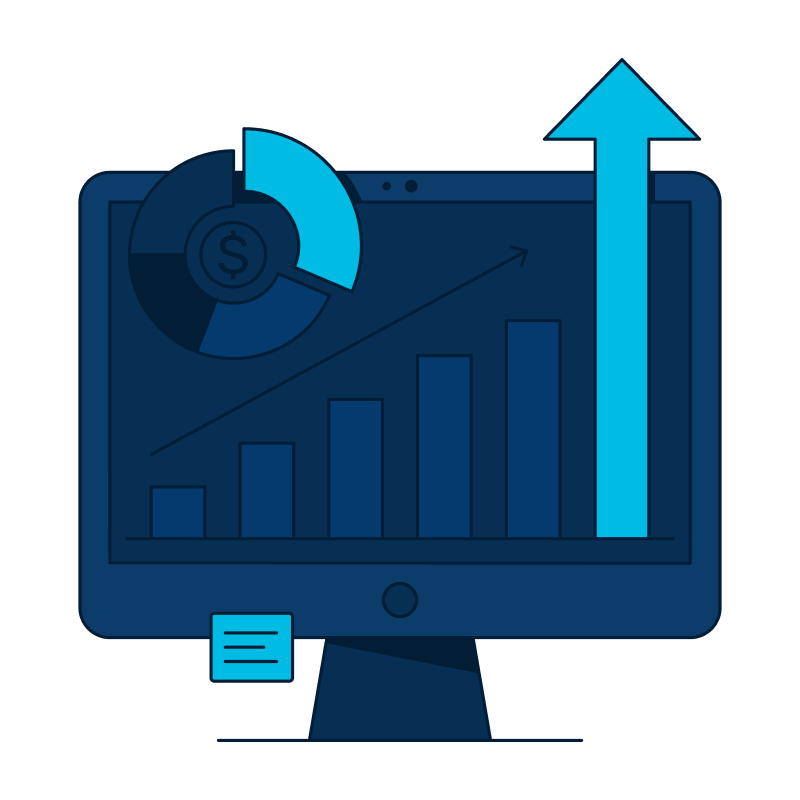
On This Page:
You’re an analytics professional with a talent for research. You’re considering a PhD in Data Analytics as the next logical step in your career, but you’d like to know more about the practicals. Explore different types of analytics doctorates . Dig into details on timelines , coursework , and the dissertation process . Learn about admissions requirements and funding options , including fully-funded doctorates. Find answers to questions about online degrees and employment avenues after graduation. Or skip ahead to our listings of all the PhD in Data Analytics programs in the country.
What Are PhD in Data Analytics Programs?
A PhD in Data Analytics or a closely related field is an interdisciplinary doctorate that focuses on cutting-edge research in the realms of advanced analytics, statistical computing, big data, and data science. Doctoral students in analytics:
- Push the boundaries of analytics in order to solve complex societal & organizational problems and transform decision-making
- Train to be expert practitioners in big data technologies, newly developed statistical methods, and “out of the box” analytical thinking
- Become analytics & data science professors at universities, senior analytics consultants in industry, and government advisors
Can You Earn a PhD in Data Analytics?
Yes. Doctoral programs in data analytics are available, but they are rare. The most popular title for a degree in the realm of data is the PhD in Data Science . Data science is a highly inventive field that builds on analytical foundations, so it makes sense to consider a doctoral program that focuses on innovation & self-guided discoveries.
When you do find a PhD with the word “analytics” in the title , you’re still going to be looking at a doctorate that intersects with the field of data science. Massive data sets, complicated analytics processes, sophisticated predictive models—doctoral students in analytics are schooled in all of these areas (and more).
Note: PhD programs are focused on original research and high-level thinking. If you want a workplace qualification, consider a Master’s in Data Analytics .
Types of Data Analytics Doctorate Programs
We’ve listed some common titles for doctorates in analytics, but we recommend you check the curriculum links in our listings and learn which department/s are offering the program. You should also look up the faculty’s research interests to see if they align with your own ideas for PhD projects. For example:
- If the degree is offered by the Department of Computer Science, a PhD in Data Analytics might be heavy on research into ethics, bias, AI, and building intelligent systems.
- If the degree is offered in partnership with the School of Business, a PhD in Data Analytics could be preoccupied with Machine Learning (ML), risk analysis, and econometrics.
The title of the PhD plays second fiddle to the department.
PhD in Analytics
A PhD in Analytics can often cut across multiple data-driven domains. Think of fields like Business Analytics, Data Science, Operations Research, and more. For instance, at the University of Notre Dame , doctoral students in analytics are able to access a large number of analytics research labs (e.g. gaming, human behavior, data & society, business, etc.) and collaborate with all kinds of partners.
PhD in Big Data Analytics
Doctorates in Big Data Analytics tend to focus on advanced systems & technologies that deal with processing big data (e.g. statistical computing, data mining, etc.), as well as their applications to real-world problems. Some universities, like the University of South Florida , are also interested in examining the human & social implications of analytics (e.g. ethical usage).
PhD in Analytics & Data Science
A PhD in Analytics and Data Science or a PhD in Data Science, Analytics & Engineering is a way for universities to combine data expertise from multiple departments. Yes, advanced analytics & big data processes will be addressed in the curriculum. But you’ll also find a strong emphasis on programming, algorithm creation, and systems development.
PhD in Data Science
Doctoral programs in data science may have more of a “design & develop” feel than analytics doctorates. In addition to exploring advanced analytics & big data applications, PhD in Data Science students are often interested in designing new information systems & tools (e.g. dashboards), creating their own algorithms & models, and exploring the boundaries of AI & Machine Learning (ML).
Note: Interested in industry & corporate analytics applications? Check out the guide to the PhD in Business Analytics .
How Doctorates in Data Analytics Work: Curriculum & Dissertation
Degree structure.
PhD programs in data analytics contain 6 key elements that take 4-5 years to complete on a full-time schedule. You will have to tackle each stage (e.g. core coursework) before you can proceed to the next one (e.g. qualifying exam).
Core Coursework
Qualifying/comprehensive exam, dissertation proposal, dissertation, dissertation defense.
- Year 1: Core coursework and first-year research papers. Assignment of a faculty mentor.
- Year 2: Core coursework, electives, second-year research papers, and the qualifying exam.
- Year 3: Any remaining coursework. Preparing research projects for publication. Dissertation proposal.
- Year 4: Dissertation work under the guidance of a dissertation advisor and advisory committee.
- Year 5: Dissertation work. Research papers & conference submissions. Dissertation defense.
Sample Curriculum
A PhD in Data Analytics or a closely related field will always contain a set of courses in advanced analytics & data science subjects. These courses can come from multiple departments (e.g. Computer Science, Mathematics & Statistics, Industrial Engineering, Psychology, etc.). Examples include:
- Big Data Analytics
- Data Mining
- Theoretical Statistics
- Statistical Computing
- Machine Learning
- Database Systems
- Information Assurance & Security
These are just a few sample course titles! Use the curriculum links in our listings to get a feel for each program’s unique flavor.
Once you’ve tackled the fundamentals of core coursework , you’ll usually be able to choose high-level electives in your particular research interests. For instance, the University of Central Florida offers electives in:
- Advanced computing (e.g. Parallel & Cloud Computation)
- Sophisticated analytics applications (e.g. Interactive Data Visualization)
- Industries (e.g. Industrial Engineering Analytics for Healthcare)
With some programs, you can customize your doctorate to a remarkable extent.
A qualifying exam is designed to test your knowledge of core coursework . It might take the form of a traditional exam, a paper and/or a project. For example, at the University of South Florida , PhD students are required to report on the results of a real-world, big data analytics project and include codes & systems that were developed in the process.
You’ll be required to develop an original idea for a research- or project-based dissertation and present your dissertation proposal to a dissertation advisory committee—experienced faculty members and (occasionally) outside experts who are interested in your area of work.
- A research-based dissertation will explore new realms of analytics research and potential applications.
- A project-based dissertation will involve work on a real-life project—this may be created at a research center or be suggested by an industry partner.
The dissertation proposal often takes the form of a written outline and an oral defense/presentation. If the committee accepts your proposal, you can get to work on your dissertation.
A PhD dissertation is a piece of original research that makes a significant contribution to the theory & practice of a field. In the world of data analytics & data science, dissertations can be research-based or project-based.
Dissertation Titles
Examples of real-life PhD in Data Analytics & Data Science dissertation titles include:
- A Credit Analysis of the Unbanked and Underbanked: An Argument for Alternative Data
- Novel Statistical and Machine Learning Methods for the Forecasting and Analysis of Major League Baseball Player Performance
- Optimal Analytical Methods for High Accuracy Cardiac Disease Classification and Treatment Based on ECG Data
- The Intelligent Management of Crowd-Powered Machine Learning
- Forecasting the Prices of Cryptocurrencies using a Novel Parameter Optimization of VARIMA Models
- Classification with Large Sparse Datasets: Convergence Analysis and Scalable Algorithms
While you are writing up your dissertation, many universities will also expect you to be submitting related research papers to peer-reviewed journals & industry conferences.
The final step in the PhD process is the dissertation defense. You’ll be required to present your dissertation findings to your dissertation advisory committee and defend your research ideas in an oral & visual presentation. This will be followed by questions and a discussion.
It’s not as intimidating as it sounds. By this stage in your education, you will know your research inside-out and will have brainstormed many of the potential questions with your dissertation advisor. You can prepare for a defense by observing other student defenses, practicing with mock presentations, and reading up on the work of committee members.
PhD in Data Analytics: Admissions
Doctorate in data analytics: what it takes to get in.
Every PhD program in data analytics is going to have a unique set of admissions requirements! When you’re putting together a shortlist of doctorates, use the admissions links in our listings to save yourself time & trouble. You can decide if the program suits your level of expertise and education.
Doctoral programs in tech-driven disciplines—especially ones that are fully funded —are extremely competitive. You can stand out from the crowd by:
- Examining your entire application to see if you can make up for weaknesses (e.g. lower grades) with strengths (e.g. real-world projects)
- Matching your research interests to the university, department & research labs offering the program
- Collaborating with experienced analytics practitioners to co-author papers & publications
- Attending industry events and making connections that will help in your research
- Earning professional certificates to fill in any skills gaps
Degree Requirements
Your degree should be in a discipline that’s relevant to your area of research interest in the PhD. For a data analytics doctorate, that might mean a degree in statistics, data analytics, computer science, economics, or similar. The standard GPA requirement is 3.0 GPA or higher.
- Bachelor’s Degree Entry: Some doctoral programs in data analytics & data science are willing to consider applicants with a bachelor’s degree.
- Master’s Degree Entry: Some doctoral programs are only looking for candidates with a master’s degree.
If you’re an undergraduate and you like the look of a PhD that only accepts master’s candidates, ask the program coordinator if you can earn an MS through the same university. Most doctoral programs have a “Master’s Along the Way” option.
Skills & Proficiencies
PhD candidates in analytics must be ready to tackle advanced coursework and high-level research. So universities will usually want to see evidence of proficiency/course credits in:
- Statistics, calculus & linear algebra
- Common analytical programming languages (e.g. R, Python, SAS, etc.)
- Analytics fundamentals (e.g. database management systems)
If you don’t have an undergraduate or master’s degree in analytics or a closely related field, universities will be poring over your transcripts & résumé to make sure you can handle any technical coursework.
General Requirements
In addition to your degree transcripts, almost all PhD programs in data analytics & data science fields will want to see:
- GRE or GMAT scores
- Letters of recommendation
- Statement of purpose
- TOEFL scores for non-English speaking international applicants
PhD in Data Analytics: Tuition & Funding
How to fund the phd.
Doctoral programs in data analytics & data science fall into 2 broad categories:
- Fully funded PhD programs
- Tuition-driven PhD programs
As you might expect, fully funded doctorate programs at strong universities are hard to get into!
Fully Funded PhD Programs
A number of STEM doctorates at research universities are fully funded. The university will waive all tuition costs and provide you with a living stipend as compensation for teaching & research activities. Many PhD students work as Teaching Assistants (TAs) and Research Assistant (RAs) during their doctoral studies.
Talk to the PhD program coordinator and check the fine print when you’re considering these programs.
- You may (or may not) qualify for on-campus housing and university health insurance.
- You may (or may not) qualify for conference stipends, overseas internships, and other perks.
- You may (or may not) be expected to pay for miscellaneous university fees.
- You may receive funding for Years 1-4 of your degree, but Year 5 support could be conditional on strong academic performance.
Tuition-Driven PhD Programs
You’ll also find doctoral programs in analytics & data science that do not offer any funding. They’ll expect you to pay for the degree out of your own pocket. At a private university, a PhD could cost upwards of $60,000-$80,000 in tuition alone.
So tread carefully! If you don’t qualify for fully funded PhD programs and you believe that a doctorate is essential for your career goals, consider applying to a PhD program at a public university in your state—UCF’s in-state tuition for a PhD in Big Data Analytics is very reasonable.
You will also need to look into postgraduate loans, private scholarships & fellowships, employer reimbursement, and teaching & research job opportunities to offset your costs.
Online PhD in Data Analytics Programs
Can you earn an online phd in data analytics.
Yes—but we would caution against them. There are a few universities that offer online doctorates in data analytics, but they tend to be for-profit (e.g. Colorado Tech) or focused on executive-level training instead of research (e.g. DBA in Data Analytics from the University of the Southwest).
You’ll have a little more luck in finding online doctorates in data science, but they still won’t be offered by top-tier universities.
Why Are Online PhD Programs in Analytics Hard to Find?
Prestigious research universities & high-ranking schools are very cautious about maintaining their reputation for quality. They want doctoral students in data analytics & data science to:
- Attend classes in advanced topics, ask questions, and follow-up with faculty
- Have unfettered access to the university’s research centers, labs, and technical facilities
- Be able to teach undergraduates and conduct research in-person
- Meet with their dissertation advisor on a regular basis
- Network with visiting experts and fellow students
We agree with them. At this level, we highly recommend you choose an on-campus doctoral degree.
Career Prospects for PhD in Data Analytics Graduates
A PhD in Data Analytics or a closely related field is a super-specialized degree. You don’t need a doctorate to pursue a career in analytics & data science. Many senior-level practitioners simply have a degree like a Master’s in Data Analytics (or a similar title) and a lot of on-the-job experience.
However, a doctorate in analytics is an excellent choice for aspiring:
- University Professors: If you wish to teach analytics & data science at a college or university, you will probably need a research-focused doctorate. At the University of Notre Dame, 80% of its PhD in Analytics graduates go into academia.
- High-Level Researchers: PhD graduates work in think tanks, industry research labs, and university research centers where exciting discoveries are taking place.
- Data Science & Analytics Consultants: You may wish to act in an advisory capacity for Wall Street, Silicon Valley, and other major centers of industry.
- Senior Research Positions: Some jobs in major tech companies, data-intensive businesses & financial companies (e.g. Senior Statistician) will require top-level research skills.
PhD Data Analytics FAQs
What should i look for in a data analytics doctoral program.
When you’re starting to put together a shortlist of doctoral programs, consider the following aspects:
- Funding Options: The best choice is going to be a fully funded PhD from a highly ranked & highly regarded university that includes teaching & research assistantships.
- Departmental Reputation: Which schools & departments are offering the degree? What kinds of unique benefits do they offer students? How much research funding do they receive?
- Faculty Expertise: Faculty profiles will be posted on the PhD program website. Read their bios, meet them for a virtual coffee, and learn more about their research & industry work. These people will become your advisors & mentors.
- Access to Resources: Will you have access to top-of-the-line analytics tools, commercial resources, and large-scale infrastructures? Can you work on projects within a major analytics research lab or center?
- Career Preparation: A strong PhD program will prepare you for the job market after graduation. Does the curriculum include opportunities for you to submit research papers to peer-reviewed journals? Does it offer stipends for conference travel? Does it bring in visiting experts for seminars?
What is a STEM Doctorate?
STEM stands for Science, Technology, Engineering & Mathematics. A STEM doctorate is any PhD—including the PhD in Data Analytics and the PhD in Data Science—that contains at least 50% of coursework in these fields.
- Are you an international student? Ask if the doctoral program has a “STEM designation” from the U.S. Department of Homeland Security (DHS). Students on an F-1 Visa can apply for Optional Practical Training (OPT) /temporary employment after graduation. Having a STEM-designated degree extends the OPT period from 12 months to 36 months.
- STEM programs often receive a fair amount of funding from the government and private industries. That means universities may be able to offer fully funded PhD programs to multiple students.
Is a PhD in Data Analytics Worth It?
Only if you have a specific career goal in mind. A PhD in Data Analytics or a closely related field is going to be time-consuming, challenging, and heavy on research. At least 4-5 years of your life will be devoted to earning it, so you and your family need to be prepared for the journey.
Unsure about your decision? Talk to analytics professionals who have already gone through the PhD gauntlet. You’ll find doctoral graduates on LinkedIn, at industry conferences , and within faculty directories on university websites. Be prepared to talk to them about your research interests and your goals.
All Phd in Data Analytics Programs
Arizona state university.
School of Computing and Augmented Intelligence
Tempe, Arizona
PhD in Data Science, Analytics, and Engineering
University of arizona.
Department of Biosystems Engineering
Tucson, Arizona
PhD in Biosystems Analytics & Technology
University of central florida.
College of Sciences
Orlando, Florida
University of South Florida-Main Campus
Muma College of Business
Tampa, Florida
Georgia State University
Robinson College of Business
Atlanta, Georgia
PhD in Business Administration & Digital Innovation - Data Science & Analytics
Kennesaw state university.
School of Data Science and Analytics
Kennesaw, Georgia
Doctor of Philosophy in Analytics and Data Science
University of notre dame.
Mendoza College of Business
Notre Dame, Indiana
University of Kansas
School of Business
Lawrence, Kansas
PhD in Analytics and Operations
Central michigan university.
College of Science and Engineering
Mount Pleasant, Michigan
PhD in Statistics and Analytics
North carolina, north carolina state university at raleigh.
Center for Geospatial Analytics
Raleigh, North Carolina
PhD in Geospatial Analytics
Pennsylvania, pennsylvania state university-main campus.
College of the Liberal Arts
University Park, Pennsylvania
PhD in Human Development and Family Studies and Social Data Analytics
Phd in informatics and social data analytics, phd in political science and social data analytics, phd in psychology and social data analytics, phd in social data analytics, phd in sociology and social data analytics, phd in statistics and social data analytics.
DiscoverDataScience.org
PhD in Data Science – Your Guide to Choosing a Doctorate Degree Program

Created by aasif.faizal
Professional opportunities in data science are growing incredibly fast. That’s great news for students looking to pursue a career as a data scientist. But it also means that there are a lot more options out there to investigate and understand before developing the best educational path for you.
A PhD is the most advanced data science degree you can get, reflecting a depth of knowledge and technical expertise that will put you at the top of your field.

This means that PhD programs are the most time-intensive degree option out there, typically requiring that students complete dissertations involving rigorous research. This means that PhDs are not for everyone. Indeed, many who work in the world of big data hold master’s degrees rather than PhDs, which tend to involve the same coursework as PhD programs without a dissertation component. However, for the right candidate, a PhD program is the perfect choice to become a true expert on your area of focus.
If you’ve concluded that a data science PhD is the right path for you, this guide is intended to help you choose the best program to suit your needs. It will walk through some of the key considerations while picking graduate data science programs and some of the nuts and bolts (like course load and tuition costs) that are part of the data science PhD decision-making process.
Data Science PhD vs. Masters: Choosing the right option for you
If you’re considering pursuing a data science PhD, it’s worth knowing that such an advanced degree isn’t strictly necessary in order to get good work opportunities. Many who work in the field of big data only hold master’s degrees, which is the level of education expected to be a competitive candidate for data science positions.
So why pursue a data science PhD?
Simply put, a PhD in data science will leave you qualified to enter the big data industry at a high level from the outset.
You’ll be eligible for advanced positions within companies, holding greater responsibilities, keeping more direct communication with leadership, and having more influence on important data-driven decisions. You’re also likely to receive greater compensation to match your rank.
However, PhDs are not for everyone. Dissertations require a great deal of time and an interest in intensive research. If you are eager to jumpstart a career quickly, a master’s program will give you the preparation you need to hit the ground running. PhDs are appropriate for those who want to commit their time and effort to schooling as a long-term investment in their professional trajectory.
For more information on the difference between data science PhD’s and master’s programs, take a look at our guide here.
Topics include:
- Can I get an Online Ph.D in Data Science?
- Overview of Ph.d Coursework
Preparing for a Doctorate Program
Building a solid track record of professional experience, things to consider when choosing a school.
- What Does it Cost to Get a Ph.D in Data Science?
- School Listings

Data Science PhD Programs, Historically
Historically, data science PhD programs were one of the main avenues to get a good data-related position in academia or industry. But, PhD programs are heavily research oriented and require a somewhat long term investment of time, money, and energy to obtain. The issue that some data science PhD holders are reporting, especially in industry settings, is that that the state of the art is moving so quickly, and that the data science industry is evolving so rapidly, that an abundance of research oriented expertise is not always what’s heavily sought after.
Instead, many companies are looking for candidates who are up to date with the latest data science techniques and technologies, and are willing to pivot to match emerging trends and practices.
One recent development that is making the data science graduate school decisions more complex is the introduction of specialty master’s degrees, that focus on rigorous but compact, professional training. Both students and companies are realizing the value of an intensive, more industry-focused degree that can provide sufficient enough training to manage complex projects and that are more client oriented, opposed to research oriented.
However, not all prospective data science PhD students are looking for jobs in industry. There are some pretty amazing research opportunities opening up across a variety of academic fields that are making use of new data collection and analysis tools. Experts that understand how to leverage data systems including statistics and computer science to analyze trends and build models will be in high demand.
Can You Get a PhD in Data Science Online?
While it is not common to get a data science Ph.D. online, there are currently two options for those looking to take advantage of the flexibility of an online program.
Indiana University Bloomington and Northcentral University both offer online Ph.D. programs with either a minor or specialization in data science.
Given the trend for schools to continue increasing online offerings, expect to see additional schools adding this option in the near future.

Overview of PhD Coursework
A PhD requires a lot of academic work, which generally requires between four and five years (sometimes longer) to complete.
Here are some of the high level factors to consider and evaluate when comparing data science graduate programs.
How many credits are required for a PhD in data science?
On average, it takes 71 credits to graduate with a PhD in data science — far longer (almost double) than traditional master’s degree programs. In addition to coursework, most PhD students also have research and teaching responsibilities that can be simultaneously demanding and really great career preparation.
What’s the core curriculum like?
In a data science doctoral program, you’ll be expected to learn many skills and also how to apply them across domains and disciplines. Core curriculums will vary from program to program, but almost all will have a core foundation of statistics.
All PhD candidates will have to take a qualifying exam. This can vary from university to university, but to give you some insight, it is broken up into three phases at Yale. They have a practical exam, a theory exam and an oral exam. The goal is to make sure doctoral students are developing the appropriate level of expertise.
Dissertation
One of the final steps of a PhD program involves presenting original research findings in a formal document called a dissertation. These will provide background and context, as well as findings and analysis, and can contribute to the understanding and evolution of data science. A dissertation idea most often provides the framework for how a PhD candidate’s graduate school experience will unfold, so it’s important to be thoughtful and deliberate while considering research opportunities.
Since data science is such a rapidly evolving field and because choosing the right PhD program is such an important factor in developing a successful career path, there are some steps that prospective doctoral students can take in advance to find the best-fitting opportunity.
Join professional associations
Even before being fully credentials, joining professional associations and organizations such as the Data Science Association and the American Association of Big Data Professionals is a good way to get exposure to the field. Many professional societies are welcoming to new members and even encourage student participation with things like discounted membership fees and awards and contest categories for student researchers. One of the biggest advantages to joining is that these professional associations bring together other data scientists for conference events, research-sharing opportunities, networking and continuing education opportunities.
Leverage your social network
Be on the lookout to make professional connections with professors, peers, and members of industry. There are a number of LinkedIn groups dedicated to data science. A well-maintained professional network is always useful to have when looking for advice or letters of recommendation while applying to graduate school and then later while applying for jobs and other career-related opportunities.
Kaggle competitions
Kaggle competitions provide the opportunity to solve real-world data science problems and win prizes. A list of data science problems can be found at Kaggle.com . Winning one of these competitions is a good way to demonstrate professional interest and experience.
Internships
Internships are a great way to get real-world experience in data science while also getting to work for top names in the world of business. For example, IBM offers a data science internship which would also help to stand out when applying for PhD programs, as well as in seeking employment in the future.
Demonstrating professional experience is not only important when looking for jobs, but it can also help while applying for graduate school. There are a number of ways for prospective students to gain exposure to the field and explore different facets of data science careers.
Get certified
There are a number of data-related certificate programs that are open to people with a variety of academic and professional experience. DeZyre has an excellent guide to different certifications, some of which might help provide good background for graduate school applications.
Conferences
Conferences are a great place to meet people presenting new and exciting research in the data science field and bounce ideas off of newfound connections. Like professional societies and organizations, discounted student rates are available to encourage student participation. In addition, some conferences will waive fees if you are presenting a poster or research at the conference, which is an extra incentive to present.

It can be hard to quantify what makes a good-fit when it comes to data science graduate school programs. There are easy to evaluate factors, such as cost and location, and then there are harder to evaluate criteria such as networking opportunities, accessibility to professors, and the up-to-dateness of the program’s curriculum.
Nevertheless, there are some key relevant considerations when applying to almost any data science graduate program.
What most schools will require when applying:
- All undergraduate and graduate transcripts
- A statement of intent for the program (reason for applying and future plans)
- Letters of reference
- Application fee
- Online application
- A curriculum vitae (outlining all of your academic and professional accomplishments)
What Does it Cost to Get a PhD in Data Science?
The great news is that many PhD data science programs are supported by fellowships and stipends. Some are completely funded, meaning the school will pay tuition and basic living expenses. Here are several examples of fully funded programs:
- University of Southern California
- University of Nevada, Reno
- Kennesaw State University
- Worcester Polytechnic Institute
- University of Maryland
For all other programs, the average range of tuition, depending on the school can range anywhere from $1,300 per credit hour to $2,000 amount per credit hour. Remember, typical PhD programs in data science are between 60 and 75 credit hours, meaning you could spend up to $150,000 over several years.
That’s why the financial aspects are so important to evaluate when assessing PhD programs, because some schools offer full stipends so that you are able to attend without having to find supplemental scholarships or tuition assistance.
Can I become a professor of data science with a PhD.? Yes! If you are interested in teaching at the college or graduate level, a PhD is the degree needed to establish the full expertise expected to be a professor. Some data scientists who hold PhDs start by entering the field of big data and pivot over to teaching after gaining a significant amount of work experience. If you’re driven to teach others or to pursue advanced research in data science, a PhD is the right degree for you.
Do I need a master’s in order to pursue a PhD.? No. Many who pursue PhDs in Data Science do not already hold advanced degrees, and many PhD programs include all the coursework of a master’s program in the first two years of school. For many students, this is the most time-effective option, allowing you to complete your education in a single pass rather than interrupting your studies after your master’s program.
Can I choose to pursue a PhD after already receiving my master’s? Yes. A master’s program can be an opportunity to get the lay of the land and determine the specific career path you’d like to forge in the world of big data. Some schools may allow you to simply extend your academic timeline after receiving your master’s degree, and it is also possible to return to school to receive a PhD if you have been working in the field for some time.
If a PhD. isn’t necessary, is it a waste of time? While not all students are candidates for PhDs, for the right students – who are keen on doing in-depth research, have the time to devote to many years of school, and potentially have an interest in continuing to work in academia – a PhD is a great choice. For more information on this question, take a look at our article Is a Data Science PhD. Worth It?
Complete List of Data Science PhD Programs
Below you will find the most comprehensive list of schools offering a doctorate in data science. Each school listing contains a link to the program specific page, GRE or a master’s degree requirements, and a link to a page with detailed course information.
Note that the listing only contains true data science programs. Other similar programs are often lumped together on other sites, but we have chosen to list programs such as data analytics and business intelligence on a separate section of the website.
Boise State University – Boise, Idaho PhD in Computing – Data Science Concentration
The Data Science emphasis focuses on the development of mathematical and statistical algorithms, software, and computing systems to extract knowledge or insights from data.
In 60 credits, students complete an Introduction to Graduate Studies, 12 credits of core courses, 6 credits of data science elective courses, 10 credits of other elective courses, a Doctoral Comprehensive Examination worth 1 credit, and a 30-credit dissertation.
Electives can be taken in focus areas such as Anthropology, Biometry, Ecology/Evolution and Behavior, Econometrics, Electrical Engineering, Earth Dynamics and Informatics, Geoscience, Geostatistics, Hydrology and Hydrogeology, Materials Science, and Transportation Science.
Delivery Method: Campus GRE: Required 2022-2023 Tuition: $7,236 total (Resident), $24,573 total (Non-resident)
View Course Offerings
Bowling Green State University – Bowling Green, Ohio Ph.D. in Data Science
Data Science students at Bowling Green intertwine knowledge of computer science with statistics.
Students learn techniques in analyzing structured, unstructured, and dynamic datasets.
Courses train students to understand the principles of analytic methods and articulating the strengths and limitations of analytical methods.
The program requires 60 credit hours in the studies of Computer Science (6 credit hours), Statistics (6 credit hours), Data Science Exploration and Communication, Ethical Issues, Advanced Data Mining, and Applied Data Science Experience.
Students must also complete 21 credit hours of elective courses, a qualifying exam, a preliminary exam, and a dissertation.
Delivery Method: Campus GRE: Required 2022-2023 Tuition: $8,418 (Resident), $14,410 (Non-resident)
Brown University – Providence, Rhode Island PhD in Computer Science – Concentration in Data Science
Brown University’s database group is a world leader in systems-oriented database research; they seek PhD candidates with strong system-building skills who are interested in researching TupleWare, MLbase, MDCC, Crowd DB, or PIQL.
In order to gain entrance, applicants should consider first doing a research internship at Brown with this group. Other ways to boost an application are to take and do well at massive open online courses, do an internship at a large company, and get involved in a large open-source software project.
Coding well in C++ is preferred.
Delivery Method: Campus GRE: Required 2022-2023 Tuition: $62,680 total
Chapman University – Irvine, California Doctorate in Computational and Data Sciences
Candidates for the doctorate in computational and data science at Chapman University begin by completing 13 core credits in basic methodologies and techniques of computational science.
Students complete 45 credits of electives, which are personalized to match the specific interests and research topics of the student.
Finally, students complete up to 12 credits in dissertation research.
Applicants must have completed courses in differential equations, data structures, and probability and statistics, or take specific foundation courses, before beginning coursework toward the PhD.
Delivery Method: Campus GRE: Required 2022-2023 Tuition: $37,538 per year
Clemson University / Medical University of South Carolina (MUSC) – Joint Program – Clemson, South Carolina & Charleston, South Carolina Doctor of Philosophy in Biomedical Data Science and Informatics – Clemson
The PhD in biomedical data science and informatics is a joint program co-authored by Clemson University and the Medical University of South Carolina (MUSC).
Students choose one of three tracks to pursue: precision medicine, population health, and clinical and translational informatics. Students complete 65-68 credit hours, and take courses in each of 5 areas: biomedical informatics foundations and applications; computing/math/statistics/engineering; population health, health systems, and policy; biomedical/medical domain; and lab rotations, seminars, and doctoral research.
Applicants must have a bachelor’s in health science, computing, mathematics, statistics, engineering, or a related field, and it is recommended to also have competency in a second of these areas.
Program requirements include a year of calculus and college biology, as well as experience in computer programming.
Delivery Method: Campus GRE: Required 2022-2023 Tuition: $10,858 total (South Carolina Resident), $22,566 total (Non-resident)
View Course Offerings – Clemson
George Mason University – Fairfax, Virginia Doctor of Philosophy in Computational Sciences and Informatics – Emphasis in Data Science
George Mason’s PhD in computational sciences and informatics requires a minimum of 72 credit hours, though this can be reduced if a student has already completed a master’s. 48 credits are toward graduate coursework, and an additional 24 are for dissertation research.
Students choose an area of emphasis—either computer modeling and simulation or data science—and completed 18 credits of the coursework in this area. Students are expected to completed the coursework in 4-5 years.
Applicants to this program must have a bachelor’s degree in a natural science, mathematics, engineering, or computer science, and must have knowledge and experience with differential equations and computer programming.
Delivery Method: Campus GRE: Required 2022-2023 Tuition: $13,426 total (Virginia Resident), $35,377 total (Non-resident)
Harrisburg University of Science and Technology – Harrisburg, Pennsylvania Doctor of Philosophy in Data Sciences
Harrisburg University’s PhD in data science is a 4-5 year program, the first 2 of which make up the Harrisburg master’s in analytics.
Beyond this, PhD candidates complete six milestones to obtain the degree, including 18 semester hours in doctoral-level courses, such as multivariate data analysis, graph theory, machine learning.
Following the completion of ANLY 760 Doctoral Research Seminar, students in the program complete their 12 hours of dissertation research bringing the total program hours to 36.
Delivery Method: Campus GRE: Required 2022-2023 Tuition: $14,940 total
Icahn School of Medicine at Mount Sinai – New York, New York Genetics and Data Science, PhD
As part of the Biomedical Science PhD program, the Genetics and Data Science multidisciplinary training offers research opportunities that expand on genetic research and modern genomics. The training also integrates several disciplines of biomedical sciences with machine learning, network modeling, and big data analysis.
Students in the Genetics and Data Science program complete a predetermined course schedule with a total of 64 credits and 3 years of study.
Additional course requirements and electives include laboratory rotations, a thesis proposal exam and thesis defense, Computer Systems, Intro to Algorithms, Machine Learning for Biomedical Data Science, Translational Genomics, and Practical Analysis of a Personal Genome.
Delivery Method: Campus GRE: Not Required 2022-2023 Tuition: $31,303 total
Indiana University-Purdue University Indianapolis – Indianapolis, Indiana PhD in Data Science PhD Minor in Applied Data Science
Doctoral candidates pursuing the PhD in data science at Indiana University-Purdue must display competency in research, data analytics, and at management and infrastructure to earn the degree.
The PhD is comprised of 24 credits of a data science core, 18 credits of methods courses, 18 credits of a specialization, written and oral qualifying exams, and 30 credits of dissertation research. All requirements must be completed within 7 years.
Applicants are generally expected to have a master’s in social science, health, data science, or computer science.
Currently a majority of the PhD students at IUPUI are funded by faculty grants and two are funded by the federal government. None of the students are self funded.
IUPUI also offers a PhD Minor in Applied Data Science that is 12-18 credits. The minor is open to students enrolled at IUPUI or IU Bloomington in a doctoral program other than Data Science.
Delivery Method: Campus GRE: Required 2022-2023 Tuition: $9,228 per year (Indiana Resident), $25,368 per year (Non-resident)
Jackson State University – Jackson, Mississippi PhD Computational and Data-Enabled Science and Engineering
Jackson State University offers a PhD in computational and data-enabled science and engineering with 5 concentration areas: computational biology and bioinformatics, computational science and engineering, computational physical science, computation public health, and computational mathematics and social science.
Students complete 12 credits of common core courses, 12 credits in the specialization, 24 credits of electives, and 24 credits in dissertation research.
Students may complete the doctoral program in as little as 5 years and no more than 8 years.
Delivery Method: Campus GRE: Required 2022-2023 Tuition: $8,270 total
Kennesaw State University – Kennesaw, Georgia PhD in Analytics and Data Science
Students pursuing a PhD in analytics and data science at Kennesaw State University must complete 78 credit hours: 48 course hours and 6 electives (spread over 4 years of study), a minimum 12 credit hours for dissertation research, and a minimum 12 credit-hour internship.
Prior to dissertation research, the comprehensive examination will cover material from the three areas of study: computer science, mathematics, and statistics.
Successful applicants will have a master’s degree in a computational field, calculus I and II, programming experience, modeling experience, and are encouraged to have a base SAS certification.
Delivery Method: Campus GRE: Required 2022-2023 Tuition: $5,328 total (Georgia Resident), $19,188 total (Non-resident)
New Jersey Institute of Technology – Newark, New Jersey PhD in Business Data Science
Students may enter the PhD program in business data science at the New Jersey Institute of Technology with either a relevant bachelor’s or master’s degree. Students with bachelor’s degrees begin with 36 credits of advanced courses, and those with master’s take 18 credits before moving on to credits in dissertation research.
Core courses include business research methods, data mining and analysis, data management system design, statistical computing with SAS and R, and regression analysis.
Students take qualifying examinations at the end of years 1 and 2, and must defend their dissertations successfully by the end of year 6.
Delivery Method: Campus GRE: Required 2022-2023 Tuition: $21,932 total (New Jersey Resident), $32,426 total (Non-resident)
New York University – New York, New York PhD in Data Science
Doctoral candidates in data science at New York University must complete 72 credit hours, pass a comprehensive and qualifying exam, and defend a dissertation with 10 years of entering the program.
Required courses include an introduction to data science, probability and statistics for data science, machine learning and computational statistics, big data, and inference and representation.
Applicants must have an undergraduate or master’s degree in fields such as mathematics, statistics, computer science, engineering, or other scientific disciplines. Experience with calculus, probability, statistics, and computer programming is also required.
Delivery Method: Campus GRE: Required 2022-2023 Tuition: $37,332 per year
View Course Offering
Northcentral University – San Diego, California PhD in Data Science-TIM
Northcentral University offers a PhD in technology and innovation management with a specialization in data science.
The program requires 60 credit hours, including 6-7 core courses, 3 in research, a PhD portfolio, and 4 dissertation courses.
The data science specialization requires 6 courses: data mining, knowledge management, quantitative methods for data analytics and business intelligence, data visualization, predicting the future, and big data integration.
Applicants must have a master’s already.
Delivery Method: Online GRE: Required 2022-2023 Tuition: $16,794 total
Stevens Institute of Technology – Hoboken, New Jersey Ph.D. in Data Science
Stevens Institute of Technology has developed a data science Ph.D. program geared to help graduates become innovators in the space.
The rigorous curriculum emphasizes mathematical and statistical modeling, machine learning, computational systems and data management.
The program is directed by Dr. Ted Stohr, a recognized thought leader in the information systems, operations and business process management arenas.
Delivery Method: Campus GRE: Required 2022-2023 Tuition: $39,408 per year
University at Buffalo – Buffalo, New York PhD Computational and Data-Enabled Science and Engineering
The curriculum for the University of Buffalo’s PhD in computational and data-enabled science and engineering centers around three areas: data science, applied mathematics and numerical methods, and high performance and data intensive computing. 9 credit course of courses must be completed in each of these three areas. Altogether, the program consists of 72 credit hours, and should be completed in 4-5 years. A master’s degree is required for admission; courses taken during the master’s may be able to count toward some of the core coursework requirements.
Delivery Method: Campus GRE: Required 2022-2023 Tuition: $11,310 per year (New York Resident), $23,100 per year (Non-resident)
University of Colorado Denver – Denver, Colorado PhD in Big Data Science and Engineering
The University of Colorado – Denver offers a unique program for those students who have already received admission to the computer science and information systems PhD program.
The Big Data Science and Engineering (BDSE) program is a PhD fellowship program that allows selected students to pursue research in the area of big data science and engineering. This new fellowship program was created to train more computer scientists in data science application fields such as health informatics, geosciences, precision and personalized medicine, business analytics, and smart cities and cybersecurity.
Students in the doctoral program must complete 30 credit hours of computer science classes beyond a master’s level, and 30 credit hours of dissertation research.
The BDSE fellowship requires students to have an advisor both in the core disciplines (either computer science or mathematics and statistics) as well as an advisor in the application discipline (medicine and public health, business, or geosciences).
In addition, the fellowship covers full stipend, tuition, and fees up to ~50k for BDSE fellows annually. Important eligibility requirements can be found here.
Delivery Method: Campus GRE: Required 2022-2023 Tuition: $55,260 total
University of Marylan d – College Park, Maryland PhD in Information Studies
Data science is a potential research area for doctoral candidates in information studies at the University of Maryland – College Park. This includes big data, data analytics, and data mining.
Applicants for the PhD must have taken the following courses in undergraduate studies: programming languages, data structures, design and analysis of computer algorithms, calculus I and II, and linear algebra.
Students must complete 6 qualifying courses, 2 elective graduate courses, and at least 12 credit hours of dissertation research.
Delivery Method: Campus GRE: Required 2022-2023 Tuition: $16,238 total (Maryland Resident), $35,388 total (Non-resident)
University of Massachusetts Boston – Boston, Massachusetts PhD in Business Administration – Information Systems for Data Science Track
The University of Massachusetts – Boston offers a PhD in information systems for data science. As this is a business degree, students must complete coursework in their first two years with a focus on data for business; for example, taking courses such as business in context: markets, technologies, and societies.
Students must take and pass qualifying exams at the end of year 1, comprehensive exams at the end of year 2, and defend their theses at the end of year 4.
Those with a degree in statistics, economics, math, computer science, management sciences, information systems, and other related fields are especially encouraged, though a quantitative degree is not necessary.
Students accepted by the program are ordinarily offered full tuition credits and a stipend ($25,000 per year) to cover educational expenses and help defray living costs for up to three years of study.
During the first two years of coursework, they are assigned to a faculty member as a research assistant; for the third year students will be engaged in instructional activities. Funding for the fourth year is merit-based from a limited pool of program funds
Delivery Method: Campus GRE: Required 2022-2023 Tuition: $18,894 total (in-state), $36,879 (out-of-state)
University of Nevada Reno – Reno, Nevada PhD in Statistics and Data Science
The University of Nevada – Reno’s doctoral program in statistics and data science is comprised of 72 credit hours to be completed over the course of 4-5 years. Coursework is all within the scope of statistics, with titles such as statistical theory, probability theory, linear models, multivariate analysis, statistical learning, statistical computing, time series analysis.
The completion of a Master’s degree in mathematics or statistics prior to enrollment in the doctoral program is strongly recommended, but not required.
Delivery Method: Campus GRE: Required 2022-2023 Tuition: $5,814 total (in-state), $22,356 (out-of-state)
University of Southern California – Los Angles, California PhD in Data Sciences & Operations
USC Marshall School of Business offers a PhD in data sciences and operations to be completed in 5 years.
Students can choose either a track in operations management or in statistics. Both tracks require 4 courses in fall and spring of the first 2 years, as well as a research paper and courses during the summers. Year 3 is devoted to dissertation preparation and year 4 and/or 5 to dissertation defense.
A bachelor’s degree is necessary for application, but no field or further experience is required.
Students should complete 60 units of coursework. If the students are admitted with Advanced Standing (e.g., Master’s Degree in appropriate field), this requirement may be reduced to 40 credits.
Delivery Method: Campus GRE: Required 2022-2023 Tuition: $63,468 total
University of Tennessee-Knoxville – Knoxville, Tennessee The Data Science and Engineering PhD
The data science and engineering PhD at the University of Tennessee – Knoxville requires 36 hours of coursework and 36 hours of dissertation research. For those entering with an MS degree, only 24 hours of course work is required.
The core curriculum includes work in statistics, machine learning, and scripting languages and is enhanced by 6 hours in courses that focus either on policy issues related to data, or technology entrepreneurship.
Students must also choose a knowledge specialization in one of these fields: health and biological sciences, advanced manufacturing, materials science, environmental and climate science, transportation science, national security, urban systems science, and advanced data science.
Applicants must have a bachelor’s or master’s degree in engineering or a scientific field.
All students that are admitted will be supported by a research fellowship and tuition will be included.
Many students will perform research with scientists from Oak Ridge national lab, which is located about 30 minutes drive from campus.
Delivery Method: Campus GRE: Required 2022-2023 Tuition: $11,468 total (Tennessee Resident), $29,656 total (Non-resident)
University of Vermont – Burlington, Vermont Complex Systems and Data Science (CSDS), PhD
Through the College of Engineering and Mathematical Sciences, the Complex Systems and Data Science (CSDS) PhD program is pan-disciplinary and provides computational and theoretical training. Students may customize the program depending on their chosen area of focus.
Students in this program work in research groups across campus.
Core courses include Data Science, Principles of Complex Systems and Modeling Complex Systems. Elective courses include Machine Learning, Complex Networks, Evolutionary Computation, Human/Computer Interaction, and Data Mining.
The program requires at least 75 credits to graduate with approval by the student graduate studies committee.
Delivery Method: Campus GRE: Not Required 2022-2023 Tuition: $12,204 total (Vermont Resident), $30,960 total (Non-resident)
University of Washington Seattle Campus – Seattle, Washington PhD in Big Data and Data Science
The University of Washington’s PhD program in data science has 2 key goals: training of new data scientists and cyberinfrastructure development, i.e., development of open-source tools and services that scientists around the world can use for big data analysis.
Students must take core courses in data management, machine learning, data visualization, and statistics.
Students are also required to complete at least one internship that covers practical work in big data.
Delivery Method: Campus GRE: Required 2022-2023 Tuition: $17,004 per year (Washington resident), $30,477 (non-resident)
University of Wisconsin-Madison – Madison, Wisconsin PhD in Biomedical Data Science
The PhD program in Biomedical Data Science offered by the Department of Biostatistics and Medical Informatics at UW-Madison is unique, in blending the best of statistics and computer science, biostatistics and biomedical informatics.
Students complete three year-long course sequences in biostatistics theory and methods, computer science/informatics, and a specialized sequence to fit their interests.
Students also complete three research rotations within their first two years in the program, to both expand their breadth of knowledge and assist in identifying a research advisor.
Delivery Method: Campus GRE: Required 2022-2023 Tuition: $10,728 total (in-state), $24,054 total (out-of-state)
Vanderbilt University – Nashville, Tennessee Data Science Track of the BMI PhD Program
The PhD in biomedical informatics at Vanderbilt has the option of a data science track.
Students complete courses in the areas of biomedical informatics (3 courses), computer science (4 courses), statistical methods (4 courses), and biomedical science (2 courses). Students are expected to complete core courses and defend their dissertations within 5 years of beginning the program.
Applicants must have a bachelor’s degree in computer science, engineering, biology, biochemistry, nursing, mathematics, statistics, physics, information management, or some other health-related field.
Delivery Method: Campus GRE: Required 2022-2023 Tuition: $53,160 per year
Washington University in St. Louis – St. Louis, Missouri Doctorate in Computational & Data Sciences
Washington University now offers an interdisciplinary Ph.D. in Computational & Data Sciences where students can choose from one of four tracks (Computational Methodologies, Political Science, Psychological & Brain Sciences, or Social Work & Public Health).
Students are fully funded and will receive a stipend for at least five years contingent on making sufficient progress in the program.
Delivery Method: Campus GRE: Required 2022-2023 Tuition: $59,420 total
Worcester Polytechnic Institute – Worcester, Massachusetts PhD in Data Science
The PhD in data science at Worcester Polytechnic Institute focuses on 5 areas: integrative data science, business intelligence and case studies, data access and management, data analytics and mining, and mathematical analysis.
Students first complete a master’s in data science, and then complete 60 credit hours beyond the master’s, including 30 credit hours of research.
Delivery Method: Campus GRE: Required 2022-2023 Tuition: $28,980 per year
Yale University – New Haven, Connecticut PhD Program – Department of Stats and Data Science
The PhD in statistics and data science at Yale University offers broad training in the areas of statistical theory, probability theory, stochastic processes, asymptotics, information theory, machine learning, data analysis, statistical computing, and graphical methods. Students complete 12 courses in the first year in these topics.
Students are required to teach one course each semester of their third and fourth years.
Most students complete and defend their dissertations in their fifth year.
Applicants should have an educational background in statistics, with an undergraduate major in statistics, mathematics, computer science, or similar field.
Delivery Method: Campus GRE: Required 2022-2023 Tuition: $46,900 total

- Related Programs
- For Individuals
- For Businesses
- For Universities
- For Governments
- Online Degrees
- Find your New Career
- Join for Free
Getting a PhD in Data Science: What You Need to Know
A PhD in data science prepares you for some of the most cutting-edge research in the field and can advance your career. But, whether you should pursue one depends on your own personal goals and resources. Learn more inside.
![best phd programs in data analytics [Featured Image]: A candidate for a PhD degree in Data Science, is sitting at her desk, working on her laptop computer.](https://d3njjcbhbojbot.cloudfront.net/api/utilities/v1/imageproxy/https://images.ctfassets.net/wp1lcwdav1p1/5V6y6oXGWPmYkZs8M96ogf/b46e5d8ac45e46cd7e94fb3661aeb875/Stocksy_txp233b02ffaSu200_Medium_3441517.jpg?w=1500&h=680&q=60&fit=fill&f=faces&fm=jpg&fl=progressive&auto=format%2Ccompress&dpr=1&w=1000)
A Doctor of Philosophy (PhD) is the highest degree that a professional can obtain in the field of data science. Focused primarily on equipping degree holders with the skills and knowledge required to conduct original research, a PhD prepares degree holders for advanced professional positions in both industry and academia.
But, the path to obtaining a PhD is filled with many years of potentially costly study that can be discouraging to those looking for rapid career progression. Before jumping into a doctoral program, then, it’s important to define what your goals are and how a PhD may (or may not) fit into them.
In this article, you’ll learn more about PhDs in data science, the different factors you should consider before joining one, and types of programs to consider. At the end, you’ll also find some suggested online courses to help you get started today.
PhD in Data Science: Overview
A Doctor of Philosophy (PhD) is the terminal degree in the field of data science, meaning it is the highest possible degree that can be obtained in the subject. Holding a PhD in data science, consequently, signals your mastery and knowledge of the field to both potential employers and fellow professionals.
At a glance, here’s what you should know about a Data Science PhD:
PhD vs. Master’s Degree in Data Science
There are two graduate degrees in the field of data science: a master’s in Data science and a PhD in Data Science. While both of these degrees can have a beneficial impact on your job prospects, they also have key differences that might impact which one is better for you.
A Master’s in Data Science is a graduate degree between a bachelor’s and PhD, which usually takes between one and two years to complete. A master’s degree expands on what was learned in undergraduate school through more advanced courses in topics such as machine learning, data analytics, and statistics. Often, a master’s student in data science also pursues original research and completes a capstone project, which highlights what they learned in their program.
A PhD in Data Science is a research degree that typically takes four to five years to complete but can take longer depending on a range of personal factors. In addition to taking more advanced courses, PhD candidates devote a significant amount of time to teaching and conducting dissertation research with the intent of advancing the field. At the conclusion of their doctoral program, a PhD holder in Data Science will complete a dissertation representing a significant contribution to the field.
Typically, bachelor’s degree holders entering a PhD program are able to earn their master’s degree as a part of their doctoral program. Those entering a master’s program, however, will usually have to apply for a PhD program even if it’s in the same department.
Skills and curriculum
Every PhD program is unique with its own requirements and focus. Nonetheless, they do have similar features, such as course, credit, and teaching requirements. To help you get a better understanding of how a doctoral graduate program in data science might be, here’s an example curriculum from NYU [ 1 ]:
Complete 72 credit hours while maintaining a cumulative grade point average of 3.0 (out of 4.0) each semester.
Core courses in topics like probability, statistics, machine learning, big data, inference, and research.
39 credit hours for elective courses in such topics as deep learning, natural language processing, and computational cognitive modeling.
Complete teaching requirements.
Pass a comprehensive exam.
Pass the Depth Qualifying Exam (DQE) by May 15 of their fourth semester.
Complete all steps for approval of their PhD dissertation.
Is a PhD in Data Science worth it?
A PhD can open doors to new career opportunities and boost your employment prospects. But, it can also take a lot of time and money to complete. Everyone’s personal and professional goals are different, so consider these things when deciding if you should pursue a PhD in Data Science:
Cost and time
The amount of time and money it takes to complete a PhD are perhaps the most concrete considerations one makes when deciding whether or not they should pursue a doctoral degree. According to research conducted by Education Data Initiative, the average cost of a doctorate degree is $114,300 and takes roughly four to eight years to complete [ 2 ].
The exact amount of time and money you might spend obtaining your doctoral degree will depend on your own circumstances and program. Before applying for a doctoral degree, make sure to review each program’s graduation requirements and costs, so you have a clear understanding of what you’re getting into.
Data Science PhD salary
While there are no official statistics on the salary gains data scientist earn by getting a PhD, the median salary for all data scientists is much higher than the national average in the United States. According to the U.S. Bureau of Labor Statistics (BLS), for example, the median salary for data scientists was $100,910 as of May 2021 [ 3 ].
Typically, the entry-level degree to get a data science position is a bachelor’s degree, meaning that even just an undergraduate degree could help you land a job that earns a higher than average salary. Nonetheless, a PhD will likely prepare you for more advanced positions that could offer higher pay than less specialized roles.
Data Science PhD programs
There are several types of doctoral programs that you might consider if you would like to obtain a PhD in data science. These include:
PhD in data science online
An online PhD program may appeal to individuals who are interested in a more flexible program that allows them to complete their coursework at their own pace. Often, online programs can also be cheaper than their in-person counterparts, though they often offer less opportunities for networking and mentorship. If you’re an independent, self-starter looking for a program that can fit into their already busy life, then you might consider an online PhD program.
PhD in data science in-person
An in-person PhD program is a more traditional, educational method in which you attend classes on campus with your peers and instructors. In addition to providing doctoral-level instruction, you will also have more opportunities to network and gain more personalized instruction than you will likely encounter through online programs. In-person programs tend to be more expensive and inflexible than in-person ones.
If you prefer real-world instruction, networking opportunities, and a more rigid structure, then you might consider an in-person doctoral program.
Alternatives
As an alternative to a PhD program, you might also consider obtaining a master’s degree. While covering some of the same material as a doctoral program, a master’s usually takes much less time and money to complete.
If you’re motivated primarily by the desire to boost your chances of landing a job and gaining financial stability, then a master’s degree program might better help you achieve your goals.
Learn more about data science
Whatever your educational goals, data science requires extensive knowledge and training to enter the profession. To prepare for your next career move, then, you might consider taking a flexible online course through Coursera.
The University of Colorado Boulder’s Data Science Foundations: Data Structures and Algorithms Specialization teaches course takers how to design algorithms, create applications, and organize, store, and process data efficiently. Their online Master of Science in Data Science , meanwhile, teaches broadly applicable foundational skills alongside specialized competencies tailored to specific career paths in just two years of instruction.
Article sources
NYU Center for Data Science. “ PhD in Data Science, Curriculum , https://cds.nyu.edu/phd-curriculum-info/.” Accessed September 27, 2022.
Education Data Initiative. “ Average Cost of a Doctorate Degree , https://educationdata.org/average-cost-of-a-doctorate-degree.” Accessed September 27, 2022.
US BLS. “ Occupational Outlook Handbook: Data Scientists , https://www.bls.gov/ooh/math/data-scientists.htm#tab-1.” Accessed September 27, 2022.
Keep reading
Coursera staff.
Editorial Team
Coursera’s editorial team is comprised of highly experienced professional editors, writers, and fact...
This content has been made available for informational purposes only. Learners are advised to conduct additional research to ensure that courses and other credentials pursued meet their personal, professional, and financial goals.
PhD in Data Science: Program Overview

The field of data science has emerged from advances in computational speed, data availability, and novel analysis methods. It demands a new type of researcher: the rigorously trained, cross-disciplinary, and ethically responsible data scientist.
Launched in Fall 2017, the pioneering CDS PhD Data Science program seeks to produce such researchers. It has gained recognition as one of the top and most selective data science doctoral programs globally, recently earning an NSF NRT training grant.
The CDS PhD program rigorously trains future data scientists to:
- Develop methodologies and use statistical tools to answer cross-disciplinary questions
- Clearly communicate to extract precise questions from big, heterogeneous, uncertain data
- Translate research insights into practical applications across sciences, medicine, industry, and government
- Understand the ethical implications of their work
Our mission is to nurture this new generation of data scientists in an environment where methodological innovations are developed and successfully applied to various domains. We believe that combining fundamental research on the principles of data science with translational projects involving domain experts creates a virtuous cycle, advancing both data science methodology and real-world applications.
The program has an innovative core curriculum, a novel data assistantship mechanism that provides training of skills transfer through rotations and internships, and communication and entrepreneurship modules. Students are exposed to a wider range of fields than in traditional PhD programs while working with our interdisciplinary faculty. We also offer a medical track for those interested in healthcare applications or developing novel theoretical models from medical questions.
Successful candidates are guaranteed financial support, including tuition and a competitive stipend, for up to five years in the fall and spring semesters.*
We invite you to learn more through our webpage or by contacting [email protected] . *Students also have the opportunity to pursue their study and research with Data Science faculty at NYU Shanghai . With this opportunity, students generally complete their coursework in New York City before moving full-time to Shanghai for their research. For more information, please visit the NYU Shanghai Ph.D. page .
Start typing and press enter to search
Doctor of Philosophy in Data Science
Developing future pioneers in data science
The School of Data Science at the University of Virginia is committed to educating the next generation of data science leaders. The Ph.D. in Data Science is designed to impart the skills and knowledge necessary to enable research and discovery in data science methods. Because the end goal is to extract knowledge and enable discovery from complex data, the program also boasts robust applied training that is geared toward interdisciplinary collaboration. Doctoral candidates will master the computational and mathematical foundations of data science, and develop competencies in data engineering, software development, data policy and ethics.
Doctoral students in our program apprentice with faculty and pursue advanced research in an interdisciplinary, collaborative environment that is often focused on scientific discovery via data science methods. By serving as teaching assistants for the School’s undergraduate and graduate programs, they learn to be adroit educators and hone their critical thinking and communication skills.
LEARNING OUTCOMES
Pursuing a Ph.D. in Data Science will prepare you to become an expert in the field and work at the cutting edge of a new discipline. According to LinkedIn’s most recent Emerging Jobs Report, data science is booming and data scientist is one of the top three fastest growing jobs. A Ph.D. in Data Science from the University of Virginia opens career paths in academia, industry or government. Graduates of our program will:
- Understand data as a generic concept, and how data encodes and captures information
- Be fluent in modern data engineering techniques, and work with complex and large data sets
- Recognize ethical and legal issues relevant to data analytics and their impact on society
- Develop innovative computational algorithms and novel statistical methods that transform data into knowledge
- Collaborate with research teams from a wide array of scientific fields
- Effectively communicate methods and results to a variety of audiences and stakeholders
- Recognize the broad applicability of data science methods and models
Graduates of the Ph.D. in Data Science will have contributed novel methodological research to the field of data science, demonstrated their work has impactful interdisciplinary applications and defended their methods in an open forum.

A Week in the Life: First-Year Ph.D. Student

Ph.D. Student Profile: Jade Preston
Ph.D. Student Profile: Beau LeBlond
Get the latest news.
Subscribe to receive updates from the School of Data Science.
- Prospective Student
- School of Data Science Alumnus
- UVA Affiliate
- Industry Member

- Bachelor’s in Data Science
- Master’s in Public Policy Analytics
- Specializations
- Statement of Purpose
- MBA in Data Science
- Online Data Science Master’s Degrees in 2023
- Data Science Programs Outside the US
- PhD in Data Science
- Certificates
- Master’s in Data Science Programs in California
- Master’s in Data Science Programs in Colorado
- Master’s in Data Science Programs in New York
- Master’s in Data Science Programs in Ohio
- Master’s in Data Science Programs in Texas
- Master’s in Data Science Programs in Washington, D.C.
- Online Bachelor’s in Computer Science
- Online Master’s in Computer Science
- Master’s in Accounting Analytics
- Master’s in Applied Statistics
- Online Master’s in Business Analytics
- Master’s in Business Intelligence
- Online Master’s in Computer Engineering
- Types of Cybersecurity
- Master’s in Geospatial Science
- Online Master’s in Health Informatics
- Online Master’s in Information Systems
- Online Master’s in Library Science
- Business Analyst Salary Guide
- How to Become a Business Analyst With No Experience
- Business Intelligence Analyst
- Computer Engineer
- Computer Scientist
- Computer Systems Analyst
- Cyber Security Salary Guide
- Data Analyst Salaries
- Data Analyst vs Data Scientist
- Data Architect
- Data Engineer
- Data Mining Specialist
- Data Scientist Salary Guide
- Digital Marketer
- Financial Analyst
- Information Security Analyst
- Market Research Analyst
- Marketing Analyst
- Product Manager
- Quantitative Analyst
- Statistician
- Web Designer
- Web Developer
- What Can You Do With a Computer Science Degree?
- Bay Area, CA
- Atlanta, GA
- Orlando, FL
- Toronto, ON
- Tucson and Phoenix, AZ
- Los Angeles, CA
- New York, NY
- Houston, TX
- Are Coding Bootcamps Worth it?
- Cybersecurity Bootcamps
- Data Science Bootcamps
- Digital Marketing Bootcamps
- Fintech Bootcamps
- Mobile Development Bootcamps
- UX/UI Bootcamps
- Artificial Intelligence Courses
- Blockchain Courses
- Business Analytics Courses
- Cybersecurity Courses
- Data Analytics Courses
- Data Science Courses
- Digital Marketing Courses
- Financial Analysis Courses
- FinTech Courses
- Machine Learning Courses
- UX/UI Courses
- Reasons to Learn Data Science Online
- Learn jQuery
- Learn React.js
- Learn MySQL
- Soft Skills
- Hard Skills
- Computer Science vs. Computer Engineering
- Cyber Security vs. Computer Science
- Data Analytics vs. Business Analytics
- Data Science vs. Machine Learning
- Data Science vs. Computer Science
- Data Science vs. Statistics
- Difference Between Bias and Variance
- Difference Between UX and UI
- How to Deal with Missing Data
- ARIMA Modeling
- Probability Theory
- Undersampling
- Automated Machine Learning
- Bootstrapping
- Decision Tree
- Gradient Descent
- Linear Regression
- Logistic Regression
- Exploratory Data Analysis
- What is a Database?
- What is Business Analytics?
- Neural Network
- What is Computer Engineering?
- What is an Information System?
- What is Computer Science?
- What is Cyber Security?
- What is Digital Marketing?
- What is FinTech?
- Ways to Improve Data Visualization
- What is Data Structure?
- How to Research Financial Aid for STEM
Home / Data Science Programs / PhD in Data Science
Data Science PhD Programs
If you’re passionate about big data and interested in an advanced degree, you may be wondering which degree is right for you. Should you go with a Master of Science (M.S.) or a PhD in data science?
Our guide to getting a PhD in data science is here to help. Here, we’ll break down potential pros and cons of choosing either option, related job opportunities, dissertation topics, courses, costs and more.
SPONSORED SCHOOLS
Syracuse university, master of science in applied data science.
Syracuse University’s online Master of Science in Data Science can be completed in as few as 18 months.
- Complete in as little as 18 months
- No GRE scores required to apply
Southern Methodist University
Master of science in data science.
Earn your MS in Data Science at SMU, where you can specialize in Machine Learning or Business Analytics, and complete in as few as 20 months.
- No GRE required.
- Complete in as little as 20 months.
University of California, Berkeley
Master of information and data science.
Earn your Master’s in Data Science online from UC Berkeley in as few as 12 months.
- Complete in as few as 12 months
- No GRE required
info SPONSORED
Just want the schools? Skip ahead to our complete list of data-related PhD programs .
Why Earn a PhD in Data Science?
A PhD in Data Science is a research degree designed to equip you with knowledge of statistics, programming, data analysis and subjects relevant to your area of interest (e.g. machine learning, artificial intelligence, etc.).
The keyword here is research . Throughout the course of your studies, you’ll likely:
- Conduct your own experiments in a specific field.
- Focus on theory—both pure and applied—to discover why certain methodologies are used.
- Examine tools and technologies to determine how they’re built.
PhD Benefits vs. Downsides
There are a number of benefits and downsides to earning a PhD in data science. Let’s explore some of them below.
Benefits of a PhD in Data Science
In a PhD in data science program, you may have the opportunity to:
- Research an area in data science that may potentially change the industry, have unexpected applications or help solve a long-standing problem.
- Collaborate with academic advisors in data science institutes and centers.
- Become a critical thinker—knowing when, where and why to apply theoretical concepts.
- Specialize in an upcoming field (e.g. biomedical informatics ).
- Gain access to real-world data sets through university partnerships.
- Work with cutting-edge technologies and systems.
- Automatically earn a master’s degree on your way to completing a PhD.
- Qualify for high-level executive or leadership positions.
Downsides of a PhD in Data Science
On the other hand, some PhDs in data science programs may:
- Take four to five years on a full-time schedule to complete. These are years you could be earning money and learning real-world skills.
- Be expensive if you don’t find or have a way to fund it.
- Entail many solitary hours spent reading and writing
- Not give you “on-the-job” knowledge of corporate problems and demands.
Is a PhD in Data Science Worth It?
A PhD in data science may open the door to a number of career opportunities which align with your personal interests. These include, but aren’t limited to:
- Data scientist. Data scientists leverage large amounts of technical information to observe repeatable patterns which organizations can strategically leverage.
- Applications architect. When you work as an applications architect, your main goal is to design key business applications.
- Infrastructure architect. Unlike an applications architect, infrastructure architects monitor the functionality of business systems to support new technological developments.
- Data engineer. Data engineers perform operations on large amounts of data at once for business purposes, while also building pipelines for data connectivity at the organizational level.
- Statisticians : Statisticians analyze and interpret data to identify recurring trends and data relationships which can be used to help inform key business decisions.
At the end of a day, whether a data science PhD is worth it will be entirely dependent upon your personal interests and career goals.
Do You Need a PhD to Land a Job?
In most cases, you don’t need a PhD in data science to land a job. Most computer and information research-related careers require a master’s degree, such as an online master’s in data science .
As you begin your search, pay attention to prospective employers and qualifications for your desired position:
- Companies and labs that specialize in data science—and tech players like Amazon and Facebook — may have a reason for specifying a PhD in the education requirements.
- Other industries may be happy with a B.S. or M.S. degree and relevant work experience.
Careers for Data Science PhD Holders
People who hold a PhD in data science typically find careers in academia, industry and university research labs, government and tech companies. These places are most likely seeking job candidates who can:
- Research and develop new methodologies.
- Build core products, tools and technologies that are based on data science (e.g. machine learning or artificial intelligence algorithms for Google or the next generation of big data management systems ).
- Reinvent existing methods and tools for specific purposes.
- Translate research findings and adopt theory to practice (e.g. evaluating the latest discoveries and finding ways to implement them in the corporate world).
- Design research projects for teams of statisticians and data scientists.
Sample job titles include:
- Director of Research
- Senior Data Scientist/Analyst
- Data/Analytics Manager
- Data Science Consultant
- Laboratory Researcher
- Strategic Innovation Manager
- Tenured Professor of Data Science
- Chief Data Officer (CDO)
PhD in Data Science Curriculum
Typical Program Structure Data science PhDs are similar to most doctoral programs. That means you’ll typically have to:
- Complete at least two years of full-time coursework.
- Pass a comprehensive exam—comprising oral and written portions—that shows you have mastered the subject matter.
- Submit a dissertation proposal and have it approved.
- Devote 2-3 years to conducting independent research and writing your dissertation. You may be teaching undergraduate classes at the same time.
- Defend your work in a “dissertation defense”—usually an oral presentation to academics and the public.
During these years, you’ll likely engage in professional activities that may help improve your career prospects. Such opportunities include attending and speaking at conferences, applying for summer fellowships, consulting, paid part-time research and more.
Dissertation
PhD students are expected to make a creative contribution to the field of data science—that means you’re encouraged not to go over old ground or rehash what’s already out there. Your contribution will be summed up in your dissertation, which is a written record of your original research.
Some students go into a PhD program already knowing what they want to research. Others use the first couple of years to explore the field and settle on a dissertation topic. Your advisor may be your closest ally in this process.
Data Science vs. Business Analytics vs. Specialties
Doctoral programs in data science may also fall under the related disciplines such as statistics, computational sciences and informatics. It is important to evaluate each program’s curriculum. Will the foundation courses and electives prepare you for the research area that you want to explore?
A related degree you may consider is a PhD in Business Analytics (or Decision/Management Sciences). These degree programs are typically administered through a university’s School of Business, which means the curriculum includes corporate topics like management science, marketing , customer analytics, supply chains, etc.
Interested in a particular subset of data science? Some universities offer specialty PhD programs. Biostatistics and biomedical/health informatics are two examples, but you’ll also find a number of doctoral programs in machine learning (usually run by the Department of Computer Science) and sub-specialties in fields like artificial intelligence and data mining.
Considerations When Choosing a PhD Program
Typical Admissions Requirements PhD candidates typically submit an application form and pay a fee. Universities often look for applicants who have:
- A Bachelor of Science (BS) in computer science , statistics or a relevant discipline (e.g. engineering) and a similar master’s degree with an official transcript from an accredited institution
- A GPA of 3.0 or higher on a 4.0 scale
- GRE test scores
- TOEFL or IELTS for applicants whose native language is not English
- Letters of recommendation
- Statement of purpose/intent
- Résumé or CV
If you don’t already have certain skills (e.g. stats, calculus, computer programming, etc.), the university may ask you to complete prerequisite courses.
Programs for PhD in Data Science – Online vs. On-Campus Online programs may require you to attend a few campus events (e.g. symposiums), but allow you to complete coursework and conduct research in your own hometown.
While online learning can be a convenient way of obtaining your PhD from the comfort of home, there are a few important factors to consider.
- Are you extremely passionate about an area of research?
- Do you mind committing to 4-5 years of study?
- Does your university have funding sources (private and government) for data science research?
- Will you have access to exciting data resources, labs and industry partners?
- Do you know how you’re going to pay for the program?
How Much Does a PhD Cost?
As you research PhD in data science programs, you’ll probably find information on relevant fellowships on some university websites, as well as advice on financial matters. Here are a few ways that you may be able to fund your education:
- PhD Fellowships: You’ll find a number of fellowships sponsored by the university, by companies and by the government (e.g. National Science Foundation). Be aware that some external fellowships will only cover the years of your dissertation research.
- Teaching/Research Assistantships: Assistantships are a common way for universities to support PhD students. In return for teaching undergraduates or working as a researcher, you’ll often receive a break on tuition costs and a living stipend.
- In-State Tuition : Public universities may offer in-state students a much lower cost per credit.
- Regional Discounts: Many state universities have agreements to offer reduced tuition costs to students from neighboring states (e.g. New England Board of Higher Education Regional Student Program (RSP) . Check to see if this applies to your PhD.
- Travel Grants: Doctoral students may have the opportunity to attend research conferences and network with future collaborators. Some grants are designed with this purpose in mind.
- Student Loans: In addition to grants, you can consider applying for student loans to finance your PhD studies. Remember, a doctorate is a long-term commitment—you may not see a financial return on your education for a number of years.
Some PhD students in data science are fully funded . For example:
- U.S. citizens and permanent residents in Stanford’s PhD in Biomedical Informatics are funded by a National Library of Medicine (NLM) Training Grant and Big Data to Knowledge (BD2K) Training Grants
If you’re coming from overseas, try talking to your school about any differences between funding for citizens and international students.
How Long Does a PhD in Data Science Take?
The length of time it takes to obtain a PhD will likely vary depending on your chosen program. Programs for similar or identical degrees can have differing completion requirements at different schools, meaning how many years your PhD program takes will differ as well.
Of course, the amount of time you spend working toward a PhD in data science can also vary depending on whether you choose to take it part-time or full-time. Assuming you consistently pass your classes, a full-time commitment to your PhD program will expedite your way through it.
But a commitment like that won’t fit everyone’s lifestyles. For example, you might need to work to support yourself financially, or you might be raising a family. These sorts of important commitments are time-consuming and can take a lot of energy. So, in that case, a part-time commitment to your PhD program might make more sense for you.
Interested in STEM Careers?
If you’re looking for information on career paths that involve STEM , see our guides below:
Data Science and Analytics Careers:
- Data Scientist
- Data Analyst
- Business Analyst
Computer Science, Computer Engineering and Information Careers:
- Computer and Information Research Scientist
Marketing and User Research Careers:
- UX Designer
Compare Careers and STEM Fields:
- Cybersecurity vs. Computer Science
Related Graduate STEM Degrees
- Master’s in Business Analytics
- Master’s in Information Systems
- Master’s in Computer Engineering
- Master’s in Computer Science
- Master’s in Cybersecurity Programs
- Master’s Applied Statistics
- Master’s in Data Analytics for Public Policy
- Data Science MBA Programs
- Master’s in Geospatial Science and
- Geographic Information Systems
- Master’s in Health Informatics
- Master of Library and Information Science
Related Undergraduate STEM Degrees
- Online Bachelor’s in Data Science
- Sponsored: Computer Science at Simmons
PhD in Data Science School Listings
We found 57 universities offering doctorate-level programs in data science. If you represent a university and would like to contact us about editing any of our listings or adding new programs, please send an email to [email protected].
Last updated August 2021. The program’s website is always best for most up to date program information.
PhD in Data Science/Analytics Online
Looking for on-campus programs? See the full list of on-campus PhD in Data Science/Analytics programs .
Colorado Technical University
Doctor of computer science – big data analytics, colorado springs, colorado.
Name of Degree: Doctor of Computer Science – Big Data Analytics
Enrollment Type: Self-paced
Length of Program: 4 years
Credits: 100
Admission Requirements:
Carnegie Mellon University
School of computer science, ph.d. program in machine learning, pittsburgh, pennsylvania.
Name of Degree: Ph.D. Program in Machine Learning
Enrollment Type: N/A
Length of Program: 2 years
Credits: N/A
- Recent transcripts
- Statement of purpose
- Three letters of recommendation
- TOEFL scores if your native language is not English
Chapman University
Schmid college, ph.d. in computational and data sciences, orange, california.
Name of Degree: Ph.D. in Computational and Data Sciences
Enrollment Type: Full-Time and Part-Time
Credits: 70
- GRE required
- Statement of intent
- Resume or curriculum CV.
- TOEFL score for international students
Indiana University – Indianapolis
School of informatics and computing, ph.d. in data science, indianapolis, indiana.
Name of Degree: Ph.D. in Data Science
Credits: 90
- Bachelor’s degree; master’s preferred
- Transcripts
- TOEFL or IELTS
Kennesaw State University
School of data science analytics, doctoral degree in analytics and data science, kennesaw, georgia.
Name of Degree: Doctoral Degree in Analytics and Data Science
Enrollment Type: Full-Time
Credits: 78
- Statement of how this degree facilitates your career goals
PhD in Data Science/Analytics On-Campus
Looking for online programs? See the full list of online PhD in Data Science/Analytics programs .
New York University
Center for data science, new york , new york.
Credits: 72
- Resume or curriculum CV
- TOEFL or IELTS (TOEFL Preferred)
- Statement of Academic purpose
Institute for Computational and Data Sciences
Phd computational and data enabled science and engineering, buffalo, new york.
Name of Degree: PhD Computational and Data Enabled Science and Engineering
Computational Data Sciences
- Master’s degree
- Resume or CV
- GRE scores (Temporarily suspended)
University of Maryland
College of information studies, doctor of philosophy in information studies, college park, maryland.
Name of Degree: Doctor of Philosophy in Information Studies
Credits: 60
- Transcripts
- Resume or CV or CV
- academic writing sample
- TOEFL/IELTS/PTE (required for most international applicants)
University of Massachusetts in Boston
College of management, doctor of philosophy in information systemaster of science for data science and management, boston, massachusetts.
Name of Degree: Doctor of Philosophy in Information SysteMaster of Science for Data Science and Management
Credits: 42
- Official transcripts official
- GMAT or GRE scores scores
- Official TOEFL or IELTS score.
University of Nevada – Reno
College of science, ph.d. in statistics and data science, reno, nevada.
Name of Degree: Ph.D. in Statistics and Data Science
Length of Program: 4+ years
- Undergraduate/Graduate Transcripts
- TOEFL/IELTS (only required for international students)
University of Southern California
School of business, ph.d. in data sciences & operations, los angeles, california.
Name of Degree: Ph.D. in Data Sciences & Operations
- Undergraduate/Graduate Transcripts
- GRE or GMAT
- (3) letters of recommendation
- Passport Copy
University of Washington
Mechanical engineering, doctor of philosophy in mechanical engineering: data science, seattle, washington.
Name of Degree: Doctor of Philosophy in Mechanical Engineering: Data Science
Worcester Polytechnic Institute
Worcester, massachusetts.
Tippie College of Business
Phd in business analytics - phd programs.

PhD in Business Analytics
Data science. machine learning. optimization..
Data—namely, the generating of data—has exploded. All that data creates a great challenge. Businesses need better ways to get insights from the data. We help make that happen.
Here at Tippie, we’re a leader in business analytics research and education. In 2021 the Business Analytics Department won the prestigious UPS George D. Smith Prize that is awarded annually by INFORMS, the largest international association of analytics and operations research professionals.
For decades, we’ve been wrangling volumes of data, solving the most complex analytical puzzles. We did big data before big data was cool. And now that the world has caught up, we’re riding the front edge of an exciting wave.
Working hand-in-hand with our faculty, you’ll take your analytical and modeling skills to the next level through one of three specializations. Our grads are in high demand by academia, sure, but the private sector is also clamoring for business analytics PhDs. That means you can map out your own perfect-fit career path.
Request Info
STEM designation
The PhD in business analytics carries a STEM designation, which is particularly good news for international PhD candidates. Typically, after completing the degree, those in the U.S. on a student F1 visa have 12 months to work without an employer-sponsored visa. This period is called Optional Practical Training (OPT). The STEM designation extends OPT from 12 to 36 months.
Three specialization areas
Thanks to Tippie’s rich faculty roster, the PhD program in business analytics provides multiple areas in which you can choose to concentrate:
Information systems
Identify patterns and insights in data, like user behavior in Twitter or Facebook posts; identifying business competitors by mining webpages; and using health data to diagnose medical issues.
Faculty researching in this area include Patrick Fan , Nick Street , Kang Zhao , and Gautam Pant.
Quantitative methods
Develop tools to find optimal strategies to tackle mathematical problems, including "big data" problems. Quagmires like monitoring physician performance, identifying players to select in the NFL draft, and balancing cost and risk in trade.
Faculty in this area include Jeff Ohlmann , Sam Burer , Qihang Lin , Kurt Anstreicher , and Beste Basciftci .
Operations management
Use analytical tools to make data-driven business decisions, like routing vehicles to nail same-day delivery deadlines, strategizing a sugar cane harvest, or designing supply chains to mitigate risk.
Faculty studying operations include Ann Campbell , Barrett Thomas , Phil Jones , Jennifer Blackhurst , and Renato de Matta .
Big data, big market demand for analytics PhDs
Analytics expertise is in big demand at top universities and companies around the world.
Recent grads have joined as tenure-track assistant professor or post-doc at universities including:
- University of Arkansas-Little Rock
- University of Michigan
- University of Minnesota
- University of Tennessee
- University of Wisconsin-Whitewater
Others have taken positions as analysts and data scientists at companies including:
- Delta Air Lines
“Being able to leverage data to make really informed decisions gives a company an edge on competition. Analytics is becoming very key in managing a world-class supply chain, and it touches all aspects of a business.” Jen Blackhurst, Business Analytics Professor & Associate Dean for Graduate and Professional Programs Read Jen's story
Guided by great
When you come to a place like Tippie, full of faculty leading a fast-growing field, you might think they’re too busy to mentor students. Not so.
Iowa's PhD in business analytics maximizes mentorship and collaboration. Besides your designated advisor, you’ll meet with six more professors your first semester to talk about research interests you share. Leading thinkers and researchers—including INFORMS fellows and National Science Foundation award winners—will guide you from day one through graduation.
Thinkers like Ann Campbell , an international expert in vehicle routing. Or Kang Zhao , whose social network analysis has uncovered the secret to finding your perfect online date. Or Nick Street , a pioneer in using machine learning algorithms to make medical diagnoses. (Bonus: get more from our experts on our Twitter feed .)
Suffice to say, you’re in good hands. Correction: you’re in great hands.
See faculty research
If you've got a technical background, like engineering, math, and computer science, and want to develop analytics skills and solve real-world business problems, this is your place. Our program is small—just two to four students start each year—and accordingly competitive. We give preference to those with strong GPAs, prior graduate work, and research experience in a relevant field.
First, you need to meet the minimum PhD admission requirements . Other criteria for admission include:
Academic record
The minimum GPA is 3.0 on a 4.0 scale. We also consider the rigor of your undergrad or master's institution(s) and grades you earned in quantitative courses.
GMAT or GRE score
There isn't a specific minimum score, but successful applicants typically have very strong quant and analytical scores.
Financial support
To ensure that you have more than enough time to focus on your research, each admitted student is guaranteed a research-assistantship (RA) or fellowship funding for at least six fall and spring semesters during their first five years in the program.
Letters of recommendation
We're interested in their assessment of your strengths, weaknesses, motivation, and ability to succeed.
Statement of purpose
Content and overall seriousness are considered.
English proficiency
This requirement applies only to international applicants whose native language is not English. We follow the Graduate College's English proficiency requirements .
Curriculum and sample plan of study
The PhD in business analytics requires 72 semester hours of credit, in addition to a dissertation. The typical time to complete the degree is five years.
The plan of study is very flexible. You can take elective coursework in any year of the program. The outline below is a sample for demonstration purposes; we'll work with you to outline a plan of study that aligns with your goals.
Business Analytics Department Handbook
| Year 1 and 2 |
|---|
| Year 2 and 3 |
|---|
| Year 3 |
|---|
| Year 4 |
|---|
| Year 5 |
|---|
- Current Students
- Online Only Students
- Faculty & Staff
- Parents & Family
- Alumni & Friends
- Community & Business
- Student Life
- College of Computing and Software Engineering
- Executive Advisory Board
- CCSE Job Openings
- Academic Advising
- Student Resources
- International Student Resources
- Faculty Resources
- School of Data Science and Analytics
- Department of Computer Science
- Department of Information Technology
- Department of Software Engineering and Game Development
- Undergraduate
- Why Partner?
- Ways to Engage
- Friends & Corporate Affiliates
- K-12 outreach
- Partnership Contacts
- Employer Networking

PhD in Data Science and Analytics
Degrees & Programs
- Doctoral Degree in Data Science and Analytics
- Certificates
We launched the first formal PhD program in Data Science in 2015. Our program sits at the intersection ofcomputer science, statistics, mathematics, and business. Our students engage in relevant research with faculty from across our eleven colleges. As one of the institutions on the forefront of the development of data science as an academic discipline, we are committed to developing the next generation of Data Science leaders, researchers, and educators. Culturally, we are committed to the discipline of Data Science, through ethical practices, attention to fairness, to a diverse student body, to academic excellence, and research which makes positive contributions to our local, regional, and global community.
Herman Ray , Director, Ph.D. in Data Science and Analytics

About the Doctoral Degree in Data Science and Analytics
This degree will train individuals to translate and facilitate new innovative research, structured and unstructured, complex data into information to improve decision making. This curriculum includes heavy emphasis on programming, data mining, statistical modeling, and the mathematical foundations to support these concepts. Importantly, the program also emphasizes communication skills – both oral and written – as well as application and tying results to business and research problems.
Because this degree is a Ph.D., it creates flexibility. Graduates can either pursue a position in the private or public sector as a "practicing" Data Scientist – where continued demand is expected to greatly outpace the supply - or pursue a position within academia, where they would be uniquely qualified to teach these skills to the next generation.
Information Sessions for Fall 2025 Admission
To be announced
Data Science and Analytics PhD Curriculum
Stage One: Pre-Program Requirements
- Successful applicants will have completed a masters degree in a computational field (e.g., engineering, computer science, statistics, economics, finance, etc.)
- Applicants are expected to have deep proficiency in at least one analytical programming language (e.g., SAS, R, Python). SQL and Java are helpful but not required.
- Interested applicants who have earned an undergraduate degree are encouraged to apply to the Ph.D. Program with the embedded MS in Computer Science or with the MS in Applied Statistics.
Stage Two: Coursework
The Ph.D. in Data Science and Analytics requires 78 total credit hours spread over four years of study. Example Program of Study:
- CS 8265 - Big Data Analytics
- CS 8267 - Machine Learning
- MATH 8010 - Theory of Linear Models (optional)
- MATH 8020 - Graph Theory
- MATH 8030 - Applied Discrete and Combinatorial Mathematics
- STAT 8240 - Data Mining I
- STAT 8250 - Data Mining II
- Comprehensive Exam
- 21 credit hours of electives/concentration
Students take up to 9 credit hours of 6000- or 7000-level courses in DS, STAT, or CS with permission of the program director. Students take any 8000- or 9000-level course in DS, STAT, MATH, CS or IT, or the HHS courses in the mHealth concentration.
- at least 15 credit hours in CS courses at 8000 or 9000 levels (except CS 9900)
- at least 15 credit hours in STAT courses at 8000 or 9000 levels
- HHS 8000 - Introduction to mHealth
- HHS 8010 - Ethical Issues in mHealth, Healthcare and Human Subjects Research
- STAT 8235 - Advanced Longitudinal Data Analysis
- HHS 8050 - Advanced Research in mHealth
- HHS 8020 - mHealth Applications or HHS 8030 - Advanced Special Topics in mHealth
- Develop Dissertation Research Proposal
- DS 9700 Doctoral Internship/Research Lab
- DS 9900 Dissertation
- Dissertation Proposal Defense
- DS 9900 DissertationFinal Dissertation Defense
Stage Three: Project Engagement and Research/Dissertation
Relevant, interdisciplinary research forms the foundation of the Ph.D. in Data Science and Analytics. While students are encouraged to engage in research from their first semester, the last two years of the program are structured to help students transition into becoming independent, lead researchers. In this last stage of the program, students will work with research faculty, including their advisor, in one of our data science research labs.
Program Student Learning Outcomes
At the end of the program, students will be able to:
- Demonstrate their understanding of the research process
- Demonstrate mastery of core concepts relevant to three key areas in mathematics, statistics and computer science
- Develop themselves as professionals prepared for work as a doctoral-educated individual beyond graduation
Admission Requirements and Application
Frequently Asked Questions (FAQ)
How long will the program take?
How much does the program cost?
Who would be successful in the program?
Where do these graduates work after graduation?
What are the publication/research requirements?
What did Science Doctoral Students Study?
- Applied Computer Science
- Applied Economics and Statistics
- Applied Statistics
- Applied Mathematics
- Bioinformatics
- Business Analytics
- Chemical Biology
- Computer Science
- Data Science
- Forecasting & Strategic Management
- Integrative Biology
- Public Admin in Economic Policy Mgmt
- Mathematics
- Mechanical Engineering
- Software Engineering
What is the Project Engagement requirement?
Can I pursue the program part- time while I am working full-time?
Can I live on campus?
Are the courses online?
Do I have to have a masters degree to apply?
Where did Data Doctoral Students Study?
- Ajou University, South Korea
- Albert-Ludwigs University of Freiburg
- Auburn University
- Bowling Green State University
- Clemson University
- Columbia University
- Columbus State University
- Florida State University
- Georgia Southern University
- Georgia State
- Georgia Tech
- Iran University of Science and Technology
- Kennesaw State University
- Marshall University
- Michigan State University
- Murray State University
- North Carolina State University
- St. Petersburg State University, Russia
- University of KwaZulu-Natal, South Africa
- University of Michigan
- University of North Carolina
- University of Toledo
Ph.D. in Data Science and Analytics Student Cohorts
2024 - 2025

Sharanya Dv
Bachelor's Degree: Physics, Computer Science and Mathematics, St. Aloysius College, Mangalore, India
Master's Degree: Data Science, VIT-AP University, Amaravati, Andhra Pradesh, India
Work History: Data Modernization Team Intern, Google Cloud Partner, Niveus Solutions Pvt. Ltd.
Professional Objective: My goal is to contribute effectively to data-driven decision-making processes and to continuously develop my expertise in the ever-evolving field of data science.

Charles Fanning
Bachelor's Degree: Mathematics, Lewis University
Master's Degree: Data Science from Lewis University
Professional Objective: to make meaningful contributions to a wide breadth of interdisciplinary fields through the medium of data science, both in academia and industry. Right now, I am interested in the applications of deep learning on medical imaging data across various modalities and in topological data analysis.

Mohsin Md Abdul Karim
Bachelor's Degree: Mathematics, Jahangirnagar University, Dhaka, Bangladesh
Master's Degrees: Mathematics, Jahangirnagar University, Dhaka, Bangladesh; Mathematics, Eastern Illinois University; Mathematics, University of Louisiana at Lafayette
Work History: Export Officer, Jamuna Bank Ltd., Dhaka, Bangladesh; Business Intelligence Team, Nagad Ltd., Dhaka, Bangladesh
Professional Objective: Create a distinct value for myself in an organization so that I can be treated as an asset to them.

Faruk Muritala
Bachelor's Degree: Mathematics, Federal University of Technology, Minna, Niger State Nigeria
Master's Degrees: Mathematics, Kwara State University, Malete, Nigeria; Data Science and Analytics, Kennesaw State University
Work History:
- Graduate Research Assistant and Teacher of Record, Kennesaw State University
- Mathematics Instructor, Al-Ihsan Group of School, Offa Kwara Nigeria
- Data Entry Officer, National Examination Council (NECo), Niger State Nigeria
Courses Taught: Introduction to Data Science
Publications:
- Muritala, F., Olayiwola, R.O., Oyedeji, A.A., Akande, S.O. (2021). “ Mathematical Modeling of Heat Transfer in Micro-channels ”. Journal of Science, Technology, Mathematics, and Education (JOSTMED), 17(3), September 2021.
- Muritala, F. (2022). K-Step Block Hybrid Method for Numerical Solution of Fourth Order Ordinary Differential Equations (Accessed ProQuest). Kwara State University, Malete, Nigeria.
- Muritala, F., Kolawole, M.K., Oyedeji A.A., Lawal, J.O., Alaje A.I., “ Development of an Order (K+3) Block-Hybrid Linear Multistep Method for Direct Solution of General Second Order Initial Value Problems ”, UNIOSUN Journal of Engineering and Environmental Sciences. Vol. 4 No. 2. Sept. 2022. DOI: 10.36108/ujees/2202.40.0230.
- Muritala F., Jimoh A.K., Ogunniran M.O., Oyedeji A.A., Lawal J.O., “ Coherent Hybrid Block Method for Approximating Fourth-Order Ordinary Differential Equation”, Journal of Amasya University the Institute of Sciences and Technology 2023, DOI: 10.54559/jauist.1262994.
- Lawal J., Zhiri A., Muritala F., Ibrahim R., Lukonde A., “Mathematical Modeling for Mycobacterium Tuberculosis” Journal of Balkan Science and Technology 2024. DOI: 10.55848/jbst.2024.41
- Austin. R.B., Muritala F., “A Nonparametric Process Capability Index for Multiple Stream Processes”. 2024 Joint Statistical Meeting Conference Paper, August 2024, Portland, Oregon.
Award: J. Stephen and Jennifer Lewis Priestley Doctoral Endowed Scholarship, Kennesaw State University. August 2024.
Professional Objective: to utilize my mathematics, data science, and educational skills to become a leading data scientist and researcher and make a positive impact. I am open to exploring opportunities in academia and industry and eager to learn, relearn, and grow in a dynamic research environment.

Joseph Richardson
Bachelor's Degree: Actuarial Science (Statistics), University of West GA
Master's Degree: Analytics, Georgia Tech
Professional Objective: I aim to teach and conduct research at an academic institution while also consulting privately.

David Stabler
Bachelor's Degree: Computer Science, Southern Polytechnic State University
Master's Degree: Computer Science, Southern Polytechnic State University/Kennesaw State University
Work History: Four decades of IT, currently in the Research Division of the Federal Reserve Bank of Atlanta
Professional Objective: prepare to be a more effective professor

Benjamin Watson
Bachelor's Degree: Mathematics, Morehouse College
Master's Degrees: Mathematics Education, Georgia State University; Data Science and Analytics, Kennesaw State University (in progress)
- Limited Term Instructor, Kennesaw State University
- Reporting Business Analyst, Northeast Georgia Health System
- Virtual Mathematics and Computer Science Instructor, Imagine Learning
- Mathematics Instructor, Dekalb County School District
Professional Objective: I am seeking to apply combinatorial data analysis to drive innovation in healthcare through patient subtyping, drug discovery, and generative AI. I am also committed to advancing data science research and contributing to academic instruction.

Qiuyuan Zhang
Bachelor's Degree: Electronic Information Engineering, Xidian University, China
Master's Degree: Data Science, Georgia State University
Work History: Graduate Research Assistant, Georgia State University
Professional Objective: to evolve into a research-oriented professional contributing significantly to academia or industry

Venkata Abhiram Chitty
Bachelor's Degree: Mathematics, Statistics and Computer Science, Osmania University, Telangana, India
Master's Degree: Data Science, VIT-AP University, Amaravati, Andhra Pradesh, India
Professional Objective: To apply my Data Science skills in public health domain and help the society

Caleb Greski
Bachelor's Degree:
Master's Degree:
Courses Taught:
Publications:
Professional Objective:

Bachelor's Degree: Civil Engineering, Huazhong University of Science and Technology, China
Master's Degree: Business Analytics, Syracuse University
Work History:
- Credit Modeling Analyst, Agricultural Development Bank of China
- Research Assistant, Changjiang Securities
- Graduate Assistant, Syracuse University
Courses Taught: Calculus I, Marketing Analytics, Data Mining
Awards: Merit-Based Scholarship, Syracuse University
Professional Objective: To secure a challenging position in a reputable organization to expand myself within the field of Artificial Intelligence.
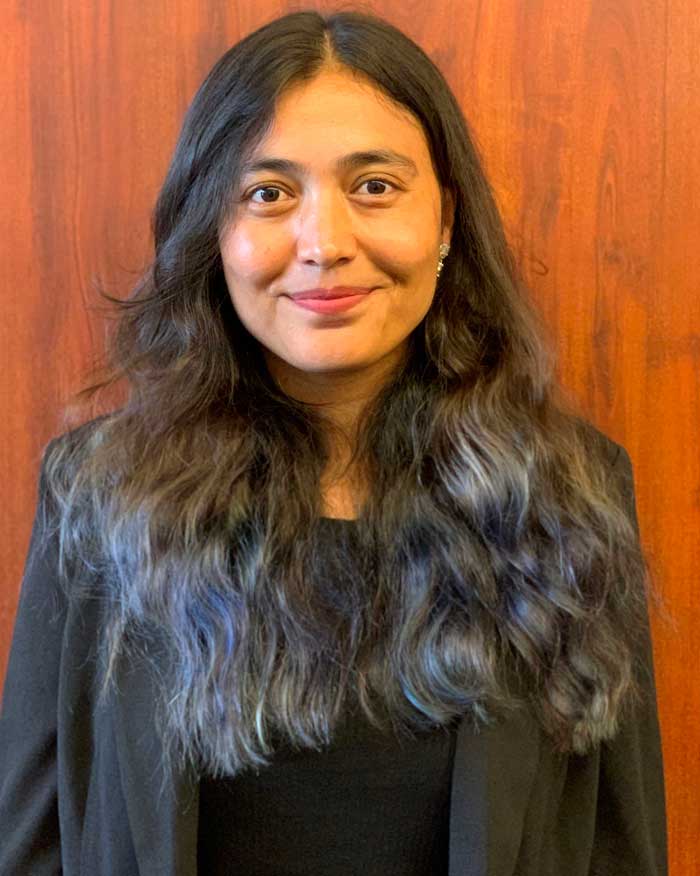
Kausar Perveen
Bachelor's Degree: Bachelor in Engineering Software Engineering, National University of Sciences and Technology, Pakistan
Master's Degree: Masters in Data Science, Illinois Institute of Technology, Chicago
- Fullstack Developer at ItRunsInMyFamily, Charleston, South Carolina
- Software Engineer II , Xgrid Pakistan
- Senior Research Coordinator, Aga Khan University Pakistan
- Machine Learning Engineer, Agoda Thailand
Publications: National cervical cancer burden estimation through systematic review and analysis of publicly available data in Pakistan
Service and Awards:
- Fulbright Scholarship award for Master’s degree in Data Science
- Aga Khan Education Service Pakistan, merit cumulative need based scholarship for Bachelors in Software Engineering
Professional Objective: My main motivation behind getting a degree in Data Science is to receive and perform qualified research experience in Data Science and public health

Bachelor's Degree: Statistics, University of Dhaka, Dhaka, Bangladesh
Master's Degree: Mathematics (Statistics Concentration), University of Toledo, Ohio
- Analytics Engineer Intern, Cooper Smith, Toledo, Ohio
- Business AnalystAkij Food and Beverage Limited, Dhaka, Bangladesh
Courses Taught: Introduction to Statistics
Professional Objective: I am interested to work as a data scientist in the industry

Ayomide Isaac Afolabi
Bachelor's Degree: Chemical Engineering, Ladoke Akintola University of Technology
Master's Degree: Data Science, Auburn University
Work History: Graduate Research Assistant, Auburn University
Courses Taught: Python Programming
Publications: Larson EA, Afolabi A, Zheng J, Ojeda AS. Sterols and sterol ratios to trace fecal contamination: pitfalls and potential solutions. Environ Sci Pollut Res Int. 2022 Jul;29(35):53395-53402. doi: 10.1007/s11356-022-19611-2 . Epub 2022 Mar 14. PMID: 35287190
Professional Objective: To work as a research data scientist in the industry

Dinesh Chowdary Attota
Bachelor's Degree: Computer Science, Jawaharlal Nehru Technological University Kakinada (JNTUK), India
Master's Degree: Computer Science, Kennesaw State University
Work History: Associate Consultant, SL Techknow Solutions India Pvt Ltd, India 2018 - 2020
- An Ensemble Multi-View Federated Learning Intrusion Detection for IoT
- A Conversational Recommender System for Exploring Pedagogical Design Patterns
- An Ensembled Method For Diabetic Retinopathy Classification using Transfer Learning
Professional Objective: I'd like to be a faculty member at a university so that I can continue to do research.

Nzubechukwu Ohalete
Bachelor's Degree: Mathematics,University of Nigeria, Nsukka
Master's Degree: Applied Statistics, Bowling Green State University
Work History: Graduate Assistant/Data Analyst, Federal University of Technology, Owerri - Mathematics Department
Courses Taught: Elementary Mathematics, Mathematical Methods
Awards: James A. Sullivan Outstanding Graduate Student Award, Applied Statistics and Operations Research Department, April 2022
Professional Objective: To use data science techniques to solve problems which makes our lives better and also makes our world a better place

Ryan Parker
Bachelor's Degree: Microbiology, University of Tennessee - Knoxville
Master's Degree: Integrative Biology, Kennesaw State University
Work History: Instructor of Biology, Kennesaw State University
Courses Taught: Nursing Microbiology Lectures and Labs, Introductory Biology Labs, Biotechnology Lectures and Labs
- Parker RA, Gabriel KT, Graham K, Cornelison CT. Validation of methylene blue viability staining with the emerging pathogen Candida auris. J Microbiol Methods. 2020 Feb;169:105829. doi: 10.1016/j.mimet.2019.105829 . Epub 2019 Dec 27. PMID: 31884053.
- Parker RA, Gabriel KT, Graham KD, Butts BK, Cornelison CT. Antifungal Activity of Select Essential Oils against Candida auris and Their Interactions with Antifungal Drugs. Pathogens. 2022 Jul 22;11(8):821. doi: 10.3390/pathogens11080821 . PMID: 35894044; PMCID: PMC9331469.
Awards: Best Graduate Poster: Symposium for Student Scholars hosted by Kennesaw State University (Fall 2018) for Poster: "Antifungal Activity of Select Essential Oils and Synergism with Antifungal Drugs against Candida auris"
Professional Objective : To apply Data Science techniques to large scientific datasets, such as genomic and astronomical data, and to help bridge the gap between disparate fields by working in an interdisciplinary space to offer integrative and data-driven solutions to the increasingly complex problems presented to the traditional Sciences.

Askhat Yktybaev
Bachelor's Degree: Forecasting and Strategic Management, Saint-Petersburg State University of Economics and Finance, Russia
Master's Degree: Forecasting and Strategic Management, Saint-Petersburg State University of Economics and Finance, Russia; Public Administration in Economic Policy Management, School of International and Public Affairs, Columbia University
Work History:
- from Data Analyst to Head of Research Unit, Central Bank of Kyrgyz Republic
- Sr. Data Scientist in OJSC, Aiyl Bank, Kyrgyzstan
- Consultant, The World Bank, Washington D.C.
Courses Taught: Financial Programing in the Central Bank, Monetary Policy Transmission Mechanism
Service and Awards: Winner of the Joint Japan/World Bank Graduate Scholarship Program, National Bank Silver Medal for Best Forecast
Professional Objective: I want to found a successful Fintech startup one day.

Sanad Biswas
Bachelor's Degree: Statistics, Biostatistics and Informatics, University of Dhaka, Bangladesh
Master's Degree: Statistics, University of Toledo, OH
- Research Assistant: US Army Research Lab, Kennesaw State University
- Consultant, Statistical Consulting Service, University of Toledo
- Graduate Teaching Assistant, University of Toledo
Courses Taught: Calculus and Business Calculus, Facilitated students’ study of Statistics courses at the University of Toledo.
Professional Objective: To work as a researcher in the industry or as a faculty. I am primarily interested in the application of machine learning in different fields.

Mallika Boyapati
Bachelor's Degree: Electronics and Computer Engineering, K L University, India
Master's Degree: Applied Computer Science, Columbus State University
- T-Mobile, Seattle, WA, USA: Sr. Data analyst, 2018- 2021
- UITS, Columbus State University, Columbus, GA, USA: Data Analyst -Graduate assistant, 2016-2018
- Menlo Technologies, India: Jr. Data Analyst, Intern, 2014- 2016
Courses Taught: DATA 4310 - Statistical Data Mining
Publications:
- Anti-Phishing Approaches in the Era of the Internet of Things. In: Pathan, AS.K. (eds) Towards a Wireless Connected World: Achievements and New Technologies. Springer, Cham - https://doi.org/10.1007/978-3-031-04321-5_3
- An empirical analysis of image augmentation against model inversion attack in federated learning - https://doi.org/10.1007/s10586-022-03596-1
- M. Boyapati and R. Aygun, "Phishing Web Page Detection using Web Scraping," SoutheastCon 2023, Orlando, FL, USA, 2023, pp. 167-174, doi: 10.1109/SoutheastCon51012.2023.10115148.
- M. Boyapati and R. Aygun, "Default Prediction on Commercial Credit Big Data Using Graph-based Variable Clustering," 2023 IEEE 17th International Conference on Semantic Computing (ICSC), Laguna Hills, CA, USA, 2023, pp. 139-142, doi: 10.1109/ICSC56153.2023.00029.
- Boyapati, M., Aygun, R. (2023) Explainable Machine Learning for Default Prediction on Commercial Credit Big Data Using Graph-based Variable Clustering. In Encyclopedia with Semantic Computing and Robotic Intelligence VOL. 0 https://doi.org/10.1142/S2529737623500119
- Winners of Dataiku March Madness Bracket-thon, 2021 in predicting the NBA bracket
- Winners of 2021 Analytics Day Ph.D. level research poster presentation
Professional Objective: To leverage strong analytical and technical abilities to research and develop effective data models, visualize data, and uncover insights that makes an impact in field of data science

Nina Grundlingh
Bachelor's Degree: Applied Mathematics and Statistics, University of KwaZulu-Natal, South Africa
Master's Degree: Statistics, University of KwaZulu-Natal, South Africa
Courses Taught: Introduction to Statistics, University of KwaZulu-Natal
- Grundlingh, N., Zewotir, T., Roberts, D. & Manda, S. Modelling diabetes in South Africa. The 61st conference of the South African Statistical Association, 27-29 November 2019, Nelson Mandela University, South Africa.
- Grundlingh, N., Zewotir, T., Roberts, D. & Manda, S. Modelling diabetes in the South African population. College of Agriculture, Engineering and Science Postgraduate Research & Innovation Symposium 2019, 17 October 2019, University of KwaZulu-Natal, Westville, South Africa (the award for best MSc presentation was also received for this).
- Grundlingh, N., Zewotir, T., Roberts, D. & Manda, S. Modelling risk factors of diabetes and pre-diabetes in South Africa. IBS SUSAN-SSACAB 2019 Conference, 8-11 September 2019, Cape Town, South Africa.
- University of KwaZulu-Natal Postgraduate Research & Innovation Symposium 2019 – Best Masters oral presentation
- South African Statistical Association Honours Project Competition 2018/2019 – 2nd place and special prize for best use of SAS
Professional Objective: To work in a teaching position – sharing how data science can be applied to different fields and the positive impact it could have. I would like to use my theological background and passion to bring insight, clarity, and wisdom to data science problems.

Namazbai Ishmakhametov
Bachelor's Degree: Specialist in Mathematical Methods in Economics, Kyrgyz-Russian Slavic University
Master's Degree: Analytics, Institute for Advanced Analytics at North Carolina State University
- Expert at the Centre for Economic Research, National bank of the Kyrgyz Republic
- Consultant in World Bank project dedicated to strengthening the regulatory practices in Kyrgyz Republic
- Consultant at Deloitte Consulting LLP, Science Based Services group, Analytics & Cognitive offering
- Macroeconomic modeling expert in the Economic Department, National bank of the Kyrgyz Republic
Courses Taught: Introductory statistics and econometrics (cross-sections, times series and panels) lecturer at Ata-Turk Alatoo International University, Kyrgyzstan
- Ishmakhametov Namazbai, Abdygulov Tolkunbek, Jenish Nurbek. 2020. “ Impact of 2014-2015 shocks on economic behavior of the households in the Kyrgyz Republic ". Working Paper of the National Bank of the Kyrgyz Republic
- Sherrill W. Hayes, Jennifer L. Priestley, Namazbai Ishmakhametov, Herman E. Ray. 2020. “ I’m not Working from Home, I’m Living at Work ”: Perceived Stress and Work-Related Burnout before and during COVID-19”. PsyArxiv Preprints
- Ishmakhametov Namazbai, Arykov Ruslan. 2016. “ Credit Risk Model on the Example of the Commercial Banks of the Kyrgyz Republic ”. Working Paper of the National Bank of the Kyrgyz Republic
- Namazbai Ishmakhametov, Anvar Muratkhanov.2015. “Modeling strategy of the Bank of the Kyrgyz Republic”. National bank of Poland – Swiss National bank joint seminar. Zurich, Switzerland
Professional Objective: To apply my quantitative skills in the field of biotech either in corporate or government sector

Symon Kimitei
Bachelor's Degrees: Mathematics, Kennesaw State University, and Computer Science, Kennesaw State University
Master's Degree: Mathematics (Scientific Computing Concentration), Georgia State University
Work History: Senior Lecturer and Math Department Coordinator of Supplemental Instruction, Kennesaw State University
Courses Taught: Calculus 1, Precalculus, Applied Calculus & College Algebra
- Haskin, S., Kimitei, S., Chowdhury, M., Rahman, F., Longitudinal Predictive Curves of Health-Risk Factors for American Adolescent Girls. Journal of Adolescent Health. JAH-2021-00601R1
- Symon K Kimitei, Algorithms for Toeplitz Matrices with Applications to Image Deblurring . 2008. Georgia State University, Masters thesis. ScholarWorks
Poster Presentations:
- Kimitei, Symon & Sammie Haskin. "Nadaraya-Watson Kernel Regression Longitudinal Analysis of Healthcare Risk Factors of African American and Caucasian American Girls." Kennesaw State University R Day Presentation. 11 Nov. 2019. Poster presentation.
- Kimitei, Symon. " Social Network Analysis in Supreme Court Case Rulings by Precedence Using SAS Optgraph/Python." 23rd Annual Symposium of Scholars. Kennesaw State University. 19 April. 2018. Poster presentation.
Professional Objective: As a Ph.D. student in Analytics & Data Science, I hope to gain skills in the program that will propel me into a Data Scientist / Machine Learning Engineer with a specialization in the design and implementation of deep learning & machine learning algorithms.

Jitendra Sai Kota
Bachelor's Degree: Computer Science & Engineering, Amrita Vishwa Vidyapeetham, India
Master's Degree: Computer Science, Florida State University
Work History: Teaching Assistant Professor in Computer Science at an Engineering College in India
Courses Taught: Problem Solving & Program Design through C, Artificial Intelligence, Data Mining
Publications: Kota, Jitendra Sai, Vayelapelli, Mamatha. 2020. "Predicting the Outcome of a T20 Cricket Game Based on the Players' Abilities to Perform Under Pressure". IEIE Transactions on Smart Processing and Computing 9(3):230-237. DOI: 10.5573/IEIESPC.2020.9.3.230
Professional Objective: to work in Data Science in a Corporate Environment
ResearchGate

Catrice Taylor
Bachelor's Degree: Economics, Clemson University
Master's Degrees: Applied Economics and Statistics, Clemson University, and Applied Statistics, Kennesaw State University
Professional Objective: To work as an industry data scientist in a corporate environment
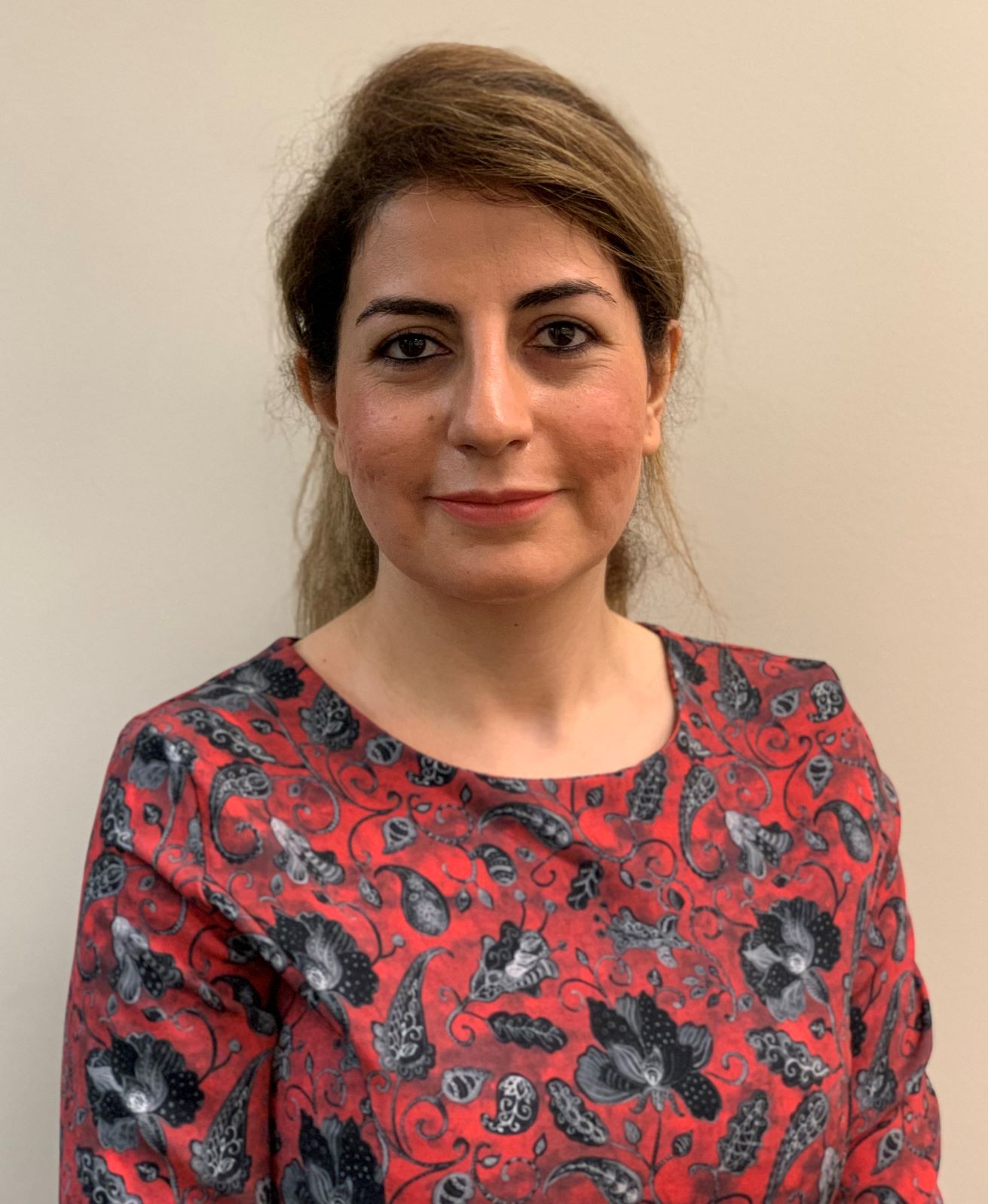
Sahar Yarmohammadtoosky
Bachelor's Degree: Applied Mathematics, Sheikh Bahaei University, Isfahan, Iran
Master's Degree: Applied Mathematics, Iran University of Science & Technology, Tehran, Iran
Courses Taught: Numerical Analysis and Linear Algebra, Iran University of Science & Technology
Publications: Noah, G., Sahar, Y., Anthony P. & Hung, C.C. "ISODS: An ISODATA-Based Initial Centroid Algorithm". Accepted to: 10th International Conference on Information, March 6 - 8, 2021, Hosei University, Tokyo, Japan
Professional Objective: My goal is to become a competent Data Science specialist capable of using my skills to bring meaning to data, getting a faculty position at a university

Martin Brown
Graduation Date: Spring 2024
Dissertation: A Holistic and Collaborative Behavioral Health Detection Framework Using Sensitive Police Narratives
Dissertation Advisors: Dr. Dominic Thomas and Dr. Md Abdullah Al Hafiz Khan

Inchan Hwang
Graduation Date: Summer 2024
Dissertation: Next-Generation Medical Imaging Dataset Management Leveraging Deep Learning Frameworks in Breast Cancer Screening
Dissertation Advisor: Dr. MinJae Woo
Current Position: Assistant Professor of Cybersecurity, Montreat College

Duleep Prasanna Rathgamage Don
Bachelor's degree: Physics and Mathematics, The Open University of Sri Lanka
Master's degree: Mathematics, Georgia Southern University
- Graduate Teaching Assistant, Georgia Southern University, 2016 - 2018
- Graduate Teaching Assistant, University of Wyoming, 2019 - 2020
Courses Taught: Trigonometry, and Calculus I & II
Publications/Presentations:
- Don, R. D. and Iacob, I. E., ‘DCSVM: Fast Multi-class Classification using Support Vector Machines’, International Journal of Machine Learning and Cybernetics .
- Rathgamage Don, D., Iacob, E., ‘Divide and Conquer Support Vector Machine for Multiclass Classification’, Research Symposium (2018), Georgia Southern University.
- Rathgamage Don, D., Iacob, E., ‘Multiclass Classification using Support Vector Machines’, MAA Southeastern Section Meeting (2018), Clemson University.
Professional Objective: To work in big data analytics, and research and development of machine learning in engineering, and medicine

Linglin Zhang
Graduation Date: Summer 2024
Dissertation: Innovative Approaches for Identifying and Reducing Disparity in Machine Learning Model Performance – Bridging the Gap in Binary Classification for Health Informatics
Current Position: Data and Analytics RDP Associate, Equifax

Yihong Zhang
Bachelor’s Degree: Psychology Mathematics Interdisciplinary, Chatham University
Master’s Degree: Mathematics and Statistics Allied with Computer Science, Georgia State University
- Research Assistant - Collaborated with biomedical department to analyze and visualize microarray gene expression data, Facilitated in data pre-processing and machine learning modeling of clinical liver cirrhosis image data, Assisted in feature engineering of image analysis in deep learning for pathology diagnosis with Mayo Clinic’s pilot project.
- Graduate Lab Assistant - Tutored students with statistics and math subjects.
Professional Objective: Make better use of data in healthcare and bioinformatic industry as a data scientist.
2019 - 2020

Trent Geisler
Graduation Date: Summer 2022
Dissertation: Novel Instance-Level Weighted Loss Function for Imbalanced Learning
Dissertation Advisor: Dr. Herman Ray
Current Position: Assistant Professor, Department of Systems Engineering, United States Military Academy West Point
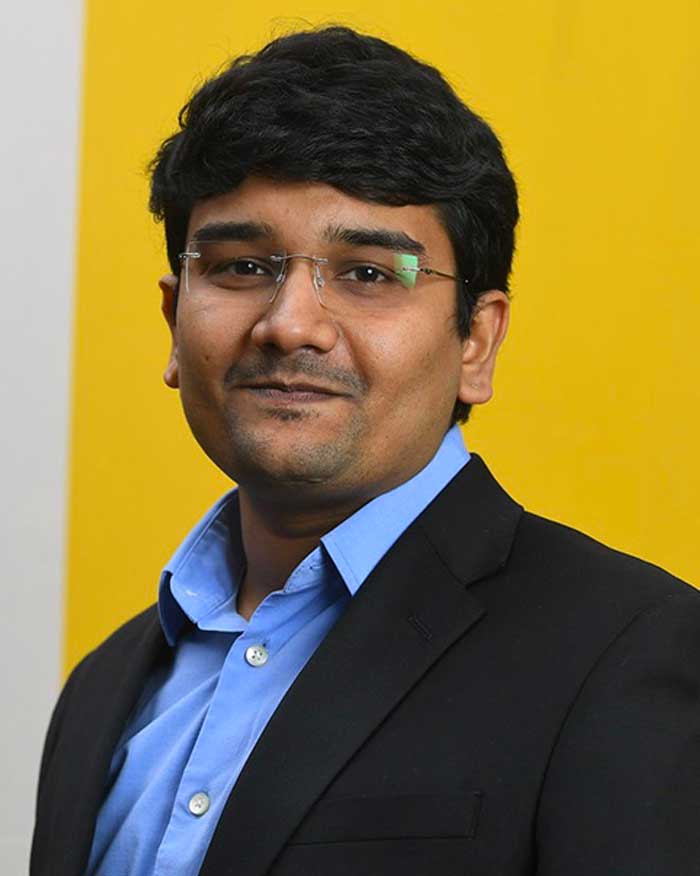
Srivatsa Mallapragada
Dissertation: Multi-Modality Transformer for E-Commerce: Inferring User Purchase Intention to Bridge the Query-Product Gap
Dissertation Advisor: Dr. Ying Xie
Current Position: Data Scientist, Rue Gilt Groupe (RGG)

Sudhashree Sayenju
Graduation Date: Spring 2023
Dissertation: Quantification and Mitigation of Various Types of Biases in Deep NLP Models
Dissertation Advisor: Dr. Ramazan Aygun
Current Position: Lecturer, Data Science and Analytics, Kennesaw State University

Christina Stradwick
Bachelor’s Degree: Music Performance and Mathematics, Marshall University
Master’s Degree: Mathematics with Emphasis in Statistics, Marshall University
Courses Taught: Prep for College Algebra at Marshall University
Selected Presentations:
- Stradwick, C. Exploring the Variance of the Sample Variance. Spring Meeting of the Mathematical Association of America Ohio Section, University of Akron, 2019.
- Stradwick, C., Vaughn, L., Hanan Khan, A. Data Modeling on Insurance Beneficiary Dataset. College of Science Research Expo 2018, Marshall University, 2018. Poster Presentation.
- Stradwick, C. Disease modeling on networks. The 13th Annual UNCG Regional Mathematics and Statistics Conference, University of North Carolina at Greensboro, 2017. Poster Presentation.
Professional Objectives: To work as a researcher in industry or in a laboratory setting. I would like to use my background in mathematics and statistics to develop novel solutions that address limitations in current data science techniques and to apply known data science methods to solve real-world problems.
2018 - 2019

Md Shafiul Alam
Graduation Date: Fall 2022
Dissertation: Appley: App roximate Shap ley Values for Model Explainability in Linear Time
Dissertation Advisor: Dr. Ying Xie
Current Position: AI Framework Engineer, Intel Corporation

Jonathan Boardman
Dissertation: Ethical Analytics: A Framework for a Practically-Oriented Sub-Discipline of AI Ethics
Current Position: Data Scientist, Equifax

Tejaswini Mallavarapu
Bachelor’s Degree: Pharmacy, Acharya Nagarjuna University, India
Master’s Degree: Computer Science, Kennesaw State University
- Graduate Research Assistant, Kennesaw State University, 2017-present
- Research Analyst, Divis Laboratories, 2013-2014
Selected Publications:
- T. Mallavarapu, Y. Kim, J.H. Oh, and M. Kang, "R-PathCluster: Identifying Cancer Subtype of Glioblastoma Multiforme Using Pathway-Based Restricted Boltzmann Machine," Proceedings of IEEE International Conference on Bioinformatics & Biomedicine (IEEE BIBM 2017), International Workshop on Deep Learning in Bioinformatics, Biomedicine, and Healthcare Informatics, Accepted, 2017.
- M.R. Shivalingam, K.S.G. Arul Kumaran, D. Jeslin, Ch. MadhusudhanaRao, M. Tejaswini, "Design and Evaluation of Binding Properties of Cassia roxburghii Seed Galacto mannan and Moringa oleifera Gum in the Formulation of Paracetamol Tablets," Research Journal of Pharmacy and Technology(RJPT). 3(1): Jan.-Mar. 2010; Page 254-256.
- M.R. Shivalingam, K.S.G. Arul Kumaran, D. Jeslin, Y.V. Kishore Reddy, M. Tejaswini, Ch. MadhusudhanaRao, V. Tejopavan, "Cassia roxburghii Seed Galacto manna— a potential binding agent in the tablet formulation," Journal of Biomedical Science and Research(JBSR), Vol 2 (1), 2010, 18-22
Professional Objective: To be a data scientist in the field of health care or bioinformatics where I can leverage my analytical skills and knowledge towards the advancement of the research field.
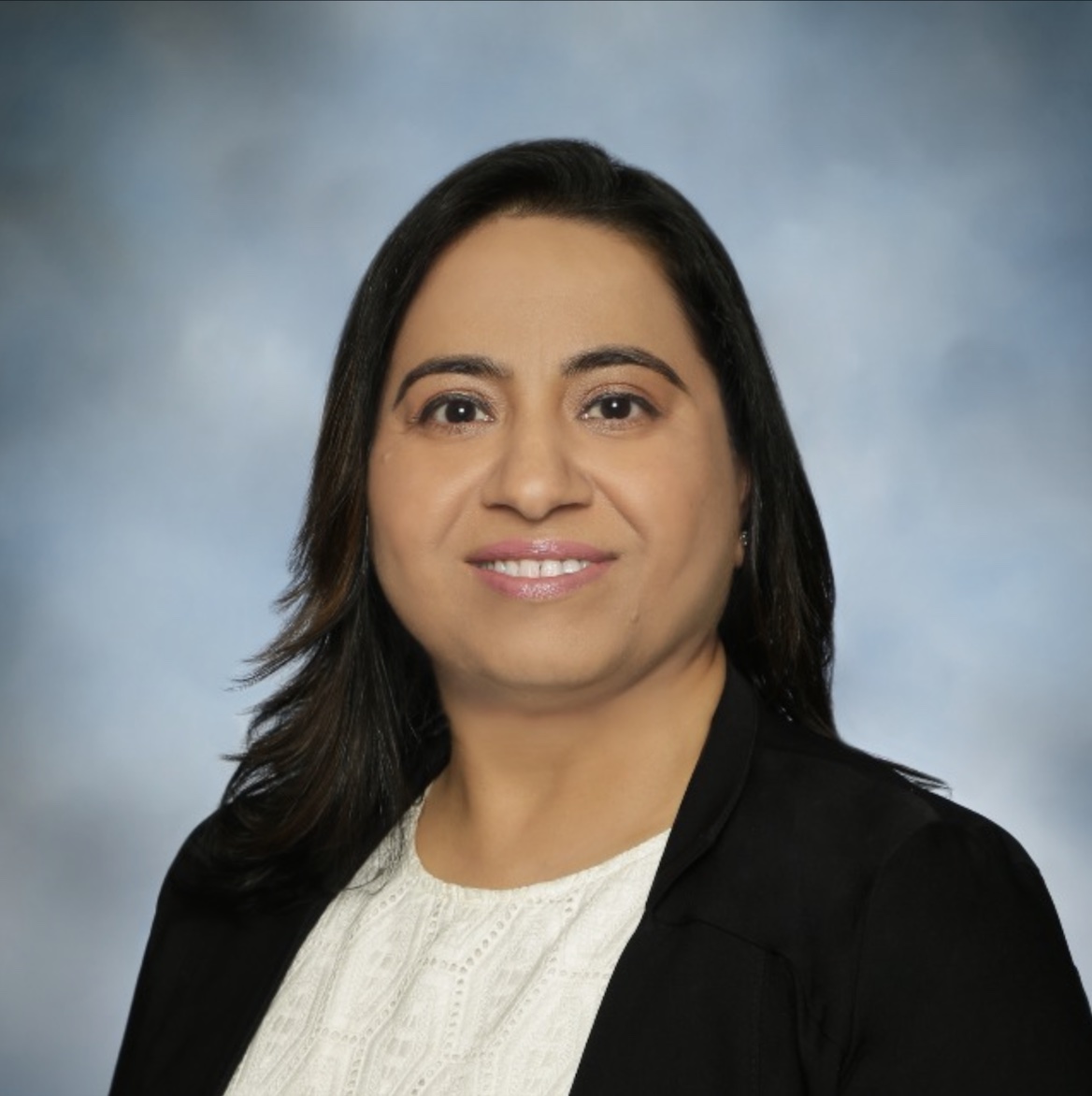
Seema Sangari
Dissertation: Debiasing Cyber Incidents - Correcting for Reporting Delays and Under-reporting
Dissertation Advisor: Dr. Michael Whitman
Current Position: Principal Modeler, HSB

Srivarna Settisara Janney
Bachelor’s Degree: Mechanical Engineering, Visveswaraiah Technological University, India
- Graduate Research Assistant, Kennesaw State University, 2016-2018
- Senior Software Engineer, Torry Harris Business Solutions (THBS), United Kingdom, 2010-2012 and India, 2012-2014
- Software Engineer, Torry Harris Business Solutions (THBS), India, 2007-2010
Selected Publications/Presentations:
- S.S. Janney, S. Chakravarty, “New Algorithms for CS – MRI: WTWTS, DWTS, WDWTS”, One-page research paper, 40th International Conference of IEEE Engineering in Medicine and Biology Society (IEEE EMBC), Jul 2018
- Master thesis presented at Southeast Symposium on Contemporary Engineering Topics (SSCET), UAH Engineering Forum, Alabama, Aug 2018
- Master thesis poster is accepted to be presented at Biomedical Engineering Society (BMES) 2018 Annual Meeting, Oct 2018
- Submitted draft copy for book chapter contribution on “Bioelectronics and Medical Devices”, Elsevier Publisher, May 2018
- Showcased 3MT, Georgia Council of Graduate Schools (GCGS), Apr 2018
- Master thesis presented in workshop for “Medical Signal and Image Processing” at Department of Biotechnology & Medical Engineering, NIT Rourkella, Feb 2018
- S.S. Janney, I. Karim, J. Yang, C.C Hung, Y. Wang, “Monitoring and Assessing Traffic Safety Using Live Video Images”, GDOT project showcase, 4th Annual Transportation Research Expo, Sept 2016
- 1st Place Winner, Graduate Research Project, C-day Poster Presentation, Kennesaw State University, Spring 2018
- People's Choice Award, 3 Minute Thesis (3MT), Apr 2018
- CCSE Dean’s 4.0 Club, Jan 2018
- 3rd Place Winner, Hackathon 2017 - HPCC Systems Big Data
- Foundation of Computer Science, Certified by Kennesaw State University, Jun 2016
- Fundamental of RESTful API Design, Certified by APIGEE, Nov 2014
- Member of HandsOnAtlanta, since 2014
- SOA Associate, Certified by IBM, Jun 2008
Professional Objective: I would like to be a researcher in Data Science and Analytics in medical imaging technologies contributing to advancements that would help medical and healthcare professionals provide value-based and personalized health care. I would like to look at career opportunities in industry and academia that fuel my interest in research.
2017 - 2018

Andrew M. Henshaw
Bachelor’s Degree: Electrical Engineering, Georgia Tech
Master’s Degree: Electrical Engineering, Georgia Tech
Master’s Degree: Business Administration, Georgia State University
- Georgia Tech Research Institute, Sr. Research Engineer, 2001-
- APower Solutions, Vice President, 1999-2001
- Georgia Tech Research Institute, Research Engineer II, 1990-1999
- Georgia Tech, School of Electrical Engineering, Research Engineer I, 1986-1990
Courses Taught: Software-Defined Radio Development with GNU Radio: Theory and Application, Georgia Tech Professional Education
Selected Publications/Presentations: Python Cookbook, Vol 1, 2002, “Sorting Objects Using SQL’s ORDER BY Syntax”
Triangulation Clustering
Lyrical: Complexity Analysis of Pop Song Lyrics
Service and Awards: International Test and Evaluation Association (ITEA) Atlanta Chapter, President, 1995

Graduation Date: Summer 2021
Dissertation: Incentive-based Data Sharing and Exchanging Mechanism Design
Dissertation Advisor: Dr. Meng Han
Current Position: Assistant Professor, Saint Joseph's University - Erivan K. Haub School of Business

Mohammad Masum
Dissertation: Integrated Machine Learning Approaches to Improve Classification Performance and Feature Extraction Process for EEG Dataset
Dissertation Advisor: Dr. Hossain Shahriar
Current Position: Assistant Professor, San Jose State University

Lauren Staples
Graduation Date: Fall 2021
Dissertation: A Distance-Based Clustering Framework for Categorical Time Series: A Case Study in the Episodes of Care Healthcare Delivery System
Dissertation Advisor: Dr. Joseph DeMaio
Current Position: Senior Data Scientist, Microsoft
2016 - 2017

Shashank Hebbar
Dissertation: Tree-BERT - Advanced Representation Learning for Relation Extraction
Current Position: Data Scientist, Credigy

Jessica Rudd
Graduation Date: Summer 2020
Dissertation: Quantitatively Motivated Model Development Framework: Downstream Analysis Effects of Normalization Strategies
Dissertation Advisor: Dr. Herman Ray
Current Position: Senior Data Engineer, Intuit Mailchimp

Graduation Date: Spring 2020
Dissertation: Data-driven Investment Decisions in P2P Lending: Strategies of Integrating Credit Scoring and Profit Scoring
Dissertation Advisor: Dr. Sherry NI
Current Position: Applied Scientist II, Amazon

Dissertation: A Novel Penalized Log-likelihood Function for Class Imbalance Problem
Current Position: Data Scientist/Research Engineer, Hewlett Packard Enterprise

Dissertation: Attack and Defense in Security Analytics
Dissertation Advisor: Dr. Selena He
Current Position: NLP Data Scientist, NBME
2015 - 2016

Edwin Baidoo
Graduation Date: Spring 2020
Dissertation: A Credit Analysis of the Unbanked and Underbanked: An Argument for Alternative Data
Dissertation Advisor: Dr. Stefano Mazzotta
Current Position: Assistant Professor, Business Analytics, Tennessee Technological University

Bogdan Gadidov
Graduation Date: Summer 2019
Dissertation: One- and Two-Step Estimation of Time Variant Parameters and Nonparametric Quantiles
Dissertation Advisor: Dr. Mohammed Chowdhury
Current Position: Data Scientist, Variant

Dissertation: Biologically Interpretable, Integrative Deep Learning for Cancer Survival Analysis
Dissertation Advisor: Dr. Mingon Kang
Current Position: Assistant Professor, Chinese Academy of Medical Sciences, Peking Union Medical College

Graduation Date: Spring 2019
Dissertation: Deep Embedding Kernel
Current Position: Assistant Professor, Information Technology, Kennesaw State University

Bob Venderheyden
Graduation Date: Fall 2019
Dissertation: Ordinal Hyperplane Loss
Dissertation Advisor: Dr. Ying Xie
Current Position: Principal Data Scientist, Microsoft
Contact Info
Kennesaw Campus 1000 Chastain Road Kennesaw, GA 30144
Marietta Campus 1100 South Marietta Pkwy Marietta, GA 30060
Campus Maps
Phone 470-KSU-INFO (470-578-4636)
kennesaw.edu/info
Media Resources
Resources For
Related Links
- Financial Aid
- Degrees, Majors & Programs
- Job Opportunities
- Campus Security
- Global Education
- Sustainability
- Accessibility
470-KSU-INFO (470-578-4636)
© 2024 Kennesaw State University. All Rights Reserved.
- Privacy Statement
- Accreditation
- Emergency Information
- Report a Concern
- Open Records
- Human Trafficking Notice

- Graduate Programs
- Undergraduate Program
- Executive Education
- Research & Faculty
- News & Events
Current Students
- Mendoza Alumni
- The Notre Dame MBA
- Dual Degrees
- Accountancy (MSA)
- Business Analytics (MSBA)
- Digital Marketing (MSDM)
- Finance (MSF)
- Management (MSM)
- Nonprofit Administration (MNA)
- Global Executive MBA
- Executive Master of Nonprofit Administration (EMNA)
Ph.D. in Analytics
- PhD in Management
- Undergraduate (BBA)

The core mission of the Mendoza PhD in Analytics is to develop thought-leaders in the analytics space that are engaged in impactful, cutting-edge scholarly research that considers the ethical dimension of data and its usage. Graduates of the PhD program are well-positioned to attain academic jobs at top business schools, where they can pursue successful careers in data analytics intensive domains such as business analytics, data science, information systems, operations, and computational social science, conducting research that is impactful and supports human flourishing.
Why Attain a PhD in Analytics?
The PhD degree is intended for those interested in the pursuit of knowledge – creating knowledge through research and disseminating new knowledge to students in the classroom. The field of analytics is without question one that is having a profound impact on business and society. There is a need for new professors capable of pursuing knowledge related to themes such as leadership in an AI-enabled world , ethical human-centered analytics , impactful computational social science , and next generation digital experimentation . These are just a few examples – we encourage our doctoral students to pursue whatever topics they’re passionate about and support them throughout their journey.
Why Notre Dame?
The Department of IT, Analytics, and Operations ( ITAO) is one of the premiere analytics departments, with world-class faculty, cutting-edge research labs, unparalleled industry connections, and access to a large network of Notre Dame alumni that are eager to support analytics thought-leadership.

Faculty Productivity and Reputation
The ITAO department encompasses a diverse set of faculty with significant research capabilities and extensive editorial board experience. ITAO faculty members currently serve in 10+ editorial roles at major journals related to analytics, information systems, and operations; and others have served in similar positions at quality journals previously. In recent years, ITAO faculty have won research awards at top journals and associations such as AIS, INFORMS, POM Society, and the IEEE.

Research Labs and Centers
The ITAO department has multiple analytics-focused research labs, including the Gaming Analytics Lab ( GAMA ) and the Human-centered Analytics Lab ( HAL ). Department faculty are also actively involved with the Notre Dame Technology Ethics Center ( ND-TEC ) and the Lucy Family Institute for Data and Society. Additionally, the Mendoza College of Business has a full-time dedicated data science team that supports data acquisition, collection, and wrangling as part of the Mendoza Behavioral Lab ( MBL ).

Partnerships with Industry
Our faculty routinely collaborate with various industry partners and federal agencies, including Electronic Arts, Ubisoft, eBay, Oracle, and NASA. The department is also actively involved with Notre Dame California ( ND California ), iNDustry Labs , and the Applied Analytics and Emerging Technology Lab (AeTL).

Cutting-edge Curriculum
It is essential that Ph.D. programs equip their graduates with the thorough, current training demanded by today’s market. Our analytics PhD program is well-positioned to produce “T-shaped” scholars that receive a foundation comprising select theories and ethics coursework, and depth via analytics methods courses and seminars. We see an opportunity to develop multi-dimensional scholars well-versed in contemporary analytics methods while also being adept at framing problems, thinking critically about the logic and flow between a problem and proposed solution, and capable of extrapolating their work to the bigger picture.

Institutional Prestige
Notre Dame is a Top 20 US News university with an international reputation and brand. A PhD from Notre Dame therefore sets our graduates up for success in academia at elite private schools or flagship state universities. Some of our graduates are also well-positioned for industry-oriented research roles.
The IT, Analytics, and Operations (ITAO) faculty use contemporary analytics methods such as machine learning, econometrics, statistics, and analytical modeling to study an array of research topics including ethics and privacy, health, sports and gaming, AI business applications, digital experimentation methods, and e-commerce:
- Ahmed Abbasi (AI, machine learning, text analytics, user modeling)
- Corey Angst (health analytics, ethics, privacy, security)
- Nicholas Berente (digital innovation, managing AI, institutional change)
- Francis Bilson Darku (sequential analysis, nonparametric statistics, econometrics)
- Jeff Cai (statistical learning, network analysis, data science)
- Sarv Devaraj (business analytics, healthcare management, supply chains)
- Rob Easley (economic modeling, Internet auctions, e-commerce)
- Ken Kelley (psychometrics, statistical methods, human-centered analytics)
- John Lalor (machine learning, natural language processing)
- Junghee Lee (innovation/technology in supply chains, healthcare operations)
- Kirsten Martin (technology ethics, privacy, business responsibility)
- Alfonso Pedraza-Martinez (humanitarian operations, disaster management, analytical modeling)
- Xinxue (Shawn) Qu (innovation diffusion, data management, predictive analytics)
- Sriram Somanchi (machine learning, event and pattern detection)
- Yoon Seock Son (econometrics, mobile strategy, AI business strategies)
- Daewon Sun (pricing strategies, resource management, economics of IS)
- Margaret Traeger (computational social science, social networks, health analytics)
- Katie Wowak (supply chains, traceability in global networks)
- Yang Yang (machine learning, network analysis, computational social science)
- Zifeng Zhao (statistical methods, large-scale forecasting, risk monitoring)
Program Structure
The program is designed to be five-years, full-time, in-residence. Click below for a year-by-year breakdown of how the program is structured.
In the first year, you will learn foundational theories, concepts, and methods related to analytics. ITAO seminar courses will include Human-centered AI, Philosophy of Science, and Computational Social Science. Methods related coursework will include classes related to machine learning, data science, statistics, and/or econometrics. Based on prior coursework, some students might be able to opt out of certain courses. In consultation with the program director, you will form a plan of study for methods courses and electives that align with your research interests.
At the beginning of the first year, you will also be assigned a faculty mentor that will guide your efforts related to the first-year research paper – the purpose of the first-year paper is to demonstrate the potential to produce high-quality scholarly manuscripts.
In year 2, you will continue to broaden and deepen your understanding of the analytics space with ITAO seminars related to Human-centered Statistics, Mathematical Modeling for Consumer Analytics, Operations and Prescriptive Analytics, and Data and Technology Ethics. At the end of the second year, you will have an examination requirement (in the form of an exam or paper). This examination will test your knowledge of ITAO seminar courses taken over the first two years. Your second-year faculty mentor will offer guidance on the paper.
You will wrap up any remaining coursework and turn your attention to pushing research projects towards publication.
In addition to managing your research portfolio, you’ll focus on finalizing your dissertation topic and defending your proposal.
The final year will involve interviewing for open positions, completing dissertation chapters, and having your final defense. And then, onward and upward into your exciting new career!

Marialena Bevilacqua received a BA in Math with a minor in Statistics from the College of Holy Cross in Massachusetts, where she was class president and captain of the field hockey and lacrosse teams. She attained an MS in Business Analytics from Georgetown University. Marialena was a brand operations analyst and manager plus “rookie of the year” at Thrasio.

Ryan Cook received a BS in Analytics with a minor in Philosophy from Notre Dame, and an MS in Computer Science from the University of Pennsylvania. He worked as a research scientist in Notre Dame’s Human-centered Analytics Lab and Center for Computer Assisted Synthesis, supporting projects related to NLP and network analysis. Ryan was also previously an analyst at EY in Chicago.

Jiehui Luo attained dual bachelor’s degrees from Dartmouth College (Computer Engineering) and Mount Holyoke College (Computer Science with a minor in Math). She received her MPhil in Computer Science and Engineering from HKUST. Her research interests relate to human-computer interaction and human-centered AI. Jiehui was previously a product manager at Tencent.

Alyona Nefedova majored in Math at the Higher School of Economics. Her thesis examined classification and discovery of R-matrices. She received the Governor’s medal for academic excellence. Alyona explored trading models at the Center for Mathematical Finance, and assisted with cognitive science projects at the fMRI Lab. She previously taught middle school math and volunteers at Canada/USA Mathcamp.

Kezia Oketch attained a BS in Computer Science from Spelman College and an MS in Engineering, Science, and Technology Entrepreneurship from Notre Dame. She was a Gold Scholar at the Grace Hopper Conference and co-founded a research startup focused on technology-based solutions to the cancer crisis in Kenya. Kezia was also a software engineer at an Ohio-based tech company.

Sunan Qian double majored in Economics and Math, and minored in French, at Mount Holyoke College. She received an MS in Finance with a minor in Quantitative Methods from Carnegie Mellon University – her thesis explored the impact of environmental regulation on firms’ carbon emissions and market value. Sunan was a digital consultant for Accenture in Tokyo.

Will Stamey was a double major in Economics and Math at Baylor University, with a minor in Philosophy. He was a Baylor Fellow and Crane Scholar, and completed the health economics sequence. Will’s honors thesis explored the impact of online education on academic outcomes. He was also a researcher at the Colorado Summer Institute in Biostatistics.

Becky Zhang double majored in Computer Science & Economics, and Applied Math, at Washington University in St. Louis. She received an MS in Computational and Applied Math from the University of Chicago – her thesis explored methods for stochastic non-linear optimization. Becky’s industry experience includes internships as a research analyst and data scientist at major software and technology companies.

Xinyuan Zhang completed her undergraduate coursework from the University of Sydney, where she double majored in Finance and Statistics and researched sentiment analysis in the Computing Finance Lab. Xinyuan received an MS in Statistics from UCLA – her thesis explored preference models for two-sided platforms. She was also a researcher in the Trusted AI Systems Lab at Nankai University.

As Director of the Analytics PhD program, I’m happy to answer any questions you might have about our program (or a PhD in general). Feel free to email me at [email protected]. I look forward to connecting with you.
Our application deadline for the Fall 2025 incoming cohort is January 7, 2025 . You can apply using the “APPLY” button in the side menu (also appearing in the menu at the top of the page).
Ahmed Abbasi
Frequently Asked Questions
All students who are admitted to the program will be given a full tuition waiver. So the program is essentially tuition-free, with the only direct costs being miscellaneous university fees. In addition, all PhD students are paid a stipend of $42,000 a year. That stipend serves as compensation for your research activities (and for the teaching you would do in years three and four).
We require either the GRE or the GMAT, and have no preference between the two. If you’ve previously taken one of those tests, we require a score that is less than five years old. Unfortunately, the admissions committee will not waive the GRE/GMAT requirement under any circumstances.
It’s hard to say, as that is a function of a given application cycle, along with the rest of an applicant’s admissions portfolio. Most years, however, verbal and quantitative percentiles in the 80’s or above will be needed to advance to the short list.
Yes, if English is not your native language, or if English was not your language of college instruction. We accept either the TOEFL or the IELTS. If you’ve previously taken one of those tests, we require a score that is less than two years old.
You’ll fill out an online application form that will be linked on this site. And you’ll provide your resume, a statement of purpose/intent, three letters of recommendation, and unofficial transcripts of college (and any masters) degrees.
No. This sort of degree is best thought of as a research apprenticeship—where you are learning research skills in collaboration with faculty. That sort of collaboration requires a full-time, five-year, in-residence commitment.
Yes. While the program will prepare graduates to work in teaching institutions, government, and industry, the priority will be to prepare students for faculty roles so that they can be thought-leaders involved in teaching the next generation of analytics students and working to advance analytics-oriented research. Typically 80-90% of PhDs in Analytics take academic positions, while 10-20% pursue careers in industry (e.g., Silicon Valley, Wall Street, Think Tanks, etc.).
No. This is—first and foremost—a research degree. Teaching is part of the degree, as teaching is an important part of a professor’s career. But, if teaching or administration are your main focus, you might do a search for teaching-oriented PhD programs or Doctor of Business Administration (DBA) programs, which are sometimes also called Executive Doctorate programs.
2024 Best Online PhD in Data Analytics [Doctorate Programs]
A PhD in Data Analytics is a terminal degree that prepares students to become experts in data-based careers.

People who enter a PhD in Data Analytics program are usually passionate about making discoveries and performing in-depth research. Since these programs are heavily research-based, many students who enroll do so in hopes of entering the world of academics.
Editorial Listing ShortCode:
Graduates may also enter fields like research, business, healthcare, and government. Read on to see if a PhD program in data analytics is right for you!
Universities Offering Online Doctorate in Data Analytics Degree Programs
Methodology: The following school list is in alphabetical order. To be included, a college or university must be regionally accredited and offer degree programs online or in a hybrid format.
Capitol Technology University
Capitol Technology University offers a PhD in Business Analytics and Data Science that can be completed mostly online, with just one course required on campus. The program is flexible to meet the needs of busy professionals. All of Capitol’s instructors work in the field and know how to apply theoretical knowledge in the real world.
Capitol Technology University is accredited by the Middle States Commission on Higher Education.
Colorado Technical University
Colorado Technical University offers a Doctor of Computer Science in Big Data Analytics. The program is mostly online but does require a residency component. Work on a dissertation is integrated throughout coursework, so students can potentially finish within 3 years. Scheduling is flexible, and there are multiple start dates offered each year.
Colorado Technical University is accredited by the Higher Learning Commission.

DePaul University
DePaul University offers a PhD in Computer and Information Sciences with tracks in Computing and Information Systems. Most classes in the program are offered during the evenings and online, and the program can accommodate both full-time and part-time students. Students in the program must write and defend a dissertation and have access to labs on campus.
DePaul University is accredited by the Higher Learning Commission.
Florida Atlantic University
Florida Atlantic University offers a Professional PhD in Computer Science with a concentration in Data Science and Analytics that can be earned on campus and online. On-campus classes are available during the weekends and evenings. The program can typically be finished in 3 years. The curriculum is designed to prepare students for careers in research or technical leadership.
FAU is accredited by the Southern Association of Colleges and Schools Commission on Colleges.
Grand Canyon University
Grand Canyon University offers a DBA in Data Analytics (Quantitative Research). The program requires the completion of 60 credits of 8 week courses. Potential courses include Using Business Analytics for Competitive Advantage, Predictive Modeling, and Enterprise Data Complexity. The program is mostly online, but students are required to come to campus during the dissertation process.
Grand Canyon University is accredited by the Higher Learning Commission.
National University
National University offers a Doctor of Philosophy in Data Science. The program is 100% online and designed to allow students to study on their own time. New classes start every week, so students can enroll whenever it is most convenient. The program requires the completion of 20 courses.
National University is accredited by the WASC Senior College and University Commission.
Simmons University
Simmons University offers a PhD in Library and Information Science. Courses are available online and on campus, and online courses may be either synchronous or asynchronous. The program is designed to be completed with a small cohort and allow students to graduate with a portfolio of their research and other accomplishments.
Simmons University is accredited by the New England Commission of Higher Education.
University of North Texas
The University of North Texas offers a Doctor of Philosophy in Information Science with a concentration in Data Science. The program offers courses that are available online and in blended formats and highly interactive residential experiences. The curriculum is research-oriented and highly interdisciplinary.
The University of North Texas is accredited by the Southern Association of Colleges and Schools Commission on Colleges.
University of the Cumberlands
The University of the Cumberlands offers a PhD in Information Technology. The curriculum explores how to solve complex problems in the IT industry. Coursework can be completed online, and the program is designed to allow students to complete their courses on their own schedule without leaving their current careers.
The University of the Cumberlands is accredited by the Southern Association of Colleges and Schools Commission on Colleges.
University of the Southwest
The University of the Southwest offers a DBA in Data Analytics. The program is 100% online, with no required residencies. It provides a complimentary laptop after enrollment. The curriculum explores how to apply quantitative research to inform business decisions and solve problems.
The University of the Southwest is accredited by the Higher Learning Commission.
Online PhD in Data Analytics Programs

A PhD in Data Analytics is a terminal degree program that teaches students how to gather and use data to inform the decisions of an organization.
This program is strategic for professionals looking to elevate their data expertise because it is the highest degree you can receive in a data-related field. If you have a love for numbers and data and have already completed your undergrad in a related discipline, then you might consider a PhD as the next step in your professional development.
One of the main factors of a PhD in Analytics program is that it is heavily research focused. Your education will also expose you to various courses that help you develop your data expertise. You’ll likely take advanced courses in subjects like:
- Probability
- Machine learning
- Interference
That said, PhD programs give you practical exposure through the emphasis on research. Professionals who are more interested in a practice-oriented degree may consider earning a DBA in Data Analytics, which is a Doctor of Business Administration in Data Analytics.
Should you pursue a PhD in Data Analytics, you can expect the back half of your education to involve the completion of a dissertation. This can serve as the culmination of your education and be a testament to your newfound expertise.
Because data science plays a vital role in business, there are various positions that graduates can pursue. Some of these career paths include:
- Data scientist
- Data analyst
- Data Architect
- Data Engineer
- Statistician
- College professor
These represent only a few of the potential occupations available in this field. You can assess your academic and career goals to help determine if a PhD in Data Analytics is right for you.
Data Analytics Careers and Salaries
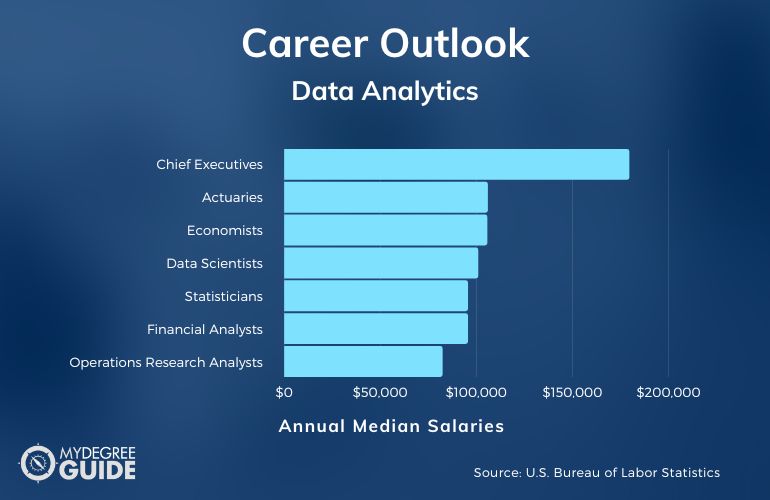
Careers in data analytics are plentiful, and PhD graduates are often viewed as experts in the field. According to the Bureau of Labor Statistics , here are the median wages of potential career paths related to data analytics and data science.
| Chief Executives | $179,520 |
| Actuaries | $105,900 |
| Economists | $105,630 |
| Data Scientists | $100,910 |
| Statisticians | $95,570 |
| Financial Analysts | $95,570 |
| Operations Research Analysts | $82,360 |
| Postsecondary Teachers | $79,640 |
| Market Research Analysts | $63,920 |
| Survey Researchers | $59,740 |
No career or salary is guaranteed by simply having a degree, but a PhD in Data Analytics could help you further your expertise and skills in this growing field.
Professionals who can digest complex data and effectively communicate their findings often work with other team members to find constructive solutions to organizational issues. As can be expected, these graduates usually enter data-based fields.
PhD in Data Analysis Curriculum & Courses

A data science degree program will expose you to many courses with the aim of making you an expert in gathering, assessing, and relaying data. Below is a list of example courses you may encounter in your studies:
- Introduction to the Theory of Algorithms: This course will familiarize you with different analysis methods for algorithms.
- Introduction to Research Methods: This course teaches you about different analysis, measurement, design, and research strategies for business research.
- Social, Ethical, and Legal Systems: You’ll learn about how factors like social, cultural, legal, and political environments influence the behavior of an institution.
- Cognitive Psychology: This course focuses on the theory and research of subjects like language, higher mental processes, and higher memory.
- Data Visualization: In this course, you’ll study readings and lectures to learn about visualization tools and principles.
- Principles of Data Science: In this course, you’ll learn how to use data science to make business decisions.
- Scholarly Communication for Technology Leaders: You’ll learn how to communicate effectively with various audiences.
- Quantitative Research Design: This course will teach you to use research design to assess the value of quantitative analysis projects.
- Distributed Systems: You’ll study emerging technologies that are used in distributed computing.
- Data Reporting: You’ll learn about the appropriate data reporting methods used in data science fields.
These represent only a few of the courses you may encounter. Every program is different, so you may want to view the coursework of a prospective data analytics PhD program to ensure that it aligns with your interests and career goals.
Admissions Requirements

The admissions criteria for a PhD degree program are usually more stringent. Here is a list of common PhD requirements:
- Bachelor’s degree in a quantitative field
- Application form and fee
- Minimum college GPA of 3.0, on average
- GRE or GMAT scores (only some schools require them)
Some PhD programs prefer or require applicants to also hold a masters in data analytics online or on campus. In some cases, a masters in a related field, such as an on-campus or online masters in data science, is acceptable.
It’s strategic to research the specific admissions requirements of the schools you’re interested in to ensure that you can fulfill the necessary criteria.
Accreditation

Attending a school with regional accreditation can be an advantage to professionals who are seeking higher education. Accreditation status is given to institutions that have passed a series of evaluations that testify to their quality of educational offerings and services.
Employers widely recognize degrees that come from accredited postsecondary institutions. Some may even prioritize job candidates with accredited degrees. Attending an accredited school is also a common eligibility requirement for several forms of financial aid.
Financial Aid and Scholarships

Many students seek the assistance of financial aid resources to help them meet the cost of their doctoral education.
There are many forms of financial aid, including federal aid, state aid, scholarships, and grants. Federal aid is administered by the federal government, often in the form of student loans. You can file a Free Application for Federal Student Aid (FAFSA) to see if you’re eligible for this type of need-based aid.
Scholarships and grants can be offered by a number of sources, such as professional organizations, public institutions, and even your school. Some universities offer opportunities such as assistantships for doctoral students.
If you’re currently employed, you could also see if your employer offers tuition benefits for workers who are furthering their education.
What Is a Data Analytics PhD Degree?

A data analytics PhD degree is an interdisciplinary program that develops a student’s ability to process complex information through the use of systems and technologies. Students can gain an in-depth knowledge of research methods as well.
The interdisciplinary approach to these programs allows you to develop and enhance both human and technical skills. This knowledge will also be supported by further development of your analytical skills, helping you become a well-rounded professional.
If a curriculum based on technical skills, research, and presentation sounds appealing, then a data analytics doctoral degree might be a good fit for you.
What Can You Do with a PhD in Data Analytics?

A PhD in Analytics degree can open various doors within data-related fields. Many graduates go on to have careers in academia, often as educators or researchers, while others enter advanced industry roles.
Many technology companies are in need of data analysis professionals. These professionals can also be found in areas like business, healthcare, and government. Common roles include data scientist, data engineer, statistician, business analyst, and financial analyst. A PhD in this field could help you qualify for senior and leadership roles as well.
According to the Bureau of Labor Statistics, there are approximately 13,500 new job openings for data scientists each year.
How Long Does It Take to Get a PhD in Data Analytics Online?

A PhD in Data Analytics programs generally take between 3 and 5 years to complete with full-time enrollment. That said, most PhD in Analytics degrees require a dissertation, which could likely extend the duration of your study.
Dissertations often take anywhere between 1 and 2 years to complete, which is why much of the second half of your degree will be focused on its completion. Obtaining a doctorate in data analytics online might allow for a more flexible schedule, which could either accelerate or extend your program. Studying part-time, for instance, could extend the length of your program.
What’s the Difference Between Business Analytics vs. Data Analytics Doctoral Programs?
A PhD in Business Analytics and a PhD in Data Analytics share many similarities, but here are some differences between the two.
Understanding these differences may help you choose the curriculum that’s best suited to your career goals.
Is a PhD in Data Analytics Worth It?

Yes, a PhD in Data Analytics is worth it for many students. Data analysts perform vital and respected roles in various organizations and industries. Those with a PhD can have expertise that has taken years to develop, often making them valued professionals.
According to the Bureau of Labor Statistics, employment for data scientists is expected to increase by 36% over the next ten years, which is much faster than average. Having a PhD is also a necessity for most academic roles, such as postsecondary educators or researchers.
Getting Your PhD in Data Analytics Online

Data science and analytics is a viable career choice for many people, and there is a range of roles related to this field. A PhD in Data Analytics is the highest degree in the field, and it is heavily focused on numbers, statistics, and research.
Earning an online masters or doctoral degree or even an online graduate certificate in data analytics could help you advance your qualifications for positions in industry and academia. Graduates may use their expertise to help various types of organizations make data-driven decisions. Others go on to pursue teaching or research roles at the postsecondary level.
You can begin researching accredited universities today to see which data analytics PhD program best aligns with your interests and goals.


Data Science, Analytics and Engineering, PhD
- Program description
- At a glance
- Degree requirements
- Admission requirements
- Tuition information
- Application deadlines
- Program learning outcomes
- Career opportunities
- Contact information
Analytics, Big Data, Data Engineering, Data Science, approved for STEM-OPT extension, computing, statistics
Learn to meet the need for data-driven discovery of new knowledge and decision-making, which enhances enterprise performance as well as scientific investigation.
The PhD program in data science, analytics and engineering engages students in fundamental and applied research.
The program's educational objective is to develop each student's ability to perform original research in the development and execution of data-driven methods for solving major societal problems. This includes the ability to identify research needs, adapt existing methods and create new methods as needed. This is accomplished through a rigorous education with research and educational experiences.
Students complete a foundational core covering database management, information assurance, statistical learning and statistical theory before choosing to focus on data analytics or data engineering. The program culminates in the production of a dissertation.
This program may be eligible for an Optional Practical Training extension for up to 24 months. This OPT work authorization period may help international students gain skills and experience in the U.S. Those interested in an OPT extension should review ASU degrees that qualify for the STEM-OPT extension at ASU's International Students and Scholars Center website.
The OPT extension only applies to students on an F-1 visa and does not apply to students completing a degree through ASU Online.
- College/school: Ira A. Fulton Schools of Engineering
- Location: Tempe
- STEM-OPT extension eligible: Yes
84 credit hours, a written comprehensive exam, an oral comprehensive exam, a prospectus and a dissertation
Required Core (12 credit hours) CSE 511 Data Processing at Scale (3) CSE 543 Information Assurance and Security (3) CSE 572 Data Mining (3) or IEE 520 Statistical Learning for Data Mining (3) or EEE 549 Statistical Machine Learning: From Theory to Practice (3) IEE 670 Mathematical Statistics (3) or STP 502 Theory of Statistics II: Inference (3) or EEE 554 Probability and Random Processes (3)
Electives and Additional Research (39 credit hours)
Research (12 credit hours) DSE 792 Research (12)
Other Requirements (9 credit hours) data engineering coursework or data analytics coursework
Culminating Experience (12 credit hours) DSE 799 Dissertation (12)
Additional Curriculum Information All students must take qualifying exams covering the required core courses within one year of matriculation into the program.
The dissertation prospectus should be submitted and its oral defense completed no later than one year following completion of the 60th credit hour and also no later than the fourth year in the program.
Students must select coursework from either the data engineering or the data analytics requirements. Students should see the academic unit for the approved course list.
Students cannot take a data engineering or data analytics course and have it meet an elective requirement at the same time. Students need to take a different elective course to reach the number of credit hours required for the program. Other coursework may be used with the approval of the academic unit to fulfill these requirements.
Twelve credit hours of DSE 792 Research are required, and up to 24 credit hours are allowed on the plan of study. Students with research hours in excess of 12 will add these credit hours to their electives and additional research.
Electives include:
- additional DSE 792 Research credit hours (up to 12 credit hours allowed beyond the required 12)
- approved elective courses, of which up to three credit hours of DSE 790: Reading and Conference are permitted, with approval.
When approved by the student's supervisory committee and the Graduate College, this program allows 30 credit hours from a previously awarded master's degree to be used for this degree. If students do not have a previously awarded master's degree, the 30 hours of coursework are to be made up of electives to reach the required 84 credit hours.
Applicants must fulfill the requirements of both the Graduate College and the Ira A. Fulton Schools of Engineering.
Applicants are eligible to apply to the program if they have earned a bachelor's or master's degree in engineering, computer science, mathematics, statistics or a related field from a regionally accredited institution.
Applicants must have a minimum cumulative GPA of 3.00 (scale is 4.00 = "A") in the last 60 hours of their first bachelor's degree program or a minimum cumulative GPA of 3.00 (scale is 4.00 = "A") in an applicable master's degree program.
Applicants are required to submit:
- graduate admission application and application fee
- official transcripts
- two letters of recommendation
- letter of intent or written statement
- proof of English proficiency
Additional Application Information An applicant whose native language is not English must provide proof of English proficiency regardless of their current residency.
ASU does not accept the GRE® General Test at home edition.
If the student is assigned any deficiency coursework upon admission, those classes must be completed with a grade of "B" (scale is 4.00 = "A") or higher within two semesters of admission to the program. Deficiency courses do not apply to the total credit hours required to complete the degree program.
Deficiency courses are: CSE 205 Object-oriented Programming and Data Structures IEE 380 Probability and Statistics for Engineering Problem Solving MAT 242 Elementary Linear Algebra or MAT 342 Linear Algebra or MAT 343 Applied Linear Algebra MAT 267 Calculus for Engineers III
| Session | Modality | Deadline | Type |
|---|---|---|---|
| Session A/C | In Person | 01/15 | Priority |
| Session | Modality | Deadline | Type |
|---|---|---|---|
| Session A/C | In Person | 09/15 | Priority |
Program learning outcomes identify what a student will learn or be able to do upon completion of their program. This program has the following program outcomes:
- Apply the tools and methods from industrial statistics, operations research, machine learning, computer science and computer engineering on solving data analytic problems.
- Manage large, heterogeneous data sets for knowledge discovery.
- Conduct research resulting in an original contribution to knowledge in data sciences.
Graduates demonstrate proficiency with existing methodology and significant accomplishment at advancing the state of the art in their chosen area, enabling them to pursue careers in the following fields:
- advanced research
Computer Science and Engineering Program | CTRPT 105 [email protected] 480-965-3199

University of South Florida
Muma College of Business
Tampa | St. Petersburg | Sarasota-Manatee
Main Navigation
Phd in big data analytics.
The PhD in Big Data Analytics is an interdisciplinary STEM PhD program focusing on systems and technologies for processing data and information. Unlike pure data science programs, this program includes the human and social implications of information and technology, bringing in critical components of cognition, ethics, biases and storytelling into a strong, big data analytics curriculum.
This program will graduate advanced big data practitioners, researchers and scientists who can work with large data, write code, develop models and build systems, and do so while acutely aware of potential biases and ethical uses issues. Students will develop theoretical and applied skills, including how to design, implement and evaluate information-focused big data technologies that support decision-making across social and organizational contexts.
Why the focus on an interdisciplinary program? Many existing PhD programs offer training in all of the stand-alone scientific fields such as statistics, mathematics, computer science, or information systems, but they do not unify the salient ideas from these fields.
In that sense, graduates become experts in a relatively narrow area in, for example, statistical modeling of data, but are inexperienced and unaware of how to parse and store data or how to code “apps” and develop solutions that automatically make decisions based on the data models or how to evaluate the human and societal impact of the developed data solutions and systems.
This PhD program combines human and technical skills with analytical abilities required to support decision-making by today’s leaders and innovators. A big data analytics PhD will introduce students to a truly interdisciplinary program and diverse perspective to important problems and opportunities for society that are driven by the availability of big data.
Why now? An increasing number of companies are looking for professionals with experience in big data analytics, and they are hard to find, especially in the educational spectrum, i.e. at the expert/PhD level. In addition, there is an increasing demand for faculty with PhDs in this field. This program is timely as we are seeing deep problems in society (polarization of society, fake news, algorithmic bias) where analytics-driven solutions alone struggle to be sufficient — problems where the broader perspective of building intelligent systems by being aware of broader issues and human aspects becomes increasingly important as well.
Programs that bring together curriculum and faculty expertise from multiple areas (such as information systems, mathematics, psychology, computer science, etc.) will play a critical role in this broader context.
Application deadline is February 1.
- Skip to primary navigation
- Skip to main content
- Skip to primary sidebar
PhD in Data Analytics Programs
Kritika Versha is a data engineer/analyst at Michigan Medicine.
A PhD in data analytics prepares professionals to work in data-driven fields, including research, business, healthcare, and government.
The most common reason people pursue a PhD in a data-related field is that they are passionate about data and would like to have a career that involves research and making discoveries, usually within a sub-field.
Data analytics PhD programs allow students to get an in-depth knowledge of research methods and topics they will use throughout their careers. Like other research-oriented doctoral degrees, a PhD in analytics is most often pursued by people interested in academic careers.
Ad techguide.org is an advertising-supported site. Clicking in this box will show you programs related to your search from schools that compensate us. This compensation does not influence our school rankings, resource guides, or other information published on this site. Got it! Featured Data Analytics Doctorate
| School Name | Program | More Info |
|---|---|---|
| Grand Canyon University | ||
| Johns Hopkins University | ||
| Ohio University | ||
| Georgetown University |
Although, increasingly, data analytics PhDs are also employed by technology companies to help improve products, services, or business opportunities.
If you are curious to know more about research in the field of data and analytics, these research interests can be divided majorly into two different areas — methods and applications.
Applications of a PhD in Analytics
Examples of research that improves methods and techniques of data utilization.
Method-based data analytics PhD research focuses on gaining a deeper understanding of algorithms used in analytics. This method of research can involve any of the following:
- Research involving understanding algorithms has led to tremendous growth in analytical tools with improved deep-learning performances on large-scale data.
- Researchers have also been investing their time in understanding methods to collect data with a low signal-to-noise ratio, working with incomplete data, or generating synthetic data to understand natural phenomena where data is not readily available or rare. Few others involve researching methods of combining data from sources that aren’t of the same type, e.g., voice data with self-reported psychiatric questionnaires to understand mood and emotions.
- As people and organizations are highly aware of how crucial data can be, there have been increasing reports of data thefts and fraud, which leaves vulnerable people at a loss. One area of research crucial in the data world is ethics and data privacy.
- With the explosive growth of data, ongoing research has made tremendous growth in developing storage systems to improve data availability with consistency in real-time analysis.
Examples of research that utilize data-related techniques to improve or create applications in a given field
Another common data analytics PhD research area involves understanding how other scientists, researchers, and practitioners apply data analytics to other fields. These areas of applications range widely, not just limited to finance or medicine but also “social good” projects.
Examples of research in social good projects solve specific crisis-related challenges, such as responses to natural and human-made disasters in search and rescue missions and the outbreak of disease. Other examples include using analytics to solve environmental challenges, education, criminal justice, etc.
Best PhD in Data Analytics Degree Programs for 2024
Florida atlantic university, grand canyon university, kennesaw state university, university of central florida, university of massachusetts boston, university of south florida, university of the southwest.
These rankings were compiled from data accessed in December 2023 from Integrated Post-Secondary Education Data System (IPEDS) and College Navigator (both services National Center for Education Statistics). Tuition data was pulled from individual university websites and is current as of December 2023. If available, we also use additional criteria such as accreditation or designations by outside organizations or agencies.
PhD in Data Analytics Curriculum
A PhD in data analytics has an intensive academic workload, generally completed between four and five years. Since the data industry has emerged only in the last decade, institutions that provide Ph.D. solely in data analytics are hard to find. Data analytics-related specialization is tied to either STEM or business-related research programs.
Components of PhD in Data Analytics
Here is a general overview of the requirements that are needed to complete this degree program:
Credit Requirements
Every PhD program has requirements to complete a certain amount of credits. These credits could be related to foundational or advanced-level qualitative and quantitative methods in statistics.
Based on your interest and flexibility in the program, the institution may offer you an option of cognate courses. The course curriculum is similar to the master’s-level program with few additions of research-related classes.
Pre-Candidacy Research Projects
The first one or two years in the program prepare you for admission to candidacy by working on research projects. These research projects also help you develop the skills necessary to frame questions and solve real-world data problems.
Preliminary or Qualifying Examination
Every PhD program requires its students to go through a qualifying exam. These exams test their skills to meet candidacy requirements. These pre-candidacy exams assist in fulfilling the requirement of having the theoretical and practical knowledge needed to work on your research project.
Teaching Requirement
Almost all PhD programs require the students to teach undergraduate-level courses or assist the professor in their teaching classes. These opportunities and experiences prepare you for an academic career.
Dissertation Proposal
The dissertation proposal contains the hypothesis of your research that should meet the standards of publications in data analytics. The proposal needs to be approved by the committee of faculty members before any proceedings to work on it.
Successful Dissertation Defense
Students are expected to present their original work on the dissertation proposal. They are expected to be experts in their data-related dissertation topic and defend their analysis. This is an important aspect of your PhD in analytics as it signifies that the student has successfully grasped all the necessary skills required to conduct their own independent research post-degree completion.
Optional Requirements
A Ph.D. is not just about taking credits and completing qualifying exams. During this program, there are many opportunities that a student is likely to benefit from. Attending data analytics conferences and getting internships during school breaks help students exchange research knowledge and form social connections necessary for job search.
Since the data field evolves at a much faster rate, it keeps students abreast of the latest trends in the data industry. Conferences are likely to provide students with discounted academic prices to attend them. Online platforms like Kaggle give opportunities to network, form teams, and participate in online challenges to showcase your skills.
Some institutions can provide you with a data analytics master’s degree if you can complete more than two years of your program but cannot continue further.
PhD in Data Analytics Online
There are many online educational opportunities available, especially in higher education. Like a PhD in data analytics online, online degrees offer a wide range of flexibility in terms of timing, workflow, and geographic location.
Leading universities offer programs that can bring the best of their faculty research to the masses. Many great data analytics master’s programs are now entirely online.
But, there are fewer than 100 percent PhD in data analytics programs online (although more are being created and launched to meet the uptick in demand and because educational formats are changing rapidly).
One of the main reasons doctoral programs are still taught mainly in traditional settings is that they require much collaborative research. Most data analytics PhD programs also require some teaching component, which is not primarily handled in person.
But the world is changing fast, and colleges and universities are adapting quickly to both the needs of students and the needs of an evolving workforce. So stay tuned, and keep track of updates to your favorite data analytics programs. Be sure to ask about remote or online options and possibilities when contacting traditional in-person programs.
PhD in Big Data Analytics
Big data is a term that was popularized in the last decade and refers to the classification and organization of massive data sets.
The reason experts or PhDs can wrangle big data is that the world continues to produce new data at an exponential rate.
By way of illustration, consider this statistic about creating new data; according to the site Statista , “The total amount of data created, captured, copied, and consumed globally is forecast to increase rapidly, reaching 64.2 zettabytes in 2020.
Over the next five years up to 2025, global data creation is projected to grow to more than 180 zettabytes. In 2020, the amount of data created and replicated reached a new high.” For reference, the amount of data collected worldwide in 2010 was estimated to be two zettabytes.
There is a lot of enthusiasm about the trends and patterns found within massive data sets. Researchers in healthcare and agriculture are working with big data to find answers to questions ranging from cancer outcomes to crop outputs.
Given the new research opportunities made possible by big data, it makes sense that a specialty Ph.D. in big data analytics is emerging in university analytics graduate programs.
Career Paths for Data Analytics PhDs
As we mentioned initially, there are many potential career pathways for data analytics PhDs. This kind of degree often has a home in academia, but businesses and organizations are increasingly looking for researchers and practitioners of data analytics.
Academic Positions
- Appointed to the research staff, whose primary goals are to extend their education and experience. Although they hold a doctoral degree, they are not considered independent researchers and cannot serve as principal investigators. Some teaching duties may also be required. Positions are often for a fixed term ranging from six months to three years.
- Average Salary: $85,959
- Typically the first step to tenure and conducting independent research. Once they complete tenure, they may be given the title of a professor. The tenure track is often a long journey of evaluating an associate professor’s publications, research, and teaching. The tenure track lasts somewhere between five to seven years.
- Average Salary: $80,057
Industry Positions
- By wrangling with data to develop meaningful insights, data scientists help organizations find and solve problems related to products or services. Combining computer science, statistics, and business knowledge, data scientists assist organizations in making objective decisions using data-driven strategies.
- Average Salary: $122,738
- Unlike data scientists or data engineers, research scientists don’t work on product development. Instead, they design and conduct experiments by developing hypotheses and measuring the outcome of their experiments.
- Average Salary: $119,165
- A chief analytics officer leads an organization’s data analytics strategy, driving data-related business changes and working with data scientists in developing data-related products.
- Average Salary: $151,203
Frequently Asked Questions
Many top-tier universities require professors, researchers, and principal investigators to have a doctoral degree. A PhD is relevant if you are looking for a career in academia. However, it is not necessary to have a PhD to gain entry into data analytics unless you are looking into specific research roles in the industry. There is a minimal difference in the salary outcome of an individual getting a PhD versus someone who has a master’s degree in analytics.
If the institution cannot fund your PhD program, checking out external funding sources and scholarships before admission is highly recommended.
Most institutions need you to have a bachelor’s degree in a quantitative field. Work experience may also be preferred by not necessary. Strong research interest is recommended to gain admission.
Since PhD degree programs are research-oriented, an applicant’s GPA does play an essential role in the admissions process. Some universities have a minimum GPA cutoff, while others request that applicants complete undergraduate-level mathematics and statistics courses with a minimum grade.
This question is tricky to answer. Some universities encourage getting in touch with the professor to see if they are open to admitting new PhD students for the upcoming academic year. Other university programs clearly state that contacting professors during the admissions process is unnecessary. You can still express your desire to work with a specific professor in your statement of purpose during the application process if contacting professors directly is not allowed.
Related Resources
- Data Science PhD Programs
- PhD Programs in Business Analytics
- Find a Degree, Certification, Bootcamp, or a Career in Analytics
- Tech Degrees
- PhD in Information Technology Programs
Ph.D. Specialization in Data Science
The ph.d. specialization in data science is an option within the applied mathematics, computer science, electrical engineering, industrial engineering and operations research, and statistics departments..
Only students already enrolled in one of these doctoral programs at Columbia are eligible to participate in this specialization. Students should fulfill the requirements below in addition to those of their respective department's Ph.D. program. Students should discuss this specialization option with their Ph.D. advisor and their department's director for graduate studies.
Applied Mathematics Doctoral Program
Computer Science Doctoral Program
Decision, Risk, and Operations (DRO) Program
Electrical Engineering Doctoral Program
Industrial Engineering and Operations Research Doctoral Program
Statistics Doctoral Program
The specialization consists of either five (5) courses from the lists below, or four (4) courses plus one (1) additional course approved by the curriculum committee. All courses must be taken for a letter grade and students must pass with a B+ or above. At least three (3) of the courses should come from outside the student’s home department. At least one (1) course has to come from each of the three (3) thematic areas listed below.
Specialization Requirements
- COMS 4231 Analysis of Algorithms I
- COMS 6232 Analysis of Algorithms II
- COMS 4111 Introduction to Databases
- COMS 4113 Distributed Systems Fundamentals
- EECS 6720 Bayesian Models for Machine Learning
- COMS 4771 Machine Learning
- COMS 4772 Advanced Machine Learning
- IEOR E6613 Optimization I
- IEOR E6614 Optimization II
- IEOR E6711 Stochastic Modeling I
- EEOR E6616 Convex Optimization
- STAT 6301 Probability Theory I
- STAT 6201 Theoretical Statistics I
- STAT 6101 Applied Statistics I
- STAT 6104 Computational Statistics
- STAT 5224 Bayesian Statistics
- STCS 6701 Foundations of Graphical Models (joint with Computer Science)
Information Request Form
Ph.d. specialization committee.
- View All People
- Faculty of Arts and Sciences Professor of Statistics
- The Fu Foundation School of Engineering and Applied Science Professor of Computer Science
Richard A. Davis
- Faculty of Arts and Sciences Howard Levene Professor of Statistics
Vineet Goyal
- The Fu Foundation School of Engineering and Applied Science Associate Professor of Industrial Engineering and Operations Research
Garud N. Iyengar
- Data Science Institute Avanessians Director of the Data Science Institute
- The Fu Foundation School of Engineering and Applied Science Professor of Industrial Engineering and Operations Research
Gail Kaiser
Rocco a. servedio, clifford stein.
- The Fu Foundation School of Engineering and Applied Science Wai T. Chang Professor of Industrial Engineering and Operations Research and Professor of Computer Science
John Wright
- The Fu Foundation School of Engineering and Applied Science Associate Professor of Electrical Engineering
- Data Science Institute Associate Director for Research
- Undergraduate Admission
- Student Affairs
- Events Calendar
- George W. Bush Presidential Center
- Prospective Students
- Current Students
- Information for Faculty & Staff
Ph.D. in Data Science
The ph.d. in data science at smu is distinctive because of its highly interdisciplinary nature..
Most existing Data Science Ph.D. programs are either housed in a single department, such as Statistics, Computer Science, Operations Management or Business Analytics; or they focus on a single disciplinary area of research, such as Business or Medicine.

The program’s core curriculum consists of courses in Computer Science, Operations Management, Statistics, and Data Science, and elective courses go beyond those disciplines to include Mathematics, Finance, Marketing, Education, Psychology, Chemistry, Game Design, Economics, and more. Student and faculty interest will continue to set directions for how the program evolves in the future.
Another distinctive feature are the research rotations that students engage in after having completed 4 semesters of coursework.
The goal of this program is to recognize that data science research can inform nearly every discipline at the university and beyond; and that the future of research and work in data science will not be limited to specific and restricted areas.
Primary navigation menu
Search the smu website, popular searches.
- Undergraduate Majors
- Departments
Did you know
Dedman College has an active alumni network with over 10,000 alumni in Dallas County and over 36,000 worldwide.

Big Data Analytics (PhD)
Program at a glance.
- In State Tuition
- Out of State Tuition
Learn more about the cost to attend UCF.

Big Data Analytics will train researchers with a statistics background to analyze massive, structured or unstructured data to uncover hidden patterns, unknown correlations and other useful information that can be used to make better decisions.
The program will provide a strong foundation in the major methodologies associated with Big Data Analytics such as predictive analytics, data mining, text analytics and statistical analysis with an interdisciplinary component that combines the strength of statistics and computer science. It will focus on statistical computing, statistical data mining and their application to business, social, and health problems complemented with ongoing industrial collaborations. The scope of this program is specialized to prepare data scientists and data analysts who will work with very large data sets using both conventional and newly developed statistical methods.
The Ph.D. in Big Data Analytics requires 72 hours beyond an earned Bachelor's degree. Required coursework includes 30 credit hours of courses, 21 credit hours of restricted elective coursework, and 21 credit hours of dissertation research.
All Ph.D. students must have an approved Plan of Study (POS) developed by the student and advisor that lists the specific courses to be taken as part of the degree. Students must maintain a minimum GPA of 3.0 in their POS, as well as a “B” (3.0) in all courses completed toward the degree and since admission to the program.
Statistical Colloquium Requirement - The department has a course, STA 7920 (Statistical Colloquium). This is a 0-credit course and should not impact your GPA. However, you will need at least 5 semesters of STA 7920 before you can graduate. With this course, you must attend the departmental colloquial.
Total Credit Hours Required: 72 Credit Hours Minimum beyond the Bachelor's Degree
Program Tracks/Options
- Statistics Track
Application Deadlines
- International
Ready to get started?
University of central florida colleges.

Request Information
Enter your information below to receive more information about the Big Data Analytics (PhD) program offered at UCF.
Program Prerequisites
Students must have the following background and courses completed before applying to the Big Data Analytics PhD program. These courses are: MAC 2311C: Calculus with Analytic Geometry I, MAC 2312: Calculus with Analytic Geometry II, MAC 2313: Calculus with Analytic Geometry III, MAS 3105: Matrix and Linear Algebra or MAS 3106: Linear Algebra. These prerequisites are undergraduate courses offered through the Math department.
Degree Requirements
- All Ph.D. students must have an approved Plan of Study (POS) developed by the student and advisor that lists the specific courses to be taken as part of the degree. Students must maintain a minimum GPA of 3.0 in their POS, as well as a "B" (3.0) in all courses completed toward the degree and since admission to the program.
Required Courses
- STA6106 - Statistical Computing I (3)
- STA6236 - Regression Analysis (3)
- STA6326 - Theoretical Statistics I (3)
- STA6327 - Theoretical Statistics II (3)
- STA6246 - Linear Models (3)
- STA6107 - Statistical Computing II (3)
- STA6366 - Statistical Methodology for Data Science I (3)
- STA6367 - Statistical Methodology for Data Science II (3)
- STA7920 - Statistical Colloquium
- STA7348 - Bayesian Modeling and Computation (3)
- STA7722 - Statistical Learning Theory (3)
- STA7734 - Statistical Asymptotic Theory in Big Data (3)
Restricted Electives (at least 9 credit hours must be STA coursework)
- Other courses may be included in a Plan of Study with departmental approval. Other electives can be used at the discretion of the student advisor and/or Graduate Coordinator.
- STA6226 - Sampling Theory and Applications (3)
- STA6237 - Nonlinear Regression (3)
- STA6346 - Advanced Statistical Inference I (3)
- STA6347 - Advanced Statistical Inference II (3)
- STA6507 - Nonparametric Statistics (3)
- STA6662 - Statistical Methods for Industrial Practice (3)
- STA6705 - Data Mining Methodology III (3)
- STA6707 - Multivariate Statistical Methods (3)
- STA6709 - Spatial Statistics (3)
- STA6857 - Applied Time Series Analysis (3)
- STA7239 - Dimension Reduction in Regression (3)
- STA7719 - Survival Analysis (3)
- STA7935 - Current Topics in Big Data Analytics (3)
- CAP5610 - Machine Learning (3)
- CAP6307 - Text Mining I (3)
- CAP6315 - Social Media and Network Analysis (3)
- CAP6318 - Computational Analysis of Social Complexity (3)
- CAP6737 - Interactive Data Visualization (3)
- COP5537 - Network Optimization (3)
- COP6526 - Parallel and Cloud Computation (3)
- COP6616 - Multicore Programming (3)
- COT6417 - Algorithms on Strings and Sequences (3)
- COT6505 - Computational Methods/Analysis I (3)
- ECM6308 - Current Topics in Parallel Processing (3)
- EEL5825 - Machine Learning and Pattern Recognition (3)
- EEL6760 - Data Intensive Computing (3)
- FIL6146 - Screenplay Refinement (3)
- ESI6247 - Experimental Design and Taguchi Methods (3)
- ESI6358 - Decision Analysis (3)
- ESI6418 - Linear Programming and Extensions (3)
- ESI6609 - Industrial Engineering Analytics for Healthcare (3)
- ESI6891 - IEMS Research Methods (3)
- STA5825 - Stochastic Processes and Applied Probability Theory (3)
- COP6731 - Advanced Database Systems (3)
- STA5104 - Advanced Computer Processing of Statistical Data (3)
- STA5176 - Introduction to Biostatistics (3)
- STA5703 - Data Mining Methodology I (3)
- STA6223 - Conventional Survey Methods (3)
- STA6224 - Bayesian Survey Methods (3)
- STA6704 - Data Mining Methodology II (3)
- STA6714 - Data Preparation (3)
- MAP6195 - Mathematical Foundations for Massive Data Modeling and Analysis (3)
- MAP6197 - Mathematical Introduction to Deep Learning (3)
- COP5711 - Parallel and Distributed Database Systems (3)
- CNT5805 - Network Science (3)
Dissertation
- Earn at least 21 credits from the following types of courses: STA 7980 - Dissertation Research The student must select a dissertation adviser by the end of the first year. In consultation with the dissertation adviser, the student should form a dissertation advisory committee. The dissertation adviser will be the chair of the student's dissertation advisory committee. In consultation with the dissertation advisor and with the approval of the chair of the department, each student must secure qualified members of their dissertation committee. This committee will consist of at least four faculty members chosen by the candidate, three of whom must be from the department and one from outside the department or UCF. Graduate faculty members must form the majority of any given committee. A dissertation committee must be formed prior to enrollment in dissertation hours. The dissertation serves as the culmination of the coursework that comprises this degree. It must make a significant original theoretical, intellectual, practical, creative or research contribution to the student's area within the discipline. The dissertation can be either research‐ or project‐based depending on the area of study, committee, and with the approval of the dissertation advisor. The dissertation will be completed through a minimum of 15 hours of dissertation research credit.
Examinations
- After passing candidacy, students will enroll into dissertation hours (STA7980) with their dissertation advisor. The dissertation can be either research‐ or project‐based depending on the area of study, committee, and with the approval of the dissertation advisor.
Qualifying Examination
- The qualifying examination is a written examination that will be administered by the doctoral exam committee at the start of the fall term (end of the summer) and at the start of the spring term. The courses required to prepare for the examination are STA 6246, STA 6366, STA 6367, STA 6326, STA 6327 and STA 6236. Students must obtain permission from the Graduate Program Coordinator to take the examination. Students normally take this exam just before the start of their second year and are expected to have completed the exam by the end of their second year. To be eligible to take the Ph.D. qualifying examination, the student must have a minimum grade point average of 3.0 (out of 4.0) in all the coursework for the Ph.D. The exam may be taken twice. If a student does not pass the qualifying exam after the second try, he/she will be dismissed from the program. It is strongly recommended that the student select a dissertation adviser by the completion of 18 credit hours of course work, and it is strongly recommended that the student works with the dissertation adviser to form a dissertation committee within two semesters of passing the Qualifying Examination. To pass the exam, students need to pass all 4 parts. Students must take all 4 parts of the qualifying exam in their first attempt and must have completed all courses covered by the exam.
Candidacy Examination
- The candidacy exam is administered by the student's dissertation advisory committee and will be tailored to the student's individual program to propose either a research‐ or project‐based dissertation. The candidacy exam involves a dissertation proposal presented in an open forum, followed by an oral defense conducted by the student's advisory committee. This committee will give a Pass/No Pass grade. In addition to the dissertation proposal, the advisory committee may incorporate other requirements for the exam. The student can attempt candidacy any time after passing the qualifying examination, after the student has begun dissertation research (STA7919, if necessary), but prior to the end of the second year following the qualifying examination. The candidacy examination can be taken no more than two times. If a student does not pass the candidacy exam after the second try, he/she will be removed from the program After passing the candidacy examination and meeting other requirements, the student can register for Doctoral Dissertation (STA7980). A minimum of 21 Doctoral Dissertation credit hours are required. The Candidacy Examination can be attempted after passing the qualifying examination. The Candidacy Examination must be completed within one years after passing the qualifying examination. A student must successfully pass the Candidacy Examination within at most two attempts.
Admission to Candidacy
- The following are required to be admitted to candidacy and enroll in dissertation hours. Completion of all coursework, except for dissertation hours Successful completion of the qualifying examination Successful completion of the candidacy examination including a written proposal and oral defense The dissertation advisory committee is formed, consisting of approved graduate faculty and graduate faculty scholars Submittal of an approved program of study
Masters Along the Way
- PhD Students can obtain their Master's degree in Statistics & Data Science - Data Science Track along the way to their PhD degree. To satisfy the requirements for the MS degree, the student must complete the following requirements: 1 - Complete the 24 hours of required courses for the MS degree - Data Science track. 2.- Complete 12 credit hours from the elective list for the MS degree - Data Science track, except STA 5205, STA 5505 and STA 5738. The student has the option of choosing between thesis option or non-thesis option.
Independent Learning
- As will all graduate programs, independent learning is an important component of the Big Data Analytics doctoral program. Students will demonstrate independent learning through research seminars and projects and the dissertation.
Grand Total Credits: 72
Application requirements, financial information.
Graduate students may receive financial assistance through fellowships, assistantships, tuition support, or loans. For more information, see the College of Graduate Studies Funding website, which describes the types of financial assistance available at UCF and provides general guidance in planning your graduate finances. The Financial Information section of the Graduate Catalog is another key resource.
Fellowship Information
Fellowships are awarded based on academic merit to highly qualified students. They are paid to students through the Office of Student Financial Assistance, based on instructions provided by the College of Graduate Studies. Fellowships are given to support a student's graduate study and do not have a work obligation. For more information, see UCF Graduate Fellowships, which includes descriptions of university fellowships and what you should do to be considered for a fellowship.

Graduate Degree Programs in Analytics and Data Science
What follows is a list of nearly 400 programs offering masters degrees in Analytics or Data Science at universities based in the U.S., which now produce an estimated 20,000 graduates per year. If you select a school on the map, information is provided on the degree, its duration, program format, and year established. Clicking on the data point will also give you a link to the program website. The chronological list of programs provided below is regularly updated to reflect newly established programs. Readers should refer to each program’s website for the latest and most accurate information.
The degree programs are categorized into three main groups: Data Analytics, Business Analytics, and Data Science. Since 2007, Analytics programs have emerged as a new category of professional degrees with a strong interdisciplinary character that combines applied mathematics, statistics, computer science and various business disciplines. Business Analytics programs are usually based in a university’s business school. Data Science degrees emerged in 2013 as a close kin to Analytics. Analytics and data science curricula are usually described in similar terms. (Program directors: please send additions and corrections .)
Know before you go : check-out the current job market for data scientists before applying to a graduate program.
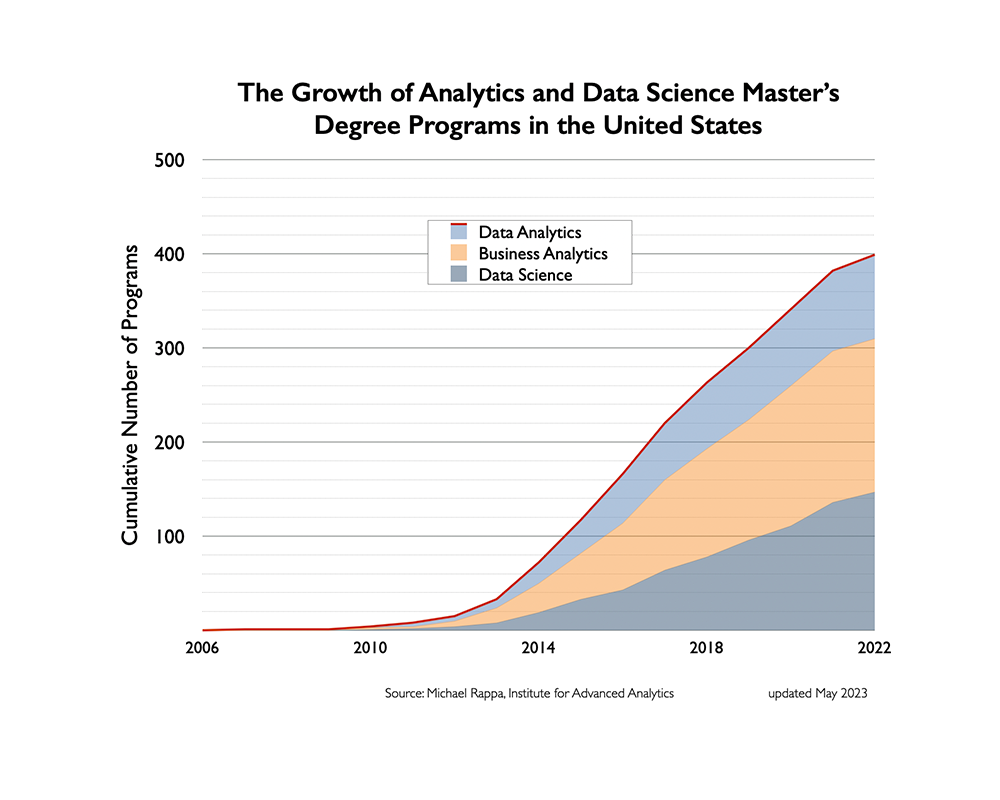
CHRONOLOGY OF GRADUATE PROGRAMS IN ANALYTICS AND DATA SCIENCE
North Carolina State University, Institute for Advanced Analytics, M.S. in Analytics
Depaul University, College of Computing and Digital Media, M.S. in Predictive Analytics (Degree renamed Data Science in 2018.)
University of Tennessee at Knoxville, College of Business Administration, M.S. in Business Analytics (Degree name change: former name was M.S. in Management Science.)
Carnegie Mellon University, Heinz College, M.I.S.M. in Business Intelligence & Data Analytics (Addition of new BIDA track in the existing Master of Information Systems Management.)
Louisiana State University at Baton Rouge, Ourso College of Business, M.S. in Analytics (Formerly the M.S. in Information Systems and Decision Sciences, Concentration in Business Analytics and Business Intelligence; renamed in 2012.)
Northwestern University, School of Continuing Studies, M.S. in Predictive Analytics (Degree renamed the M.S. in Data Science in 2018.)
University of Cincinnati, Lindner College of Business, M.S. in Business Analytics (Degree name change: former name was M.S. in Quantitative Analysis.)
Drexel University, LeBow College of Business, M.S. in Business Analytics
Fordham University, School of Business, M.S. in Business Analytics
Northwestern University, McCormick School of Engineering and Applied Science, M.S. in Analytics (Name changed to M.S. in Machine Learning and Data Science in July 2023).
Rutgers, The State University of New Jersey, Discovery Informatics Institute, Master of Business and Science in Analytics
Southern Methodist University, College of Humanities and Sciences, M.S. in Applied Statistics and Data Analytics
Stevens Institute of Technology, Howe School of Technology Management, M.S. in Business Intelligence and Analytics
University of Connecticut, School of Business, M.S. in Business Analytics and Project Management
University of Michigan at Dearborn, College of Business, M.S. in Business Analytics
University of San Francisco, College of Arts and Sciences, M.S. in Analytics (Degree renamed Data Science in 2018.)
Arizona State University, W.P. Carey School of Business, M.S. in Business Analytics
Benedictine University, College of Business, M.S. in Business Analytics
Carnegie Mellon University, School of Computer Science, M.S. in Computational Data Science (Degree name change: formerly the M.S.I.T. in Very Large Information Systems.)
City University of New York, School of Professional Studies, M.S. in Data Analytics (Degree renamed Data Science in 2018.)
George Washington University, School of Business, M.S. in Business Analytics
Harrisburg University of Science and Technology, M.S. in Analytics
Illinois Institute of Technology, College of Science, Master of Data Science
Michigan State University, Eli Broad College of Business, M.S. in Business Analytics (Degree renamed Business Data Science and Analytics in 2021.)
New York University, Stern School of Business, M.S. in Business Analytics
New York University, Center for Data Science, M.S. in Data Science
Pace University, Lubin School of Business, M.S. in Customer Intelligence and Analytics
Rensselaer Polytechnic Institute, Lally School of Management, M.S. in Business Analytics
Southern New Hampshire University, Online College, M.S. in Data Analytics
Texas A&M University, College of Science, M.S. in Analytics (Moved to Mays College of Business in 2019.)
University of Maryland, University College, M.S. in Data Analytics
University of Texas at Austin, McCombs School of Business, M.S. in Information, Risk, and Operations Management (Degree renamed Business Analytics in 2016.)
Washington University in St. Louis, Olin Business School, M.S. in Customer Analytics (Degree renamed Business Analytics in 2018.)
Bentley University, McCallum Graduate School of Business, M.S. in Business Analytics
Bowling Green State University, Graduate College, M.S. in Analytics
Brandeis University, Division of Graduate Professional Studies, M.S. in Strategic Analytics
Columbia University, Data Science Institute, M.S. in Data Science
Creighton University, Heider College of Business, M.S. in Business Intelligence and Analytics
Dakota State University, Graduate Office, M.S. in Analytics
Elmhurst College, Online Center, M.S. in Data Science
George Mason University, Volgenau School of Engineering, M.S. in Data Analytics Engineering
Georgia Institute of Technology, Colleges of Engineering, Business and Computing, M.S. in Analytics
Georgia State University, Robinson College of Business, M.S. in Analytics (Degree renamed Data Science and Analytics in 2021.)
Indiana University, Kelley School of Business, M.S. in Business Analytics
Johns Hopkins University, Krieger School of Arts & Sciences, M.S. in Government Analytics (Degree renamed Data Analytics and Policy)
Lewis University, College of Arts & Sciences, M.S. in Data Science
Lewis University, College of Business, M.S. in Business Analytics
Maryville University, College of Arts and Sciences, M.S. in Applied Statistics and Data Analytics (Degree renamed Data Science in 2017.)
Quinnipiac University, School of Business, M.S. in Business Analytics
St. John’s University, College of Professional Studies, M.S. in Data Mining and Predictive Analytics (Degree renamed Data Science in 2016.)
Saint Joseph’s University, Haub School of Business, M.S. in Business Intelligence and Analytics (Formerly the M.S. in Business Intelligence)
Saint Louis University, School for Professional Studies, M.S. in Applied Analytics
Saint Peter’s University, College of Arts & Sciences, M.S. in Data Science with a Concentration in Business Analytics
South Dakota State University, Lohr College of Engineering, M.S. in Data Science
Southern Methodist University, Cox School of Business, M.S. in Business Analytics
University of Arkansas, The Graduate School, M.S. in Statistics and Analytics
University of California, Berkeley, School of Information, Master of Information and Data Science (MIDS)
University of California, San Diego, Jacobs School of Engineering, Master of Advanced Study in Data Science and Engineering
University of Chicago, Physical Sciences Division–Professional Education Unit, M.S. in Analytics (Moved from the Graham School of Continuing Liberal & Professional Studies in 2020; Name changed to M.S. in Applied Data Science in 2023.)
University of Colorado Boulder, Leeds School of Business, M.S. in Business Analytics
University of Colorado Denver, The Business School, M.S. in Business Analytics
University of Denver, Daniels College of Business, M.S. in Business Analytics
University of Miami, School of Business Administration, M.S. in Business Analytics
University of Minnesota, Carlson School of Management, M.S. in Business Analytics
University of Rochester, Simon Business School, M.S. in Business Analytics
University of St. Thomas, Minnesota, School of Engineering, M.S. in Data Science
University of Southern California, Marshall School of Business, M.S. in Business Analytics
University of Texas at Dallas, Jindal School of Management, M.S. in Business Analytics
University of Virginia, Data Science Institute, M.S. in Data Science
Villanova University, School of Business, M.S. in Analytics
Virginia Commonwealth University, School of Business, Master in Decision Analytics
Worcester Polytechnic Institute, Arts and Sciences, M.S. in Data Science
American University, Kogod School of Business, M.S. in Analytics
Bellevue University, College of Business, M.S. in Business Analytics
California State University, East Bay, College of Business and Economics, M.S. in Business Analytics
Capella University, School of Business and Technology, M.S. in Analytics
Central Michigan University, College of Science and Engineering, M.S. in Applied Statistics and Analytics
Clarkson University, School of Arts and Sciences, School of Business, and Coulter School of Engineering, M.S. in Data Analytics (Degree renamed Data Science in 2021.)
College of William & Mary, Mason School of Business, M.S. in Business Analytics
Fairfield University, Dolan School of Business, M.S. in Business Analytics
George Washington University, Columbian College of Arts and Sciences, M.S. in Data Science
Georgetown University, Graduate School of Arts and Sciences, M.S. in Analytics (Degree renamed Data Science and Analytics in 2021.)
Indiana University Bloomington, School of Informatics and Computing, M.S. in Data Science
Iowa State University, College of Business, M.S. in Business Analytics
Kennesaw State University, College of Science and Mathematics, Ph.D. in Analytics and Data Science
La Salle University, School of Arts and Sciences, M.S. in Analytics
Mercer University, Stetson School of Business and Economics, M.S. in Business Analytics
Mercyhurst University, Ridge College of Intelligence Studies and Applied Sciences M.S. in Data Science
Michigan Technological University, The Graduate School, M.S. in Data Science
Northeastern University, D’Amore-McKim School of Business, M.S. in Business Analytics
Regis University, College of Computer & Information Sciences, M.S. in Data Science
Rockhurst University, Helzberg School of Management, M.S. in Business Intelligence and Analytics
Saint Mary’s College of California, School of Economics and Business Administration, M.S. in Business Analytics
Saint Xavier University, Graham School of Management, Master of Science in Business Analytics (ceased operation in 2017)
Slippery Rock University, College of Health, Environment, and Science, M.S. in Data Analytics
Southern Methodist University, Dedman College of Humanities and Sciences, Lyle School of Engineering and Meadows School of the Arts, M.S. in Data Science
Texas Tech University, Rawls College of Business, M.S. in Data Science
University of Dallas, Gupta College of Business, M.S. in Business Analytics
University of Houston–Downtown, College of Sciences and Technology, M.S. in Data Analytics
University of Iowa, Tippie College of Business, M.S. in Business Analytics
University of Kansas Edwards Campus, Medical Center, M.S. in Applied Statistics and Analytics
University of Minnesota, College of Science & Engineering, College of Liberal Arts and School of Public Health, M.S. in Data Science
University of New Hampshire, The Graduate School, M.S. in Analytics (Renamed M.S. in Analytics and Data Science in 2019; Program ended in 2022.)
University of New Haven, Galvanize San Francisco Campus, M.S. in Data Science (ceased operation)
University of North Carolina at Charlotte, College of Computing and Informatics, Belk College of Business, M.S. in Data Science and Business Analytics
University of Notre Dame, Mendoza College of Business–Chicago Campus, M.S. in Business Analytics
University of Oklahoma, Gallogly College of Engineering, M.S. in Data Science and Analytics
University of Rochester, School of Arts and Sciences, M.S. in Data Science
University of the Pacific, School of Engineering and Computer Science, M.S. in Analytics (Degree renamed Data Science in 2017.)
University of Texas at Arlington, College of Business, M.S. in Business Analytics
University of Wisconsin–Extension, Division of Continuing Education, Outreach and E-Learning, M.S. in Data Science
Valparaiso University, The Graduate School & Continuing Studies, M.S. in Analytics and Modeling
Xavier University, Williams College of Business, M.S. in Customer Analytics
Appalachian State University, Walker College of Business, M.S. in Applied Data Analytics
Boston University, Metropolitan College, M.S. in Applied Business Analytics
California Polytechnic State University – San Luis Obispo, Orfalea College of Business, M.S. in Business Analytics
Case Western Reserve University, Weatherhead School of Management, M.S.M. in Business Analytics
Chapman University, Schmid College of Science & Technology, M.S. in Computational and Data Sciences
Columbia University, School of Professional Studies, M.S. in Applied Analytics
Fordham University, Graduate School of Arts and Sciences, M.S. in Data Analytics (Degree renamed Data Science in 2021.)
Johns Hopkins University, Whiting School of Engineering, M.S. in Data Science
Kent State University, College of Business Administration, M.S. in Business Analytics
Lipscomb University, College of Computing and Technology, M.S. in Data Science
Massachusetts Institute of Technology, Sloan School of Management, Master of Business Analytics
New England College, School of Graduate and Professional Studies, M.S. in Data Analytics and Business Statistics
New College of Florida, Graduate Program, Master of Data Science
Northeastern University, College of Professional Studies, Master of Professional Studies in Analytics
Northeastern University, Khoury College of Computer Sciences, M.S. in Data Science
Oklahoma State University, Spears School of Business, M.S. in Business Analytics
Oregon State University, College of Science, School of Electrical Engineering & Computer Science, M.S. in Data Analytics
Penn State Great Valley, School of Graduate Professional Studies, Master of Professional Studies in Data Analytics
Pepperdine University, Graziadio School of Business and Management, M.S. in Applied Analytics
Purdue University, Krannert School of Management, M.S. in Business Analytics and Information Management
Rowan University, College of Science and Mathematics, M.S. in Data Analytics
Rutgers, The State University of New Jersey, School of Arts and Sciences (Department of Computer Science), M.S. in Data Science–Computer Science Track
Rutgers, The State University of New Jersey, School of Arts and Sciences (Department of Statistics), M.S. in Data Science–Statistics Track
Saint Louis University, Center for Health Outcomes Research, M.S. in Health Data Science
Santa Clara University, Leavey School of Business, M.S. in Business Analytics
Seattle University, Albers School of Business and Economics, M.S. in Business Analytics
Syracuse University, Whitman School of Management, M.S. in Business Analytics
Temple University, Fox School of Business and Management, M.S. in Business Analytics
University of Alabama in Huntsville, College of Business, M.S. in Management Science – Business Analytics
University of Central Florida, College of Engineering and Computer Science, College of Sciences, M.S. in Data Analytics
University of California, San Diego, Rady School of Management, M.S. in Business Analytics
University of California, Los Angeles, Samueli School of Engineering, M.S.E. in Data Science Engineering
University of Illinois at Chicago, Liautaud Graduate School of Business, M.S. in Business Analytics
University of Illinois at Springfield, College of Liberal Arts and Sciences, M.S. in Data Analytics
University of Massachusetts at Lowell, Manning School of Business, M.S. in Business Analytics
University of Missouri, Informatics Institute, M.S. in Data Science and Analytics
University of Montana, School of Business Administration, M.S. in Business Analytics
University of St. Thomas, Minnesota, Opus College of Business, M.S. in Business Analytics
University of Texas at San Antonio, College of Business, M.S. in Data Analytics
University of Utah, Eccles School of Business, M.S. in Business Analytics
Virginia Tech, Pamplin College of Business, M.S. in Business Administration with a concentration in Business Analytics
Wake Forest University, School of Business, M.S. in Business Analytics
West Virginia University, College of Business and Economics, M.S. in Business Data Analytics
Western Governors University, College of Information Technology, M.S. in Data Analytics
Western Illinois University, College of Business & Technology, M.S. in Applied Statistics and Decision Analytics
Wittenberg University, School of Community Education, M.S. in Analytics
Babson College, Olin Graduate School of Business, M.S. in Business Analytics
Bay Path University, Graduate Studies, M.S. in Applied Data Science
Brown University, Data Science Initiative, M.S. in Data Science
Clark University, Graduate School of Management, M.S. in Business Analytics
College of Saint Elizabeth, School of Arts and Sciences, M.S. in Data Analytics
College of Saint Rose, Huether School of Business, M.S. in Business Analytics
Duke University, Fuqua School of Business, Master of Quantitative Management
Emory University, Goizueta Business School, M.S. in Business Analytics
Florida International University, School of Computing and Information Sciences, M.S. in Data Science
Georgia Institute of Technology, Professional Education, Online M.S. in Analytics
Golden Gate University, Ageno School of Business, M.S. in Business Analytics
Grand Canyon University, Colangelo College of Business, M.S. in Business Analytics
Harvard University, Chan School of Public Health, M.S. in Health Data Science
Harvard University, Institute for Applied Computational Science, M.S. in Data Science
Hofstra University, Zarb School of Business, M.S. in Business Analytics
Johns Hopkins University, Carey Business School, M.S. in Business Analytics and Risk Management (Formerly M.S. in Enterprise Risk Management.)
Loyola University Maryland, College of Arts and Sciences, M.S. in Data Science
Merrimack College, Girard School of Business, M.S. in Business Analytics
Merrimack College, School of Science and Engineering, M.S. in Data Science
Maryville University, Simon School of Business, M.S. in Business Data Analytics
New Jersey City University, School of Business, M.S. in Business Analytics and Data Science
New Jersey Institute of Technology, Wu College of Computing, M.S. in Data Science
Rutgers University, Rutgers Business School—Newark, Master of Information Technology and Analytics
Rutgers University, Rutgers Business School—New Brunswick, Master of Supply Chain Analytics
Saint Mary’s College, Graduate Programs, M.S. in Data Science
Stockton University, School of Natural Sciences and Mathematics, M.S. in Data Science and Strategic Analytics
Suffolk University Boston, Sawyer Business School, M.S. in Business Analytics
Syracuse University, School of Information Studies, M.S. in Applied Data Science
Temple University, College of Science and Technology, M.S. in Computational Data Science
University of Tulsa, Collins College of Business, M.S. in Business Analytics
University at Albany, State University of New York, College of Arts & Sciences, M.S. in Data Science
University of California, Davis Graduate School of Management, M.S. in Business Analytics
University of California, Irvine, Merage School of Business, M.S. in Business Analytics
University of Denver, Ritchie School of Engineering and Computer Science, M.S. in Data Science
University of Maryland, College Park, Smith School of Business, M.S. in Business Analytics
University of Massachusetts Amherst, Isenberg School of Management, M.S. in Business and Analytics
University of Massachusetts Boston, College of Management, M.S. in Business Analytics
University of Montana, College of Humanities and Sciences, M.S. in Data Science
University of North Carolina at Wilmington, College of Arts & Sciences, M.S. in Data Science
University of North Texas, College of Information, M.S. in Data Science
University of North Texas, Ryan College of Business, M.S. in Business Analytics
University of Notre Dame, College of Science, M.S. in Applied and Computational Mathematics & Statistics: Data Science (Degree renamed Data Science in 2020.)
University of Pennsylvania, School of Engineering and Applied Science, M.S.E. in Data Science
University of South Florida, Muma College of Business, M.S. in Business Analytics / Information Systems
University of Southern California, Viterbi School of Engineering, M.S. in Analytics
University of Washington, Continuum College, M.S. in Data Science
University of Washington Tacoma, Milgard School of Business, M.S. in Business Analytics
Utah State University, College of Science, Master of Data Analytics
Wayne State University, College of Engineering and Ilitch School of Business, M.S. in Data Science and Business Analytics
American University, School of Public Affairs and College of Arts and Sciences, M.S. in Data Science
Bellevue University, College of Business, M.S. in Data Science
Brandeis University, International Business School, M.S. in Business Analytics
Canisius College, College of Arts & Sciences, M.S. in Data Analytics
Carnegie Mellon University, Tepper School of Business, M.S. in Business Analytics
City University of New York, City College of New York, Grove School of Engineering, M.S. in Data Science and Data Engineering
City University of New York, Graduate Center, M.S. in Data Science
Columbia University, Columbia Engineering and Columbia Business School, M.S. in Business Analytics
Drexel University, College of Computing and Informatics, M.S. in Data Science
DePaul University, Kellstadt Graduate School of Business, M.S. in Business Analytics
Duke University, Information Initiative at Duke and the Social Science Research Institute, Master in Interdisciplinary Data Science
Florida State University, College of Business, M.S. in Business Analytics
Georgetown University, McCourt School of Public Policy, M.S.in Data Science for Public Policy
Grand Valley State University, School of Computing and Information Systems, M.S. in Data Science and Analytics
Hamline University, School of Business, M.S. in Business Analytics
Harvard University, Extension School, Master of Liberal Arts in Extension Studies, field: Data Science
Kansas State University, College of Business Administration, Master of Science in Data Analytics .
Montclair State University, Feliciano School of Business, M.S. in Business Analytics
New York University, Stern School of Business (NYC and Shanghai campuses), M.S. in Data Analytics and Business Computing
Ohio State University, Fisher College of Business, Specialized Masters in Business Analytics
Penn State Great Valley, School of Graduate Professional Studies, M.S. in Data Analytics
Rochester Institute of Technology, Saunders College of Business, M.S. in Business Analytics
Rochester Institute of Technology, Golisano College of Computing and Information Sciences, M.S. in Data Science
San Francisco State University, College of Business, M.S. in Business Analytics
San Jose State University, College of Professional and Global Education, M.S. in Data Analytics
State University of New York at Plattsburgh, School of Business & Economics, M.S. in Data Analytics
Tulane University, Freeman School of Business, Master of Business Analytics
University of Alabama at Birmingham, College of Arts and Sciences, M.S. in Data Science
University of Delaware, College of Agriculture and Natural Resources, College of Arts and Science, and College of Engineering, M.S. in Data Science
University of Findlay, College of Sciences, M.S. in Applied Security and Analytics
University of Georgia, Terry College of Business, M.S. in Business Analytics
University of Louisville, College of Business, M.S. in Business Analytics
University of Michigan at Ann Arbor, College of Literature, Science, and the Arts, M.S. in Data Science
University of Nebraska–Lincoln, College of Business, M.S. in Business Analytics
University of South Dakota, Beacom School of Business, M.S. in Business Analytics
University of Southern California, Viterbi School of Engineering, M.S. in Applied Data Science
University of Virginia, Darden School of Business and McIntire School of Commerce, M.S. in Business Analytics
William Paterson University of New Jersey, Cotsakos College of Business, M.S. in Applied Business Analytics
Yeshiva University, Katz School of Graduate and Professional Studies, M.S. in Data Analytics and Visualization
Binghamton University, State University of New York, Harpur College of Arts and Sciences, School of Management, and Watson School of Engineering and Applied Science M.S. in Data Analytics
Boston University, Questrom School of Business, M.S. in Business Analytics
Charleston Southern University, College of Adult and Professional Studies M.S. in Analytics
City University of New York, Baruch College, Zicklin School of Business, M.S. in Business Analytics
Clemson University, College of Business and College of Science M.S. in Data Science and Analytics
College of Charleston, M.S. in Data Science and Analytics
Drew University, Caspersen School of Graduate Studies, M.S. in Data Analytics
Duquesne University, Palumbo-Donahue School of Business, M.S. in Analytics and Information Management
Embry-Riddle Aeronautical University, M.S. in Data Science
Franklin University, M.S. in Business Analytics
Franklin University, M.S. in Data Analytics
New Mexico State University, College of Arts and Sciences, Master in Data Analytics
Ohio University, College of Business, Professional Master of Business Analytics
San Diego State University, Center for Human Dynamics in the Mobile Age, M.S. in Big Data Analytics
Seton Hall University, College of Arts and Sciences, M.S. in Data Science
Seton Hall University, Stillman School of Business, M.S. in Business Analytics
Southern Utah University, Leavitt School of Business, M.S. in Business Analytics
Tufts University, Graduate School of Arts and Sciences, M.S. in Data Analytics
Tufts University, School of Engineering, M.S. in Data Science
University of North Carolina at Greensboro, Graduate School, M.S. in Informatics and Analytics
University of Central Oklahoma, College of Business, M.S. in Business Analytics
University of Hartford, Barney School of Business, M.S. in Business Analytics
University of New Haven, Tagliatela College of Engineering, M.S. in Data Science (previously terminated and moved from San Francisco to restart in West Haven, Connecticut).
University of Notre Dame, Mendoza College of Business, M.S. in Business Analytics
University of St. Thomas, Houston, College of Arts and Sciences, M.S. in Applied Data Science
University of San Diego, School of Business, M.S. in Business Analytics
University of Texas Rio Grande Valley, Division of Research, Graduate Studies and New Program Development, M.S. in Business Analytics
University of Texas at San Antonio, College of Business, M.S. in Data Analytics (Formerly the M.S. in Applied Statistics.)
University of the Potomac, M.S. in Data Analytics
University of Washington, Foster School of Business, M.S. in Business Analytics
University of West Florida, M.S. in Data Science (pending approval)
Vanderbilt University, Data Science Institute, M.S. in Data Science
Concordia University, St. Paul, M.S. in Data Analytics
Dominican University of California, M.S. in Business Analytics
Drake University, College of Business and Public Administration, M.S. in Business Analytics
Elon University, School of Business, M.S. in Business Analytics (Formerly M.S. in Management)
Georgia State University, College of Arts & Sciences, M.S. in Data Science and Analytics
Hofstra University, Liberal Arts and Sciences, M.S. in Data Science
Kennesaw State University, School of Data Science and Analytics, M.S. in Applied Statistics and Analytics (Formerly M.S. in Applied Statistics.)
Kettering University, College of Science and Liberal Arts , M.S. in Data Science
Old Dominion University, M.S. in Data Science & Analytics
Purdue University, Online M.S. in Business Analytics
Ramapo College of New Jersey, School of Theoretical and Applied Science, M.S. in Data Science
San Jose State University, College of Science, M.S. in Data Science
University of Arkansas, Walton College of Business, Professional Master of Applied Business Analytics
University of Colorado–Boulder, Graduate School . M.S. in Data Science
University of Kentucky, Colleges of Engineering, Medicine, and Public Health, M.S. in Data Science
University of Nevada, Reno, Online M.S. in Business Analytics
University of New Hampshire, School of Business, M.S. in Business Analytics .
Utah State University, M.S. in Data Science
Walden University, School of Technology and Applied Science, M.S. in Data Science
Worcester Polytechnic Institute, M.S. in Business Analytics
Auburn University, College of Science and College of Engineering, M.S. in Data Science and Engineering
California State University, Sacramento, College of Business, M.S. in Business Analytics
Clarkson University, Graduate School, M.S. In Applied Data Science
Cornell University, Johnson Graduate School of Management, M.S. in Business Analytics
Georgetown University, McDonough School of Business, M.S. in Business Analytics
Lehigh University, College of Business, M.S. in Business Analytics
North Carolina A&T University, College of Engineering, M.S. in Data Science and Engineering
Oakland University, School of Business Administration, M.S. in Business Analytics
Pace University, Seidenberg School of Computer Science, M.S. in Data Science
Rice University, School of Engineering, Master of Data Science
Texas A&M University, Institute of Data Science, M.S. in Data Science
University of Bridgeport, School of Business, M.S. in Analytics
University of California, Berkeley, College of Engineering, Master of Analytics
University of California, Irvine, School of Information and Computer Science, Master of Data Science
University of Illinois at Urbana-Champaign, Gies College of Business, M.S. in Business Analytics
University of Miami, Institute for Data Science and Computing, M.S. in Data Science
University of Michigan at Ann Arbor, School of Business, M.S. in Business Analytics
University of Southern Maine, College of Science, Technology and Health, M.S. in Data Science
University of Texas at Austin, College of Natural Sciences, M.S. in Data Science
Willamette University. M.S. in Data Science
Air Force Institute of Technology, Graduate School of Engineering and Management, M.S. in Data Science
Ball State University, College of Science and Humanities, M.S. in Data Science
Boston College, Woods College of Advancing Studies, M.S. in Applied Analytics
Cabrini University, Graduate Studies Division, M.S. in Data Science
City University of Seattle. Online Division, M.S. in Data Science
Colorado School of Mines, M.S. in Data Science
Fairfield University. School of Engineering, M.S. in Data Science
Florida State University, College of Arts and Sciences, M.S. in Data Science
Hult International Business School, M.S. in Business Analytics
Juniata College, Master in Data Science
Loras College, M.S. in Applied Analytics
Marquette University, M.S. in Data Science
Marshall University, College of Engineering and Computer Science, M.S. in Data Science
Michigan State University, College of Natural Science, M.S. in Data Science
Morovian University, Online Division, M.S. in Data Analytics
Muhlenberg College, School of Graduate Studies, M.S. in Applied Analytics
New Jersey Institute of Technology, College of Computing Online, M.S. in Data Science
Ramapo College, School of Theoretical and Applied Science, M.S. in Data Science
Regent University, School of Business, M.S. in Business Analytics
St. Bonaventure University, School of Graduate Studies, Online Division, M.S. in Business Analytics
Saint Peter’s University, School of Business, M.S. in Business Analytics
Trine University, College of Graduate and Professional Studies, M.S. in Business Analytics
University of Arizona, Information School, M.S. in Data Science
University of California, Riverside, School of Business, M.S. in Business Analytics
University of California, Santa Barbara, School of Environmental Science and Management, M.S. in Environmental Data Science
University of Connecticut, School of Business, School of Engineering, College of Liberal Arts and Sciences, College of Agriculture, Health, and Natural Resources, and the Neag School of Education, M.S. in Data Science
University of Massachusetts, Amherst, College of Social & Behavioral Sciences, M.S. in Data Analytics and Computational Social Science
University of Minnesota, Carlson School of Business, Master in Applied Business Analytics
University of Missouri, Kansas City, School of Science and Engineering, M.S. in Data Science Analytics
University of South Carolina, School of Business, M.S. in Business Analytics
University of Tampa, School of Business, M.S. in Business Analytics
University of Wisconsin, Madison, School of Computer, Data & Information Sciences, M.S. in Data Science
Boston University, Center for Computing and Data Sciences, M.S. in Data Science
MGH Institute of Health Professions, School of Healthcare Leadership, M.S. in Healthcare Data Analytics
Program directors: please send additions and corrections .
| You might be using an unsupported or outdated browser. To get the best possible experience please use the latest version of Chrome, Firefox, Safari, or Microsoft Edge to view this website. |
Best Data Analytics Certificates Online
Best data analytics certificates online of 2024.

Updated: Jun 4, 2024, 10:04am
Data-related roles are some of the most versatile and in-demand careers in the United States. With more access to consumer data than ever, companies rely on data analysts to optimize their financial, marketing and production decisions. As a result, demand for data scientists is expected to triple over the next decade, the U.S. Bureau of Labor Statistics reports.
Data analysts work in nearly all sectors, including government, marketing, insurance, accounting, education and manufacturing. At any scale, they help organizations run efficiently by organizing, managing and interpreting data. Depending on the project scope, they use software, programming skills and machine learning to identify patterns and predict outcomes.
If you enjoy working with numbers, tackling complicated projects and learning new technology, a data-oriented career may suit you. Completing a data analyst certificate online can help you develop competitive skills that all industries need. Below, we’ll explore the 10 best online data analytics certificates.
Why You Can Trust Forbes Advisor Education
Forbes Advisor’s education editors are committed to producing unbiased rankings and informative articles covering online colleges, tech bootcamps and career paths. Our ranking methodologies use data from the National Center for Education Statistics , education providers, and reputable educational and professional organizations. An advisory board of educators and other subject matter experts reviews and verifies our content to bring you trustworthy, up-to-date information. Advertisers do not influence our rankings or editorial content.
- 6,290 accredited, nonprofit colleges and universities analyzed nationwide
- 52 reputable tech bootcamp providers evaluated for our rankings
- All content is fact-checked and updated on an annual basis
- Rankings undergo five rounds of fact-checking
- Only 7.12% of all colleges, universities and bootcamp providers we consider are awarded
Our Methodology
We ranked 24 accredited, nonprofit colleges offering online undergraduate data analytics certificates in the U.S. using 12 data points in the categories of credibility, affordability, student outcomes and student experience. We pulled data for these categories from reliable resources such as the Integrated Postsecondary Education Data System ; private, third-party data sources; and individual school and program websites. Data is accurate as of February 2024.
We scored schools based on the following metrics:
Student Outcomes:
- Graduation rate within eight years of normal time
- Pell Grant recipient graduation rate
- Retention rate
- Pell Grant graduation rate vs. overall graduation rate
- Ability to transfer certificate credits to a degree program
Student Experience:
- Student-to-faculty ratio
- Socioeconomic diversity
- Program’s coursework (excluding student orientations, field experiences and labs) is available 100% online
- Portion of undergraduate students enrolled in at least some distance learning courses
Credibility:
- Fully accredited
- Nonprofit status
Affordability:
- Per-credit tuition rate
We chose the 10 best schools to display based on those receiving a curved final score of 88% or higher.
Find our full list of methodologies here .
- 6 Agile Certifications For Project Management Professionals
- Check Out The 10 Best Cybersecurity Certifications
- Best Online Human Resources Certificates
- Best Online Certified Medical Assistant Programs
Should You Earn a Data Analyst Certificate Online?
Accreditation for online data analytics certificates, how to find the best online data analytics certificate for you, frequently asked questions (faqs) about online data analytics certificates, texas a&m university – college station, university of richmond, mount saint mary’s university, champlain college, maryville university of saint louis, university of north texas, franklin university, pennsylvania western university, grand valley state university, university of arizona, best for students on a budget.

Certificate Tuition
$260/credit
Time Commitment
Can Certificate Credits Transfer to a Degree?
Texas A&M University offers an undergraduate data analytics certificate for students with some college experience. To enroll in the upper-level university, learners should have at least 30 transferable college credits. Applicants with a bachelor’s degree can opt for the graduate-level certificate.
The undergrad certificate emphasizes business analytics with real-world applications, covering theory and practice, data visualization, data mining, and web and social analytics. The College of Business Administration carries accreditation from the Association to Advance Collegiate Schools of Business.
- School Type: Public
- Certificate Prerequisites: At least 30 transferable college credits; minimum 2.0 transfer GPA
- Certificate Credit Requirements: 18 credits
- Example Courses: Data mining, web and social analytics
- Certificate Graduation Requirements: Minimum 2.0 GPA
- In-Person Requirements: No
Best for customization

$575/credit
27-36 hours per week for 30 weeks
At the Virginia-based University of Richmond , learners with bachelor’s degrees can pursue a certificate of applied studies in data analytics. Instead of following a set curriculum, students complete two core courses and choose four electives, with options focusing on big data, ethics, Java programming and predictive analytics.
Students can also set their learning pace, finishing the program in two semesters, in one year or one class at a time. Enrollees can complete the mostly asynchronous coursework online but might have the opportunity to take some on-campus classes. Graduates gain lifetime access to the school’s career services.
- School Type: Private
- Certificate Prerequisites: Bachelor’s degree, minimum 2.0 cumulative GPA
- Example Courses: Introduction to analytics, data visualization
- Certificate Graduation Requirements: N/A
Best for beginners

$350/credit
Mount Saint Mary’s University (MSMU) in Los Angeles creates opportunities by prioritizing social mobility, diversity and financial accessibility. Its six-course data analytics certificate helps learners build foundational skills, with a two-part “programming for everyone” series that introduces Python, SQL and database design. Throughout the project-based curriculum, students learn to design experiments, evaluate results, solve business problems using machine learning algorithms and improve predictive models.
MSMU offers relatively affordable tuition and several avenues for financial aid, including merit scholarships and support for undocumented learners.
- Certificate Prerequisites: High school diploma or GED® credential
- Example Courses: Programming for everyone, principles and techniques of data analytics
Best for career switchers

$335/credit
Based in Burlington, Vermont, Champlain College ’s data science certificate program is open to undergrads and bachelor’s degree holders. The coursework emphasizes career-ready skills that learners can apply to their jobs right away, including Python, data storage and manipulation, statistical analysis and presenting solutions.
Learners hoping to make a career switch can add on the fast-start formula career bundle, which includes a self-paced course, webinars and an ebook. Students learn to identify their career goals, create a résumé, develop a personal brand and create a job search strategy.
- Certificate Prerequisites: High school diploma or GED credential
- Example Courses: Introduction to Python, advanced data analytics
Best for students with some experience

$540/credit
10-15 hours/week per eight-week course; 48 weeks
Maryville University of Saint Louis , based in Missouri, offers a stackable, customizable data science certificate. The coursework explores industry-standard programming languages and tools like Amazon web services, MySQL and Databricks. The program’s 18 credits count toward a B.S. in data science or computer science.
Aside from the six required courses, applicants must complete a college algebra class. Students with prior experience in data science can replace two core courses with electives, allowing them to focus on new skills. After completing their certificate, learners can stack on related certificates in AI, cybersecurity or software development.
- Certificate Prerequisites: College algebra course
- Example Courses: Machine learning, big data analytics
Best for flexibility

$387/credit
Denton-based University of North Texas (UNT) allows students to earn an undergraduate data analytics certificate in a way that works for them. Learners can get facetime with instructors through optional weekly meetings, but the program does not require any synchronous participation. Enrollees have access to online tutoring, a career center and a writing center.
Students can finish the program in seven months by taking two courses per eight-week term, and UNT Online offers five start dates each year. Additionally, learners can enroll in focused, four-week micro-courses worth one credit each, which build into a certificate.
- Certificate Credit Requirements: 15 credits
- Example Courses: Principles of data structures, harvesting and wrangling; methods for discovery and learning from data
Best for accounting professionals

$398/credit
Franklin University in Columbus, Ohio, offers the only accounting-focused certificate on our ranking. The online accounting data analytics certificate teaches learners to create financial decision-making models, identify causes and solutions to business problems, design efficient systems, and communicate their findings. The curriculum covers Excel, Python and Tableau.
The 16-credit program can help graduates prepare for the CPA exam or earn licensure. Potential job titles include accounting analyst, auditor, audit analyst and financial analyst.
- Certificate Credit Requirements: 16 credits
- Example Courses: Accounting data analytics, accounting information systems
Best for SAS® certification

$322/credit
Pennsylvania Western University partnered with SAS, an industry-standard analytics platform, to create a program that leads to professional certification. The data science certificate helps learners prepare for two SAS exams, which help them earn certification. They also receive 50% off exam fees.
The 15-credit program includes a capstone course, allowing students to practice using SAS in a hands-on project. PennWest operates three Pennsylvania campuses but charges roughly the same tuition for in-state and out-of-state students.
- Example Courses: Big data tools, data preparation and cleaning
Best for students with college credit

$500/credit
Grand Valley State University (GVSU), located in Allendale, Michigan, delivers its applied data analytics certificate through six-week accelerated courses. Students get an introduction to applied statistics, learn to code in Python and R, and develop data visualization skills. The program requires four core courses and offers two elective options.
GVSU also offers stackable, short-term badges that can supplement students’ learning in areas such as data analytics, database management and cybersecurity.
All learners pay the same tuition, regardless of state residency.
- Certificate Prerequisites: Junior standing or 55 college credits
- Example Courses: Predictive analytics, statistics in the media
Best for career-ready training

The University of Arizona offers a data science and visualization undergraduate certificate through its online campus. Students gain job-ready skills and practical experience by using various data science techniques, platforms and programming languages to address realistic data problems.
The curriculum provides many choices for electives courses, including computational social science, introduction to machine learning and applied cyberinfrastructure concepts.
Learners can complete this certificate on its own or in tandem with an undergraduate degree. Up to six credits can count toward both the certificate and a degree from UArizona.
- Certificate Prerequisites: High school diploma or equivalent credential, completion of Arizona’s core competency requirements; first-year admission guaranteed for students in the top 25% of their high school class or who have a minimum 3.0 unweighted GPA
- Certificate Credit Requirements: 12 credits
- Example Courses: Statistical foundations of the information age, applied data visualization
- Certificate Graduation Requirements: Minimum 2.0 GPA, $15 graduation fee
An online data analytics certificate can prepare you for new opportunities in a high-paying, high-demand field. In many cases, you can pursue a beginner-friendly certificate instead of a four-year degree, which might save you significant time and money. However, online college isn’t the right choice for every learner. Consider the following factors before enrolling.
- Your learning style. Flexible asynchronous programs allow you to watch lectures and complete coursework on your own schedule. While this might sound ideal, an asynchronous format requires an extra level of commitment, organization and time management. If you prefer collaborative learning, look for synchronous or hybrid components.
- Your prior commitments. How much time can you dedicate to your education? If you work full time or handle responsibilities at home, you might need to enroll in a part-time program that suits your schedule. On the other hand, seek out full-time or accelerated programs if you want to enter the workforce as quickly as possible.
- Your budget. Online programs save you money on transport, housing and food. Since certificates require fewer credits than full degrees, they offer a more affordable education. However, not all programs accept federal student aid, so assess your budget and total costs before committing.
To narrow down your search for the best data analytics certificate, check each prospective school’s accreditation status. During the college accreditation process, schools submit to third-party evaluation to assess the quality of their financial management, student outcomes and faculty. You can only access federal student aid if you attend an accredited institution.
Additionally, attending an accredited school makes it easier for your credits to transfer to another college. That’s a crucial factor if you plan to use your certificate as a starting point for a bachelor’s or master’s degree.
Institutional accreditation comes from accrediting bodies approved by the U.S. Department of Education or the Council for Higher Education Accreditation (CHEA). To confirm a school’s status, consult CHEA’s directory .
Individual departments and programs can also earn programmatic accreditation, which varies in importance depending on the field. Most certificates on our list do not hold programmatic accreditation. However, Texas A&M University’s business school is accredited by the Association to Advance Collegiate Schools of Business.
Most data analytics certificates cover basic career skills such as Python programming , data management and data visualization tools. But several of the programs on our list offer specialized curriculums focusing on particular skills, topics or softwares.
Finding the best online data analytics program for you depends on your academic history, interests, goals, timeline and budget. Below, we’ll discuss a few factors to consider.
Consider Your Future Goals
Data analysts can find lucrative work in nearly every industry, including marketing, finance, insurance, healthcare and education. To identify your ideal program, clarify your long-term goals, and research interesting industries and job titles. Evaluate your existing strengths and identify your improvement areas. For example, you might need to become proficient in industry software like SAS or Ersi.
If you already have professional experience, look for schools that allow you to test out of basic courses or pursue new electives. Otherwise, many programs can take you from a total beginner to an entry-level practitioner.
Your enrollment options will be determined by your level of education. Some programs welcome learners with only a GED credential, while others require a bachelor’s degree. The right certificate gets you closer to your academic goals, whether you want to pursue a more advanced degree later or supplement your existing degrees.
Know Your Budget and Financing Options
Earning a data analyst certificate online can offer a more affordable education. Online programs typically cost less than their in-person counterparts, and certificates require fewer credits than full degrees.
Total tuition for the schools on our list ranges from $4,680 to $10,350. Per-credit tuition rates depend on factors like your enrollment status, whether you attend a public or private school, and where you live.
Keep in mind that while our ranked programs only require 12 to 18 credits, you may have to earn a certain number of credits before enrolling, which may incur additional costs. For example, some programs require incoming certificate students to have 30 to 55 transferable credits, which increases your investment significantly.
To lower your overall cost, look for financial aid opportunities. Start by filling out the FAFSA ®, which determines your eligibility for federal grants. You can also look for merit- and need-based scholarships from colleges, nonprofit groups and government agencies. Finally, you may consider taking out a loan, but this option requires repayment with interest.
Which certificate is good for data analysts?
The best data analyst certificate depends on your career goals and current skills. In general, look for programs from accredited colleges that cover foundational skills, including data analysis techniques, Python programming, data visualization and machine learning.
Is a data analytics certificate worth it?
Yes, data analytics certificates can help you advance in your current role or start a new career. Academic certificates range from $4,600 to $10,000 in total tuition, which could eventually pay off in a high-paying, in-demand career.
Can you be a data analyst with just a certificate?
You typically need a bachelor’s degree to work as a data analyst. However, a certificate may help you land an entry-level job or move into a data-oriented role from another field.
Which course is best for data analytics?
Data analytics courses should cover programming languages like Python and R, software like Excel and Tableau, data analysis theory and practice, big data, machine learning and predictive analytics.

Kimberlee Leonard has 22 years of experience as a freelance writer. Her work has been featured on US News and World Report, Business.com and Fit Small Business. She brings practical experience as a business owner and insurance agent to her role as a small business writer.
- Faculty and Staff News
- Media Resources
- Purdue News Weekly
- Research Excellence
- Purdue Computes
- Daniels School of Business
- Purdue University in Indianapolis
- The Persistent Pursuit
- Purdue News on Youtube
- Purdue in the News
- Purdue University Events
Purdue’s online data science master’s addresses burgeoning demand for trained data scientists
The interdisciplinary degree is accessible for working professionals from both technical and nontechnical backgrounds
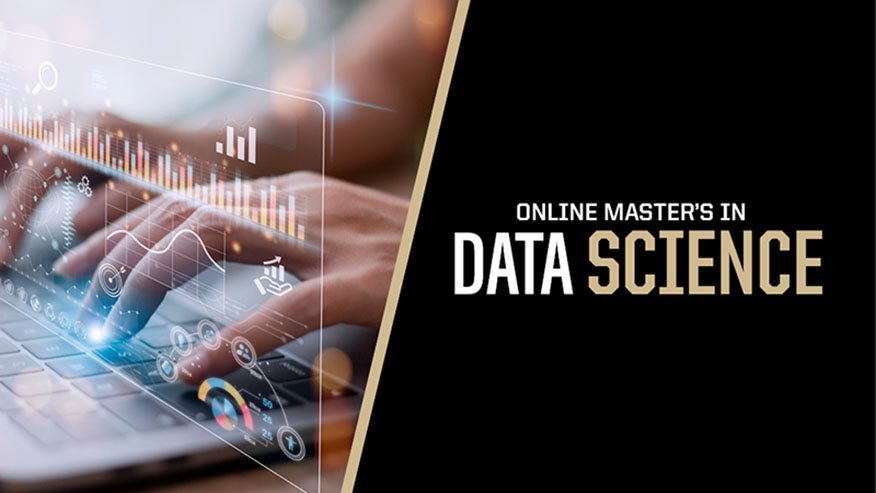
WEST LAFAYETTE, Ind. — Data scientists who can make sense of today’s epic floods of data to generate actionable insights and communicate them to a variety of audiences are in demand in almost any field, from retail business and industry to health care, government, education, and more.
The U.S. Bureau of Labor Statistics estimates that jobs for data scientists will grow 36% by 2031. Nationally, there were nearly 125,000 data scientist jobs added from 2013-2023. Yet many of those jobs — with many more openings coming — went unfilled for a lack of trained data scientists. The bottom line: Nearly every industry today requires data scientists, and the number of these positions is expected to grow.
Purdue University’s new 100% online Master of Science in data science degree addresses the need and the high demand for a trained data science workforce that can harness the power of data to drive innovation, efficiency and competitiveness. The interdisciplinary master’s program is designed for working professionals with a technical background but includes a pathway to entry for professionals from nontechnical fields.
“This data science master’s program is specifically designed for online delivery and optimal online learning, making it accessible to professionals around the world,” said Dimitrios Peroulis, Purdue senior vice president for partnerships and online. “The interdisciplinary curriculum is diverse, customizable to a student’s needs and tailored for practical application immediately.”
Purdue’s online master’s in data science features core courses covering foundations of data science, machine learning and data mining, big data technologies and tools, data analysis, and data visualization and communication.
Students do a capstone project pairing them with an industry mentor and a collaborative team to manage a data science project from inception to completion. That includes developing project timelines, allocating resources and adapting strategies based on the project’s evolution. The capstone, modeled after curriculum from The Data Mine , Purdue’s award-winning data science learning community, is an opportunity to apply knowledge acquired throughout the master’s program to solve complex, real-world problems.
The online master’s program also features the opportunity to earn industry-aligned certificates along the way to earning a master’s degree. Options include education, leadership, and policy; smart mobility and smart transportation; data science in finance; spatial data science; geospatial information science; managing information technology projects; IT business analysis; and applied statistics.
The program was developed by an interdisciplinary cohort of expert faculty from Purdue’s flagship campus, including the colleges of Agriculture, Education, Engineering, Health and Human Sciences, Liberal Arts, Pharmacy, Science, and Veterinary Medicine, along with the Mitch Daniels School of Business, the Purdue Polytechnic Institute, the Purdue Libraries, and the Office of the Vice Provost for Graduate Students and Postdoctoral Scholars.
“Purdue’s new online MS in data science program leverages the real-world experience of faculty working across several distinct disciplines,” said Timothy Keaton, assistant professor of practice in Purdue’s Department of Statistics, who was involved in developing the new degree. “This cooperation between experts in the application of data science in diverse fields provides a great opportunity to create engaging and meaningful coursework that incorporates many different potential areas of interest for our students.”
Students will develop expertise in programming languages, gaining the ability to design and implement data-driven solutions; learn to apply advanced technologies, including cloud computing and big data frameworks, to effectively handle and process large-scale datasets; gain a deep understanding of machine learning algorithms and models, applying them to real-world scenarios; and become proficient in collecting, cleaning, and analyzing diverse datasets.
The curriculum also is designed to teach learners data visualization and communication methods for creating compelling visual representations of complex data to effectively convey insights, along with the application of storytelling techniques to communicate findings clearly to both technical and nontechnical audiences. The program covers adherence to ethical standards in data science, privacy, transparency and fairness as well.
The program draws on Purdue’s expertise in myriad aspects of data science. Known for its emphasis on practical programs with proven value, Purdue has been rated among the Top 10 Most Innovative Schools for six years running by U.S. News & World Report and is the No. 8 public university in the U.S. according to the latest QS World University Rankings.
“The breadth and depth of topics that data science encompasses necessitate graduate programs that incorporate expertise from a variety of disciplines and then integrate this into a curriculum to meet the needs of its students,” said John Springer, a Purdue computer and information technology professor who was involved in developing the new degree. “Purdue’s unique approach to the development and delivery of its new online master’s program wholly fulfills these requirements by utilizing a highly interdisciplinary team of Purdue faculty backed by Purdue’s outstanding team of instructional designers.”
For more information about Purdue’s 100% online Master of Science in data science degree, visit the program website .
About Purdue University
Purdue University is a public research institution demonstrating excellence at scale. Ranked among top 10 public universities and with two colleges in the top four in the United States, Purdue discovers and disseminates knowledge with a quality and at a scale second to none. More than 105,000 students study at Purdue across modalities and locations, including nearly 50,000 in person on the West Lafayette campus. Committed to affordability and accessibility, Purdue’s main campus has frozen tuition 13 years in a row. See how Purdue never stops in the persistent pursuit of the next giant leap — including its first comprehensive urban campus in Indianapolis, the Mitch Daniels School of Business, Purdue Computes and the One Health initiative — at https://www.purdue.edu/president/strategic-initiatives .
Media contact: Brian Huchel, [email protected]
More Purdue News

Today’s top 5 from Purdue University
August 30, 2024

Researchers document animals’ preference for Purdue-patented sorghum technology
August 29, 2024

Purdue, Panama enter agreement to support semiconductor academic collaboration and workforce development
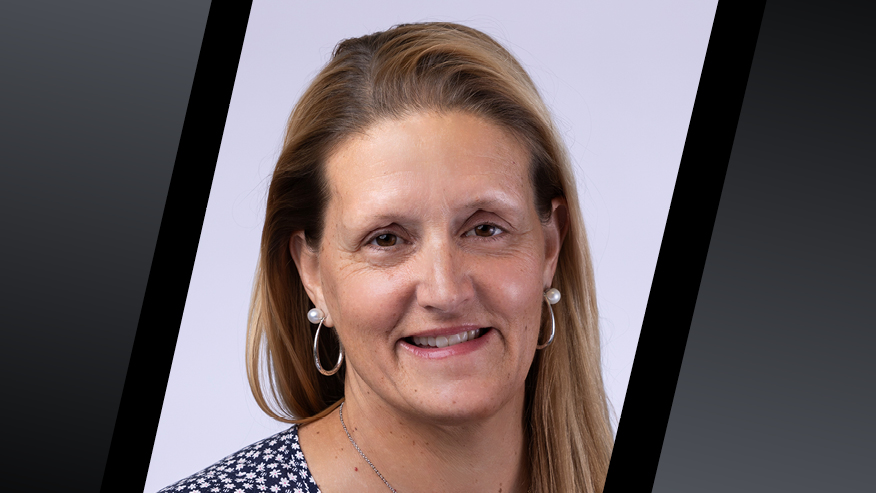
Purdue alum, U.S. Olympic & Paralympic Committee executive Julie Dussliere named president and chief executive officer of Purdue for Life Foundation
August 26, 2024
- Latest News
.png)
- Cryptocurrencies
- White Papers
Highest Paying Data Science Programs in 2024

With the emergence of technology and AI (Artificial Intelligence), Data Science has been prioritized in organizations nowadays. As the data-driven industry is becoming increasingly crucial for businesses, the demand for Data Scientists has become noticeable. However, not all data science programs are equal, some of them will prepare you for higher-paying roles. This article delves into some of the highest-paying data science programs, covering academic degrees and certifications.
Highest Paying Data Science Programs
1. master of science in data science (msds).
The MSDS degree is probably one of the most focused programs to be pursued by an aspiring data scientist. Generally, it covers advanced topics such as machine learning, big data analytics, data visualization, and statistical modeling . Prestigious universities around the world provide MSDS programs, which intrinsically raise the value of the employers.
Best Programs
a. Stanford University: The MSDS program at Stanford emphasizes both theoretical and practical knowledge in data science. Its graduates have been known to earn starting salaries of over $150,000 (Rs 1,25,80,240) per year on average.
b. Massachusetts Institute of Technology (MIT): MIT's MSDS program is yet another high-salary MPH graduate school for data science careers. It is structured to give students formidable technical abilities and a solid foundation in decision-making based on data.
Average Salary Graduates from the highly ranked MSDS programs can expect starting salaries in the range of $120,000-$180,000 (Rs 1,00,63,212- Rs 1,50,94,854) based on location and industry.
2. Master of Business Analytics (MBAn)
The Master of Business Analytics, or MBAn, is a hybrid degree that combines business and data science. This program is suitable for individuals who want to apply data science techniques in business and make them valuable to organizations, planning to leverage data to make strategic decisions.
a. Harvard Business School: Harvard 's MBAn is the most exclusive and boasts a record of graduating individuals who immediately rise into influential positions in organizations. Graduates often earn starting salaries well over $140,000 (Rs1,17,39,884)
b. Wharton School of the University of Pennsylvania: Wharton School offers an MBAn program, based on finance and marketing. Its graduates are highly sought after; they can command a starting salary of about $135,000 (Rs 1,13,20,602) Average Salary In general, the salaries of MBAn graduates range from $130,000 to 160,000, (Rs 1,09,01,787), especially if they take on combined business and technical roles.
3. Doctor of Philosophy (PhD) in Data Science
The PhD in Data Science represents the pinnacle of data science education for the career-oriented individual in research or academia. The emphasis on a PhD in Data Science coursework includes original research, advanced algorithms, and the development of new methodologies in data science. Graduates can expect to find themselves in academia, research institutions, or in some form of an advanced data science role in industry.
Top Programs
a. University of California, Berkeley: The PhD in Data Science at UC Berkeley is greatly cherished for its cutting-edge research, along with the caliber of its faculty. Graduates of this program most often move into academic careers or very lucrative positions in research and development departments.
b. Carnegie Mellon University: With a strong inclination towards machine learning and artificial intelligence, Carnegie Mellon University offers a PhD in Data Science that prepares students for leadership careers in academia or industry.
Average Salary While different career paths can significantly affect salaries for PhD holders, individuals who enter this industry can expect to earn upwards of $150,000 (Rs 1,25,78,742) to $200,000 (Rs 1,67,71,657), especially if they are researching.
4. Postgraduate Diploma in Data Science
A postgraduate diploma in Data Science is shorter and more focused than a master's course. These courses are ideal for working professionals, seeking specialized data science skills without necessarily committing to a full degree. Most of the postgraduate diplomas are online, hence it's accessible to working professionals.
a. University of Edinburgh: A Postgraduate Diploma in Data Science at the University of Edinburgh is highly recognized in Europe. It is entitled to machine learning, big data technologies, and data mining.
b. The University of Illinois at Urbana-Champaign: This program offers a flexible online Postgraduate Diploma in Data Science. It covers a strong base for data analysis, predictive modeling, and data visualization.
Average Salary This postgraduate diploma in data science can bring in an average salary range from $90,000 to $120,000 (Rs 75,47,847 to Rs 1,00,63,796) depending both on their past and current experiences.
5. Executive Education in Data Science
Executive education in Data Science refers to educational training for advanced professionals or executives who need deep knowledge of data science and apply the field to specific business problems. Often shorter and more intense, these programs are generally focused on strategic issues related to Data Science practice.
a. Columbia Business School: The Data Science Executive Education course at Columbia is highly regarded by the C-suite suite. It emphasizes data-driven decisions and the execution of data science strategies in an organization.
b. INSEAD: The Executive Education program at INSEAD for Data Science targets those business leaders who wish to make Data Science a part of their strategic blueprint. This course is highly in demand in Europe and Asia, where the alumni network is quite robust. Average Salary The executives who come out from these studies may gain very sharp increases in their pay ranges. They can expect $200,000- $300,000 per annum (Rs 1,67,73,030 to Rs 2,51,58,990) especially if they get titles like CDO or any other similar leadership title.
6. Data Science Professional Certifications
Professional certifications in Data Science are a good option for credential enhancement for those who do not want to undertake the full master's program. These certifications will go as a shot in the arm for your career and can dramatically increase your pay, especially when you have relevant experience. Top Certifications
a. Certified Data Scientist (CDS) by DASCA: The Data Science Council of America, popularly known as DASCA, offers this globally recognized credential as a Certified Data Scientist . Targeted towards professionals who want to validate their skill set and knowledge in data science, the certificate helps in gaining more recognition and prospects within the job market.
b. Microsoft Certified: Azure Data Scientist Associate: Targeted towards professionals working with Microsoft Azure's machine learning and data science feature sets, this is highly worth it for professionals working in cloud-based environments.
Average Salary These certified professionals are paid within the range of $100,000 to $140,000 (Rs 83,86,335 to Rs 1,17,40,869), depending on their experience and the industry they find themselves in.
7. Data Science Bootcamps
Data science bootcamps are intensive, short-term programs, that teach the necessary skills to become a data scientist. They are relatively popular among career changers and those who wish to skill up fast.
Best Boot Camps
a. General Assembly: The General Assembly provides an immersive bootcamp in data science that has a wide-ranging span, covering data analysis and machine learning. Most of the students go into employment and get an average starting salary of $95,000 (Rs 79,67,194).
b. DataCamp: DataCamp has an online bootcamp with hands-on experience that happens to be pretty very good for project-centred people. Its graduates' starting salaries can lie in the range from $80,000 up to $110,000 (Rs 67,09,216 to Rs 92, 24, 914). However, when students compare starting salaries to those with higher-end degrees, then graduates from a bootcamp have fairly low salaries. Due to the small time scale in this study, students can enter the workforce in record time.
Average Salary
The average salaries begin from $80k to $120k (Rs 67,09,028 to Rs 1,00,63,542), depending on the nature of the bootcamp as well as prior experience of the student.
8. Online Master's in Data Science
Online master's programs in data science bring flexibility and accessibility to working professionals. The programs retain heavy curriculum requirements similar to their on-campus counterparts, but let students learn at their own pace.
a. UC Berkeley: The University of California (UC), Berkeley, offers a highly reputed online course in Masters of Information and Data Science. Graduates from this course get very highly paid jobs, with salaries exceeding $130,000 (Rs 1,09,00,827)
b. Georgia Institute of Technology Online: This institute offers an affordable online MS in Analytics. It emphasizes how to practically apply data science. Nonetheless, starting salaries for Georgia Tech graduates will hover closer to $120,000 (Rs 1,00,62,540) Average Salary Graduates of top-ranked online master's programs will find starting salaries somewhere between $110,000 and $140,000 (Rs 92,23,995 to 1,17,39,549) depending on industry and geography.
The rapid growth in the field of data science demands the right kind of educational program, which can also significantly impact your earning potential. Whether one pursues a traditional master's program, a specialized certification, or an immersive bootcamp, what matters is one's career goals and which program assures the highest return on investment. The most lucrative data science programs in 2024 would focus on technical knowledge, practical application, strategic decision-making, and leadership skills. You can only aspire to top positions in this fast-moving and highly rewarding field with the right qualifications and credentials.
1. What are the highest-paying data science programs in 2024?
A: The highest-paying programs include Master of Science in Data Science (MSDS), Master of Business Analytics (MBAn), and PhD in Data Science from top universities like Stanford, MIT, and Harvard.
2. Which data science degree should someone pursue for a high salary?
A: A Master of Science in Data Science or a Master of Business Analytics are among the best options for high-paying roles. PhD programs also lead to lucrative careers, especially in research and academia.
3. Can a data science bootcamp lead to a high-paying job?
A: Yes, many data science bootcamps offer quick entry into the field with starting salaries ranging from $80,000 to $120,000, (Rs 67,08,606 to Rs 1,00,62,909), depending on the program and your previous experience.
4. How do online data science programs compare to on-campus programs in terms of salary?
A: Online programs from top universities like UC Berkeley and Georgia Tech offer comparable salaries to on-campus programs, typically ranging from $110,000 to $140,000 (Rs 92,24,341 to Rs 1,17,40,071).
5. What certifications can boost my data science salary?
A: Certifications like the Certified Data Scientist (CDS) by DASCA and Microsoft Certified: Azure Data Scientist Associate can enhance your credentials and lead to salaries between $100,000 and $140,000 (Rs 83,85,765 to Rs 1,17,40,071).
Related Stories


Master of Science in Business Analytics and AI

Distinguish Your Career With Data; Harness the Power of AI
Deepen your understanding of the role of data in decision making and leverage new developments in artificial intelligence through the MS in Business Analytics and AI.
Synthesize Data and Utilize Artificial Intelligence Tools to Make Better Decisions
Analytics and the ability to utilize new developments in AI are critical in preparing organizations to solve 21st-century business challenges The MS in Business Analytics and AI program enables students to utilize data to gain a competitive advantage. Business analytics unlocks the predictive potential of data to improve financial performance, strategic management, and operational efficiency. Additionally, new AI developments add a powerful set of complementary tools to use data even more effectively.
Graduates of this program will be equipped to utilize innovative methodologies that support data-driven decision making and to influence applications of AI to become masters in AI driven decision-making and strategy. They will ultimately drive better business results by gaining the ability to transform data into a powerful and predictive strategic asset. Advanced AI concepts in deep learning, reinforcement learning, and generative AI will further add to this skill set.

To learn more about what our alumni have accomplished since graduating from the MSBAi program, click here . Our alumni continue to set excellent examples of the professional achievements that the MSBAi degree can help unlock, both during and after the program.
Contact MSBAi
Immediate return on investment.
Learn more about the unique benefits of the MSBAi program and the real world application of the curriculum from MSBAi faculty and students from the Class of 2024!
Graduate Programs
Take your education to the next level.
Pursuing a graduate degree at The University of Scranton is not just about earning a credential—it's about transforming yourself into a more knowledgeable, skilled, and confident professional prepared to make a meaningful impact in your field.
Why Scranton?
Whether you prefer to study full-time or part-time, on campus or online, Scranton provides opportunities to earn your degree while accommodating your personal and professional commitments.
- Our 30+ programs are designed to provide the necessary foundation and expertise to advance in your current field or transition to a new one.
- With classes capped at 20 students, you’ll join a community of highly motivated peers, as well as study alongside faculty who are experts in their fields and bring real-world relevance, industry connections, and mentorship and guidance to every class.
- Our commitment to the Jesuit values of ethics and social responsibility not only shapes the educational experience at Scranton but also prepares graduates to lead meaningful lives of purpose, service, and leadership in their chosen fields and communities.
It's a significant investment in yourself that can lead to increased marketability and earnings, as well as open doors to new career possibilities.
About Us Visit Campus
"I learned so much during my time at Scranton that I was able to use immediately in my current position. All of the professors were very helpful, and my advisor was amazing - always quick to respond and give helpful advice." – KRISTA PANCO, G'22
Explore Fields of Study
Business analytics, finance / accounting, health administration, health informatics, health sciences, human resources.
Learn how to succeed and drive your organization’s HR performance in areas, such as decision-making, strategic planning, compensation, benefits, and more.
Operations Management
Learn about forecasting, staffing, work measurement, capacity/aggregate planning, inventory management and more from faculty with years of experience in their fields.
Social Sciences
Gain knowledge that will enable you to better understand the depths of the human condition through our graduate programs in the social sciences.
Conduct research while working closely alongside faculty members who are leaders in their fields, in top-notch facilities, such as the state-of-the-art Loyola Science Center.

Accreditations and Accolades
The University of Scranton was named a Best College for 2024 (ranked No. 5) by U.S. News & World Report and has been among the 10 top master’s universities in the North for more than 30 consecutive years.
Scranton is accredited by the Middle States Commission on Higher Education (MSCHE). The University has been recognized for its excellence by numerous national publications and organizations.
Scranton’s Kania School of Management is accredited by Association to Advance Collegiate Schools of Business (AACSB) , a distinction received by only five percent of business schools worldwide.
Financing Your Graduate Education
We understand that choosing a graduate school is a big decision, often influenced by various factors, including financial considerations. We're here to help you understand all of your options.
Join Our Community
As you enroll and pursue your degree, you’ll have help from our dedicated support team. They will provide you with a consistent, personal bridge to the school, answering any questions you have and helping you achieve your goals while pursuing your degree.
We're Here to Support You
© 2024 University of Scranton

Business Analytics Degree
Become data-savvy in the growing field of data analysis.
Learn to create financial models that support decisions, identify areas for increased efficiency, stronger processes and strategic initiatives and provide high-quality forecasts with a Business Analytics degree.
Why earn a Business Analytics bachelor's degree?
If you're an international student, refer to the international application process for deadlines.
UND's Business Analytics major prepares you to support data-driven decisions by analyzing data and developing business insights. As technology continues to advance, the importance of data and analytics in business is only expected to grow. A degree in Business Analytics positions you well for a future where data literacy will be increasingly crucial. Many executives and managers benefit from having a strong background in analytics, as it enhances their ability to make informed strategic decisions.
Business analysts play a crucial role in helping organizations make better decisions. This can lead to improved efficiency, increased profits and the ability to stay competitive. The work you do can have a significant impact on the success of an organization.
The Business Analytic degree can also complement almost any other undergraduate degrees and/or be complemented with a minor in business or non-business disciplines . Business analytics is a horizontal skill and can be used in a wide range of industries. Every organization, company, industry and type of entity requires data analysis skills, and demand continues to grow.
AACSB Accredited Business Analytics Degree

The B.B.A. with major in Business Analytics is accredited by AACSB International , the Association to Advance Collegiate Schools of Business. Accreditation by AACSB International puts the Nistler College of Business & Public Administration in the top 5% of business schools in the world.
Business Analytics Degree Online or On-Campus
Work with faculty on cutting edge research which brings an application focus to your courses.
The Business Analytics program is part of UND's Nistler College of Business & Public Administration, the largest business school in North Dakota.
Network and build skills when you join the Management Club, Information Systems Club, Dakota Venture Group, Women in Business, Accounting Club, the Supply Chain Club or the Society for Human Resource Management (SHRM).
Receive personalized career support through the Pancratz Career Development Center . The center is dedicated exclusively to career development for online and on-campus Nistler College of Business & Public Administration students.
Take part in a variety of experiential learning opportunities while earning your degree, including paid internships.
Learn in the new Nistler CoBPA. It’s a modern and inviting building for UND's business and public administration students.
What can you do with a Business Analytics degree?
Expected job growth in business categories. Almost twice the average rate.
Fortune 2022
Median pay of Management Analysts in 2023.
U.S. Bureau of Labor Statistics
A Business Analytics degree equips you with the versatile skills that many roles and industries are looking for and can offer a career path for growth and specialization.
You will graduate with the strategic skills you need to succeed in a business career, including:
- Data Analyst
- Business Intelligence Analyst
- Data Scientist
- Marketing Analyst
- Financial Analyst
- Operations Analyst
- Supply Chain Analyst
- Risk Analyst
While the focus is on business decision making, it is important to realize that entities in all sectors make business decisions and have strong and growing demand for business analytics competencies including for profit, non-profit, government and education.
Industries That Employ Business Analysts
According to the International Institute of Business Analysis , business analysts work across industries including:
- Information Technology
- Finance, Banking and Insurance
- Government and Public Sector
- Business/Professional Consulting
- Business Services
- Retail and E-commerce
- Manufacturing
- Telecommunications
Business Analytics Degree Courses
ISBA 430. Database Analytics. 3 Credits.
This course equips students with an understanding of techniques in data analytics with particular emphasis on unstructured data. Coverage includes, but not limited to, database analytics, PL/SQL, advanced SQL, business intelligence, unstructured big data analytics, Hadoop framework in business, data visualization, data warehousing, NoSQL, and in-memory database system. S.
ISBA 300. Programming for Data Analytics. 3 Credits.
This course introduces one powerful and widely used programming language for data analytics. Course content may vary based on the current programming trend. The programming language chosen has easily understood syntax and library or open source modules for everything from web development to data analysis. This course covers the syntax and semantic of the programming language and its uses as a data analytics tool. The material will emphasize the core concepts in the programming language, specifically data types, data structures, functions, and text and image processing and how they can be implemented and used to address data analytics problems. Popular modules used in data analysis such as data mining and data visualization will also be covered. F.
ECON 370. Data Visualization. 3 Credits.
Making data-driven decisions is a common refrain in most business sectors. The communication of these decisions is an important part of the decision process and the inclusion of key stakeholders. Whether communication is brief or long the use of visuals is possibly more important now than ever. When data is sparse or voluminous, visualizations are an important part of making the story told by the data clear and resonant. This course takes students through the theory and practice of data visualization. This translates into students taking the time to think about and research. Various aspects of the "best practices" around visualizations prior to the creation of the visualization. Students will also look at multiple different ways to create the visualization, such as the appropriate software environment, consideration of the end use for the visualization, and consideration of the end impact desired for the visualization. Prerequisite: ECON 210 or equivalent statistics course. F.
ECON 411. Economic Forecasting. 3 Credits.
An introduction to Economics Forecasting and Time Series Analysis. The course will cover specifications and estimation of ARMA models, seasonality, non-stationarity, unit roots and forecast evaluations. Empirical applications are used throughout the course. Prerequisite or Corequisite: ECON 410 or ECON 506 . S.
ISBA 420. Robotic Process Automation in Business. 3 Credits.
This course equips students with a comprehension of tools and techniques of robotic process automation (RPA) in business. Coverage includes, but not limited to, automating business processes, processing business transactions, designing and creating business robots, training robots, modeling robotic flowchart, recording and playing the bots, handling assistant bots, implementing and maintaining the bots, and any new cutting-edge technologies about RPA. Students with no prior coding or programming knowledge will be able to build and train robots to execute business activities. On demand.
MRKT 330. Marketing Research. 3 Credits.
The research process from a marketing perspective. Addresses problem formulation, research design, methodology, and appropriate statistical methods. Application of procedures appropriate for the analysis and interpretation of marketing data. Prerequisite: MRKT 305 ; Sophomore, Junior or Senior Standing; declared CoBPA majors only. F,S.
Online Business Analytics Degree
best online college in North Dakota
Intelligent
online programs
UND's offers one of the best online Business Analytics degrees in the region for flexibility and affordability.
Flexibility is critically important to our online students. That’s why we’ve designed the online Business Analytics degree to never require a campus visit. Online classes for the Business Analytics degree are offered as a mix of asynchronous and synchronous courses.
Compare the cost of UND’s online Business Analytics degree . You’ll find it’s one of the most affordable programs in the nation. All online Business Analytics students pay the same affordable tuition rate regardless of their residency. This makes UND’s Business Analytics major one of the most affordable online business degrees in the nation.
Flexible Online Business Analytics Degree
Asynchronous courses, synchronous courses, asynchronous courses ( open this section).
With asynchronous classes, you do not attend class at a set time. If you need to balance work, family, and other commitments, this flexible format allows you to learn anywhere at any time.
Depending on your instructor, you’ll learn online through:
- Lesson modules
- Streaming video content
- Virtual libraries
- Posted lectures
- Online simulations
There will be times when you interact with your instructor and classmates through online discussion boards, polls, and chat rooms.
Your learning revolves around materials that can be accessed on your own time within a set time frame. However, this is not a self-paced course. You’ll have structure and deadlines.
Synchronous Courses ( Open this section)
Synchronous classes are held in real-time. If you’re the kind of learner who likes active discussion and immediate feedback through live interaction, you’ll enjoy this online course format.
Every class is different, but generally, you’ll log into a virtual classroom at scheduled times to:
- Listen to a lecture.
- Ask questions.
- Participate in class discussions.
- Conduct group activities.
- Participate in video-sharing.
- Have chat conversations.
- Use interactive whiteboards.
- Take live polls.
You should prepare for your classes by finishing any assigned readings, compiling questions for your instructor, and thinking about how to contribute to the next live class.
Top-Tier Online Business Analytics Degree
Over a third of UND's student population is exclusively online; plus, more take a combination of online and on campus classes. You can feel reassured knowing you won't be alone in your online learning journey and you'll have resources and services tailored to your needs. No matter how you customize your online experience, you’ll get the same top-quality education as any other on campus student.
- Same degree: All online programs are fully accredited by the Higher Learning Commission (HLC) . Your transcript and diploma are exactly the same as our on-campus students.
- Same classes: You’ll take courses from UND professors, start and end the semesters at the same time and take the same classes as a student on campus.
- Real interaction: You can ask questions, get feedback and regularly connect with your professors, peers and professionals in the field.
- Your own academic advisor: As an invaluable go-to, they’re focused on you, your personal success and your future career.
- Free online tutoring: We're here to help you one-on-one at no cost. Plus, get access to a variety of self-help online study resources.
- Unlimited academic coaching: Need support to achieve your academic goals or feeling stumped by a tough course? We'll help with everything from stress and time management to improving your memory to achieve higher test scores.
- Full online access: Dig into virtual research at UND's libraries. Improve your writing skills with online help from the UND Writing Center. Get online access to career services, veteran and military services, financial services and more.
- 24/7 technical support: UND provides free computer, email and other technical support for all online students.
- Networking opportunities: Our significant online student population means you’ll have a large pool of peers to connect with. UND has numerous online events and activities to keep you connected.
Best Online College
Our high alumni salaries and job placement rates, with affordable online tuition rates make UND a best-value university for online education. UND's breadth of online programs rivals all other nonprofit universities in the Upper Midwest making UND one of the best online schools in the region.
UND ranks among the best online colleges in the nation for:
- Affordability
- Student satisfaction (retention rate)
- Academic quality (4-year graduate rate)
- Student outcomes (20-year return on investment per Payscale.com)
Leaders in Business
In the classroom or boardroom, you'll gain the hands-on experience necessary to become a leader.
Looking to connect with the college or find a similar degree?
- Nistler College of Business & Public Administration
- Find Similar Degrees
By clicking any link on this page you are giving your consent for us to set cookies, Privacy Information .
Partner Sites

Inspiring and informing your business school journey
9 of the best stem-designated masters in business analytics.

Best Masters in Business Analytics | STEM-designation means internationals can work in the US for up to three years without an H1-B visa ©wutwhanfoto
Looking to advance in the next big field? These STEM-designated masters in business analytics programs are creating new pathways for international students in the US
Wed Apr 24 2024
Students on STEM-designated masters can apply for a 24-month STEM-extension to their 12-month Optional Practice Training (OPT) period which allows them to work on a student visa. That means students on STEM-designated masters can work in the US for up to three years after graduation, without an H1-B visa .
The shortage of STEM professionals has made them highly lucrative in the labor market—students from around the world are certainly catching on to the employment opportunities that a STEM education can provide.
According to Dell, it's believed that 85% of STEM jobs that will be required in 2030 are not currently in existence. Combine a STEM designation with a cutting-edge business analytics programs and what you have is a goldmine of potential.
So, here are nine STEM-designated Masters in Business Analytics (MSBA) that are sure to influence the next generation of business professionals.
Download our free BusinessBecause Which Business Master's Guide
9 Of The Best STEM Masters In Business Analytics
1. ucla anderson school of management – master of science in business analytics.
We're kicking off this list of nine top STEM-designated Masters in Business Analytics with three programs that rank among the top 10 MSBAs in the world in the latest QS Master in Business Analytics ranking.
Taking first place in the QS ranking for 2024, the STEM-designated UCLA Anderson MSBA lasts 15 months and aims to help students bridge the gap between tech and business. Students also learn to use data to transform business strategy.
The technical curriculum is combined with the intensive 10-week MSBA Career Curriculum in which guest instructors and industry professionals teach students essential skills in data story-telling, presentation skills, technical and case interviewing, and client management.
There is also a Summer Internship and Applied Analytics Project (AAP) where students partner with a corporate client and work in groups to unlock hidden data insights.
2. MIT Sloan School of Management – Master of Business Analytics
Alongside UCLA Anderson, MIT Sloan offers one of the world’s best Master in Business Analytics as it places second in the latest QS ranking. Previous to this year, MIT Sloan led the ranking since 2019.
Sloan offers a thoroughly developed Master of Business Analytics curriculum in tandem with MIT’s distinguished Operations Research Center. This is in addition to doctoral and undergraduate degree offerings in the field.
The program is tailored to ambitious students seeking to advance their careers in a variety of areas, namely engineering, math, physics, computer programming, and high-tech industries.
Read our MIT Master of Business Analytics Review
3. University of Texas at Austin McCombs Business School – MS in Business Analytics
Securing ninth position this year in the QS ranking is the McCombs' STEM-designated, ten-month program, which is designed with a specific focus on helping students achieve post-graduate success.
A career development team serves as a lifeline for students seeking to secure offers from industry leaders like Walmart and Deloitte Consulting.
The McCombs curriculum teaches students how to harness data in order to tap into the multibillion-dollar big data industry.
READ: What Are The Different Types Of STEM Master's Degrees?
4. University of Southern California Marshall School of Business – MS in Business Analytics
USC Marshall offers an in-depth exploration into the many facets of data analysis and management. Topics include statistical modeling, data management, visualization, information security, optimization, and decision-making under uncertainty.
The flexible curriculum allows students the chance to complete coursework between 10 and 18-months. It's catered to individuals who pursue their degree while they maintain employment.
5. University of Maryland’s Robert H. Smith School – MS in Business Analytics
Smith offers a roster of eight in-person specialized masters programs, seven of which are STEM-designated.
Smith’s MS in Business Analytics program doesn’t hide its tendencies toward progressive subjects in big data: cybersecurity, supply chain, transportation, and forecasting are only some of the topics covered in this program.
This program is also an ideal opportunity for students seeking to study, work, and live in the DC area. And partnerships with companies like Deloitte, KPMG, and Unilever, keep the learning relevant to the real-world business environment.
6. Cornell Johnson College of Business – Master in Business Analytics
The STEM-designated MSBA program at Cornell Johnson is taught part-time over 16 months and is predominantly online, delivered through the school’s award-winning e-learning platform ecornell.
While the program is delivered asynchronously, giving students the flexibility to study in their own time, there are also two week-long residencies held in Ithaca and New York city.
The Cornell MSBA curriculum also focuses on applying key learnings within particular industries. Students can choose from four concentrations in Marketing Analytics, Finance Analytics, Operations and Supply Chain Analytics, and Business Analytics to target their chosen career path.
There is also a Capstone Project where each student must solve a real-world problem using a large data set and analytics tools.
Read more about the Cornell Johnson Master in Business Analytics
7. Illinois Gies College of Business – Masters in Business Analytics
The Illinois Gies MSBA program is an intensive program lasting two semesters. With just four core courses in Enterprise Database Management, Big Data Analytics, Data Storytelling, and a Business Practicum, the program is highly customizable.
Students can also choose from a host of specializations ranging from Machine Learning in Finance to Social Media Strategy.
8. American University Kogod School of Business – MS in Analytics
Kogod’s on-campus MS Analytics program bridges theory and practice by giving students ample internship opportunities and access to guest speakers.
In the capstone practicum, students partner with a local company, solving real-world analytics problems for partner firms.
The program’s speaker series is a highlight of the curriculum both in terms of networking opportunities and direct engagement with industry leaders. Past speakers include industry leaders like the CEO of Primehook Technology, the principal data scientist for Zocdoc, and the VP of data analytics for Unisys.
9. UC Davis Graduate School of Management – MS in Business Analytics
Located close to the tech hub of Silicon Valley, Davis’ MS in Business Analytics program focuses on preparing students to venture out into a competitive marketplace.
Proximity to top employers in this thriving entrepreneurial ecosystem provides a unique advantage for students, who can network with companies and alumni working close by. The school also invites thought leaders to deliver regular talks to provide insights and connection opportunities.
Download our Which Business Master's Guide 2024
This article was first published in August 2018 and most recently updated in April 2024.
- Masters In Business Analytics
Tuesday 27th December 2022, 20.45 (UTC)
I would like to develop myself in Data Analytics, and I think it is the best
Sunday 28th June 2020, 15.13 (UTC)
I would like to develop myself in Data Analytics, and I think it is the best way to become the one of these "STEM-designated" students. I have a full-time job, so I do not have enough time for my papers. That is why, I use this website https://ca.edubirdie.com/statistics-help when I need the help with any of my tasks. I think these guys will help me to get MS in Analytics at American University Kogod School of Business.
You might like:

What Are The Different Types Of STEM Masters Degrees?

Which Business Master's? How To Choose The Right Business Degree For You

STEM MBA Programs | 3 Things You’ll Gain
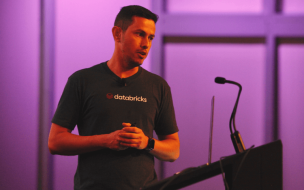
9 Leading Startup Companies That Sponsor H1B Visas

IMAGES
VIDEO
COMMENTS
Based in San Diego, California, National University (NU) offers a variety of online programs, including a Ph.D. in data science. NU's program requires 60 credits and takes an estimated 40 months ...
A PhD in Data Analytics or a closely related field will always contain a set of courses in advanced analytics & data science subjects. These courses can come from multiple departments (e.g. Computer Science, Mathematics & Statistics, Industrial Engineering, Psychology, etc.). Examples include: Big Data Analytics.
Ph.D. / Full-time / On Campus. 23,071 EUR / year. 4 years. University of Tulsa Tulsa, Oklahoma, United States. Ranked top 5%. Top 5% of Universities worldwide according to the Studyportals Meta Ranking.
PhD in Analytics and Data Science. Students pursuing a PhD in analytics and data science at Kennesaw State University must complete 78 credit hours: 48 course hours and 6 electives (spread over 4 years of study), a minimum 12 credit hours for dissertation research, and a minimum 12 credit-hour internship.
Currently, a majority of the PhD students at IUPUI are funded by faculty grants and two are funded by the federal government. All students receive scholarships. IUPUI also offers a PhD Minor in Applied Data Science that is 12-18 credits. The minor is open to students enrolled at IUPUI or IU Bloomington in a doctoral program other than Data Science.
A Doctor of Philosophy (PhD) is the terminal degree in the field of data science, meaning it is the highest possible degree that can be obtained in the subject. Holding a PhD in data science, consequently, signals your mastery and knowledge of the field to both potential employers and fellow professionals. At a glance, here's what you should ...
An NRT-sponsored program in Data Science Overview Overview Advances in computational speed and data availability, and the development of novel data analysis methods, have birthed a new field: data science. This new field requires a new type of researcher and actor: the rigorously trained, cross-disciplinary, and ethically responsible data scientist. Launched in Fall 2017, the …
Studying Data Analytics in United States is a great choice, as there are 7 universities that offer PhD degrees on our portal. Over 957,000 international students choose United States for their studies, which suggests you'll enjoy a vibrant and culturally diverse learning experience and make friends from all over the world.
PhD in Data Science (on-campus) Stevens Institute of Technology is accredited by the Middle States Commission on Higher Education. 10. University of Central Florida. Located along Orlando's Space Coast, the University of Central Florida is a public research university with a student enrollment of approximately 69,525.
A Ph.D. in Data Science from the University of Virginia opens career paths in academia, industry or government. Graduates of our program will: Understand data as a generic concept, and how data encodes and captures information. Be fluent in modern data engineering techniques, and work with complex and large data sets.
A PhD in Data Science is a research degree designed to equip you with knowledge of statistics, programming, data analysis and subjects relevant to your area of interest (e.g. machine learning, artificial intelligence, etc.). The keyword here is research. Throughout the course of your studies, you'll likely:
Tippie College of Business. Iowa's PhD in Business Analytics is a STEM designated doctoral program focused on data analytics, information systems, quantitative methods, and operations management. Analytics PhDs work with Tippie's top-rated faculty who provide close mentorship that lead to placement in academia and in the.
We launched the first formal PhD program in Data Science in 2015. Our program sits at the intersection ofcomputer science, statistics, mathematics, and business. Our students engage in relevant research with faculty from across our eleven colleges. As one of the institutions on the forefront of the development of data science as an academic ...
Overview. The core mission of the Mendoza PhD in Analytics is to develop thought-leaders in the analytics space that are engaged in impactful, cutting-edge scholarly research that considers the ethical dimension of data and its usage. Graduates of the PhD program are well-positioned to attain academic jobs at top business schools, where they ...
National University. National University offers a Doctor of Philosophy in Data Science. The program is 100% online and designed to allow students to study on their own time. New classes start every week, so students can enroll whenever it is most convenient. The program requires the completion of 20 courses.
Degree awarded: PHD Data Science, Analytics and Engineering. The PhD program in data science, analytics and engineering engages students in fundamental and applied research. The program's educational objective is to develop each student's ability to perform original research in the development and execution of data-driven methods for solving ...
The PhD in Big Data Analytics is an interdisciplinary STEM PhD program focusing on systems and technologies for processing data and information. Unlike pure data science programs, this program includes the human and social implications of information and technology, bringing in critical components of cognition, ethics, biases and storytelling ...
A PhD in data analytics prepares professionals to work in data-driven fields, including research, business, healthcare, and government. The most common reason people pursue a PhD in a data-related field is that they are passionate about data and would like to have a career that involves research and making discoveries, usually within a sub ...
Students should discuss this specialization option with their Ph.D. advisor and their department's director for graduate studies. The specialization consists of either five (5) courses from the lists below, or four (4) courses plus one (1) additional course approved by the curriculum committee. All courses must be taken for a letter grade and ...
The Ph.D. in Data Science at SMU is distinctive because of its highly interdisciplinary nature. Most existing Data Science Ph.D. programs are either housed in a single department, such as Statistics, Computer Science, Operations Management or Business Analytics; or they focus on a single disciplinary area of research, such as Business or Medicine.
The Ph.D. in Big Data Analytics requires 72 hours beyond an earned Bachelor's degree. Required coursework includes 30 credit hours of courses, 21 credit hours of restricted elective coursework, and 21 credit hours of dissertation research. All Ph.D. students must have an approved Plan of Study (POS) developed by the student and advisor that ...
The degree programs are categorized into three main groups: Data Analytics, Business Analytics, and Data Science. Since 2007, Analytics programs have emerged as a new category of professional degrees with a strong interdisciplinary character that combines applied mathematics, statistics, computer science and various business disciplines.
Texas A&M University offers an undergraduate data analytics certificate for students with some college experience. To enroll in the upper-level university, learners should have at least 30 ...
Known for its emphasis on practical programs with proven value, Purdue has been rated among the Top 10 Most Innovative Schools for six years running by U.S. News & World Report and is the No. 8 public university in the U.S. according to the latest QS World University Rankings.
Graduates can expect to find themselves in academia, research institutions, or in some form of an advanced data science role in industry. Top Programs. a. University of California, Berkeley: The PhD in Data Science at UC Berkeley is greatly cherished for its cutting-edge research, along with the caliber of its faculty. Graduates of this program ...
The MS in Business Analytics and AI program teaches students to understand the role of evidence-based data in decision ... PhD Programs. Certificates. Executive Education ... are critical in preparing organizations to solve 21st-century business challenges The MS in Business Analytics and AI program enables students to utilize data to gain a ...
The 2025 edition of U.S. News Best Colleges will be released Tuesday, Sept. 24 on usnews.com, with preorders now being accepted for the accompanying print guidebook. While many assume the work ...
Accreditations and Accolades. The University of Scranton was named a Best College for 2024 (ranked No. 5) by U.S. News & World Report and has been among the 10 top master's universities in the North for more than 30 consecutive years.. Scranton is accredited by the Middle States Commission on Higher Education (MSCHE). The University has been recognized for its excellence by numerous national ...
Work with faculty on cutting edge research which brings an application focus to your courses. The Business Analytics program is part of UND's Nistler College of Business & Public Administration, the largest business school in North Dakota.. Network and build skills when you join the Management Club, Information Systems Club, Dakota Venture Group, Women in Business, Accounting Club, the Supply ...
3. University of Texas at Austin McCombs Business School - MS in Business Analytics. Securing ninth position this year in the QS ranking is the McCombs' STEM-designated, ten-month program, which is designed with a specific focus on helping students achieve post-graduate success.